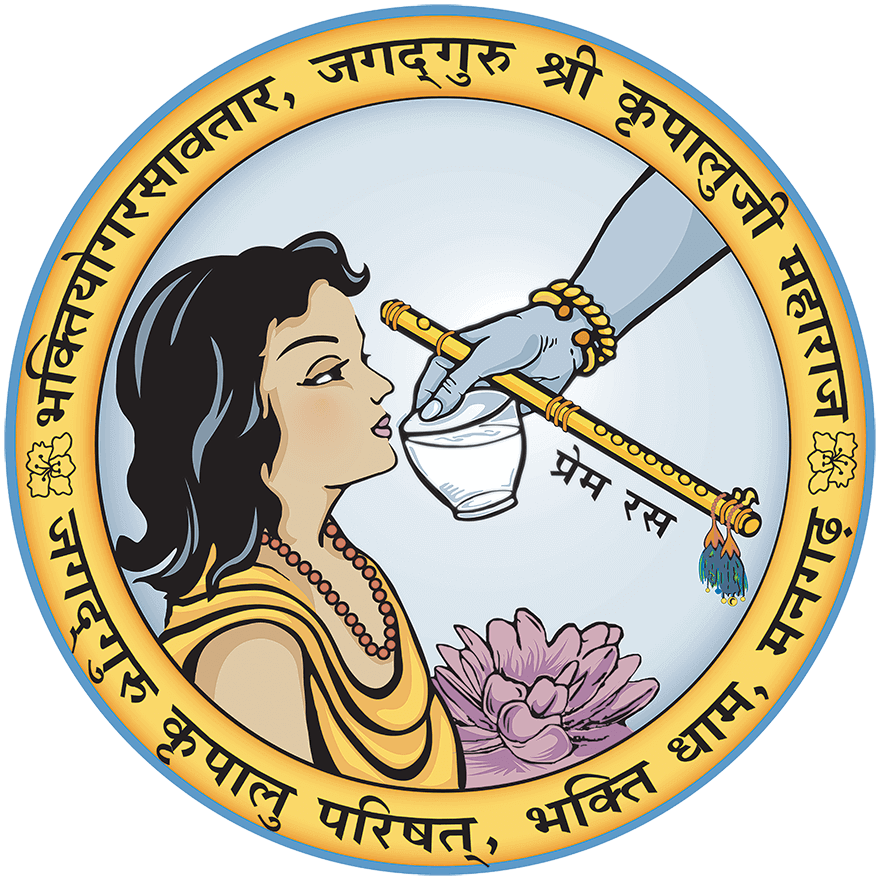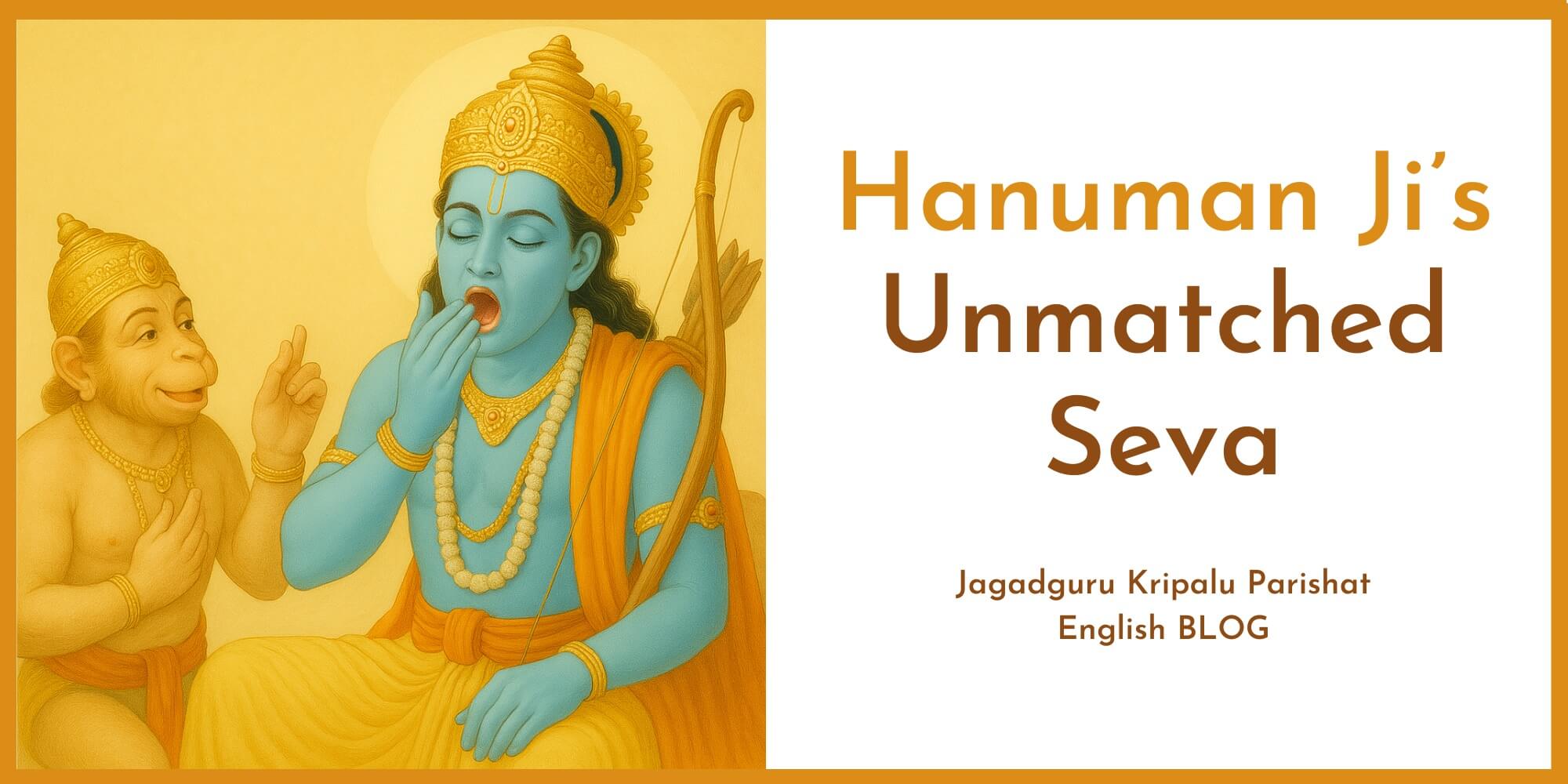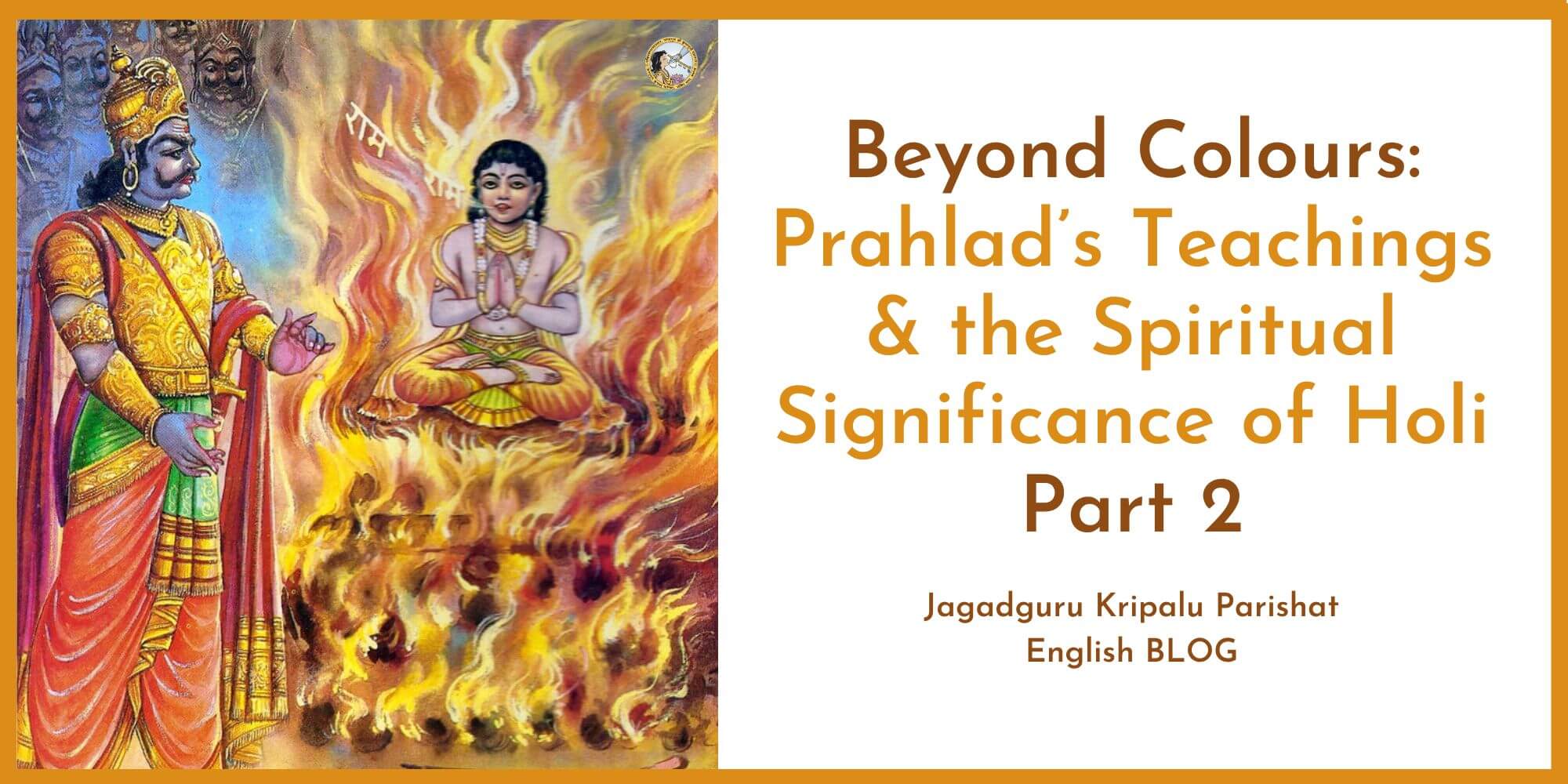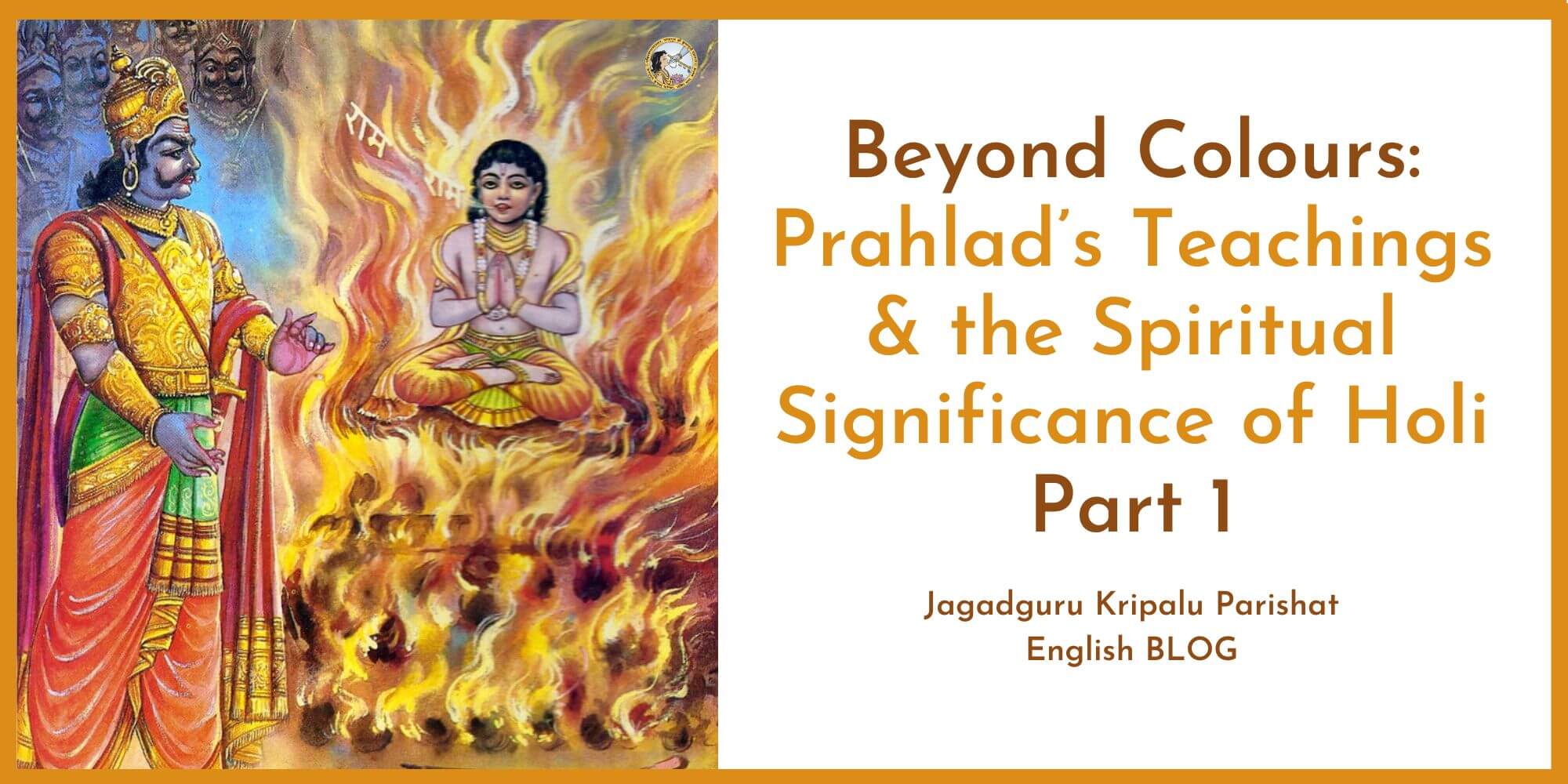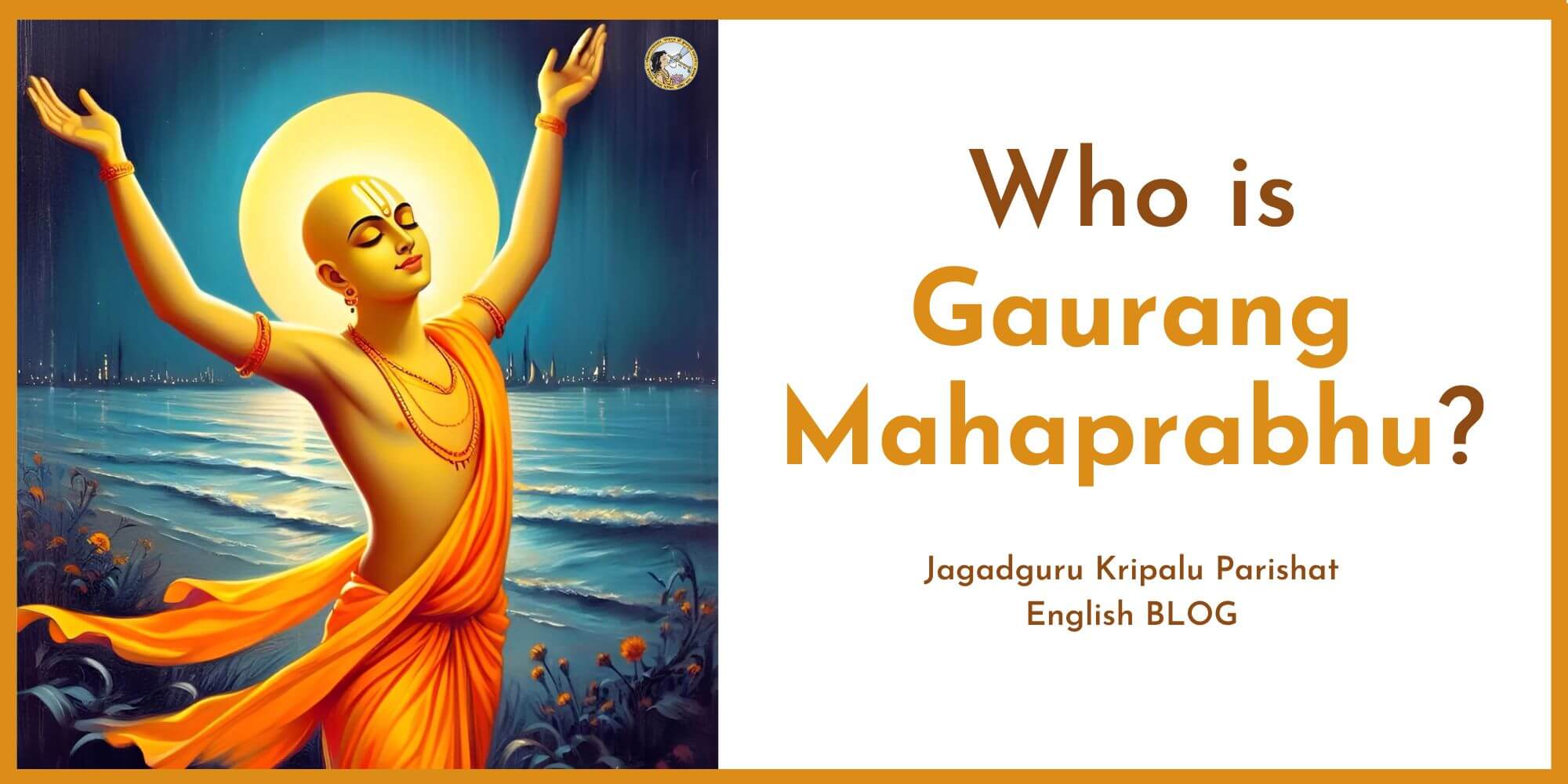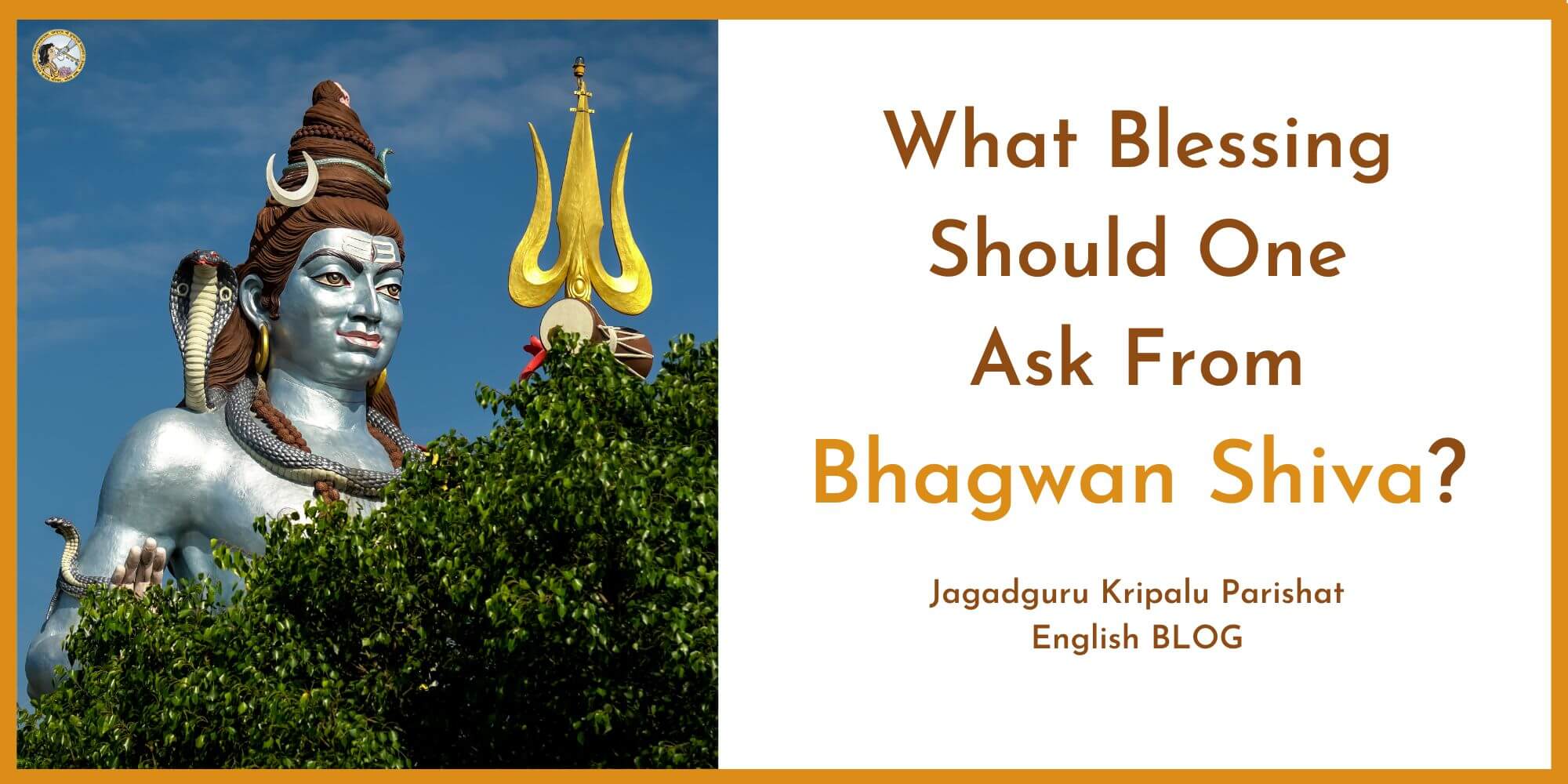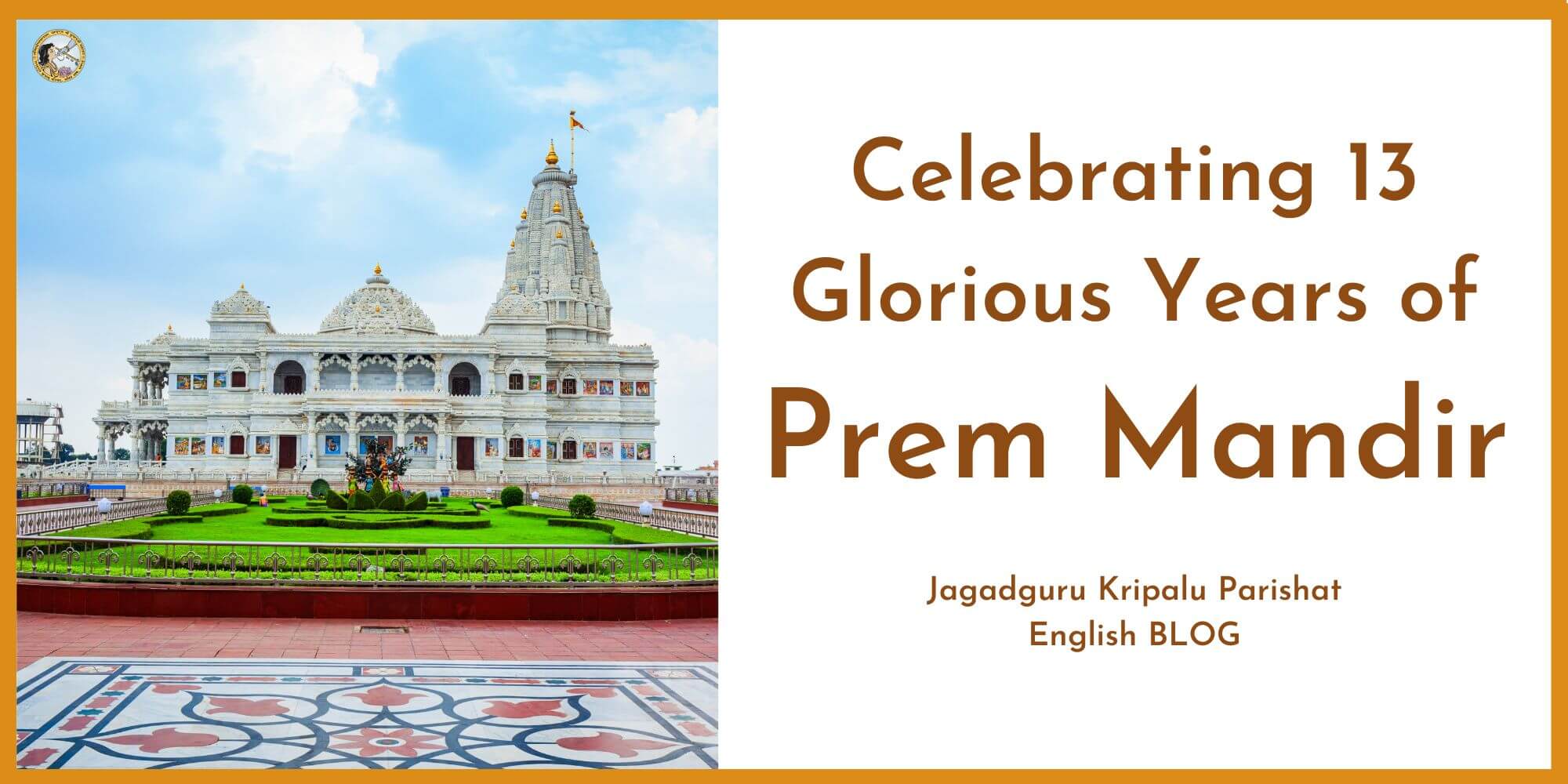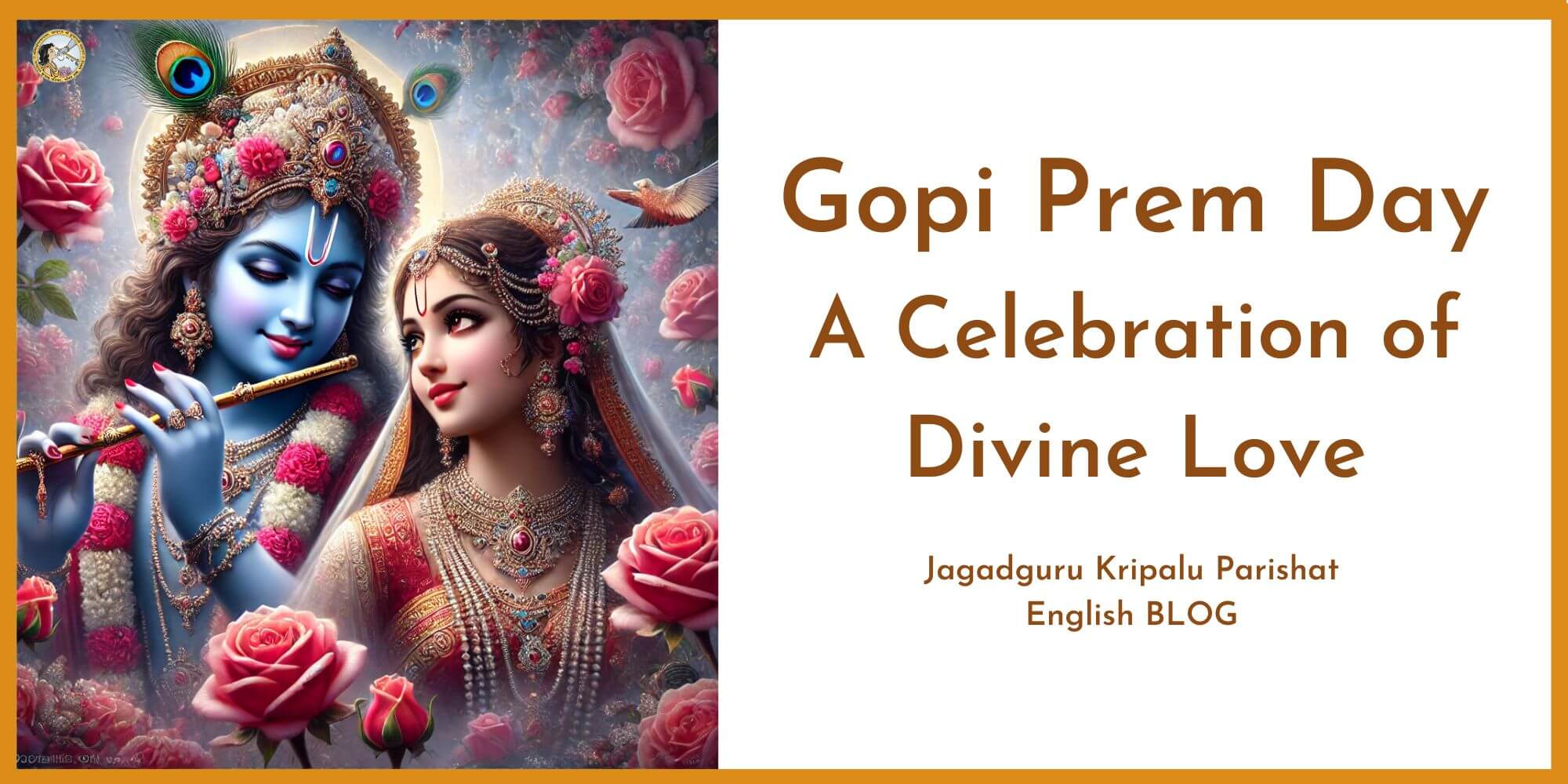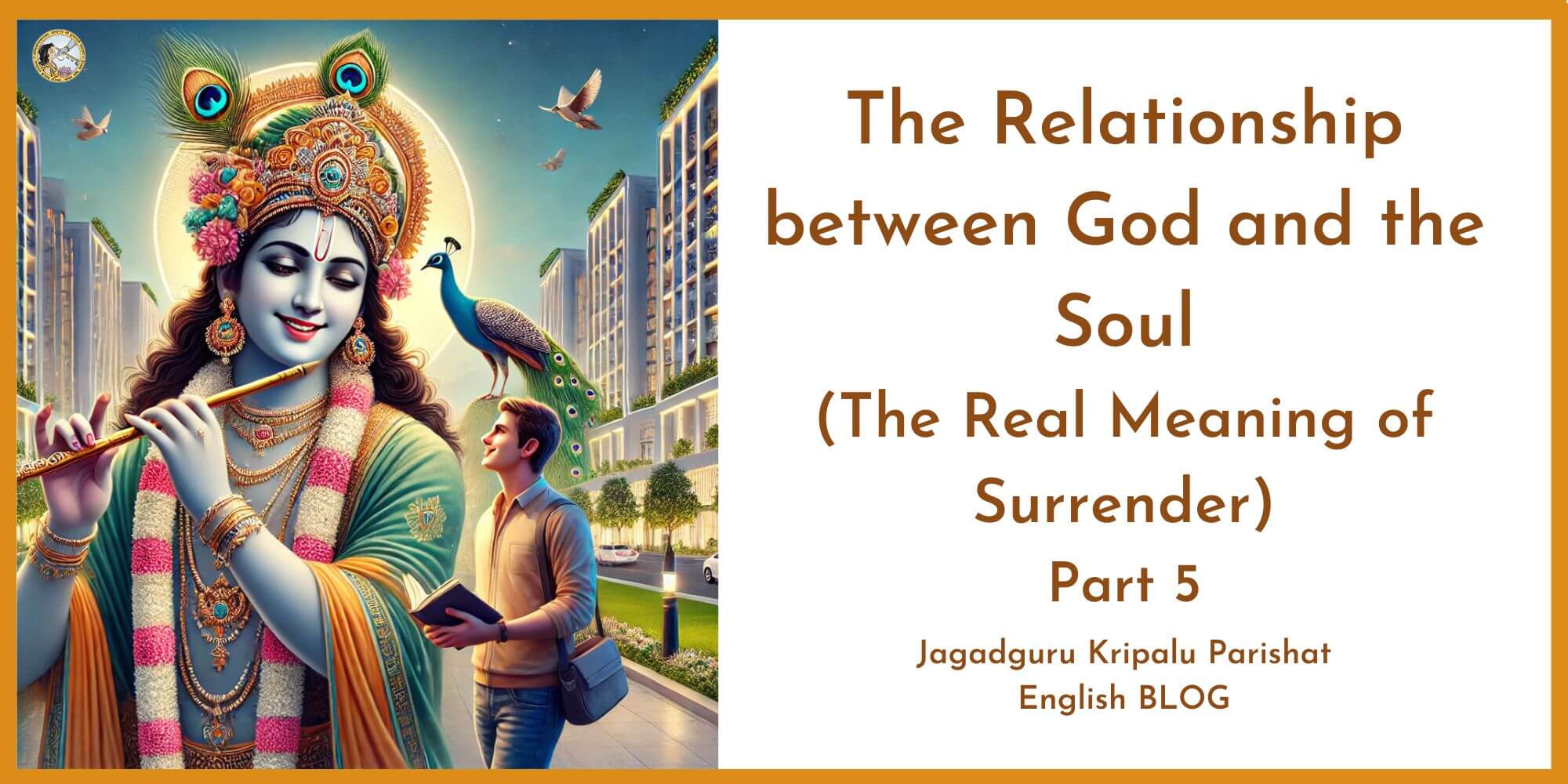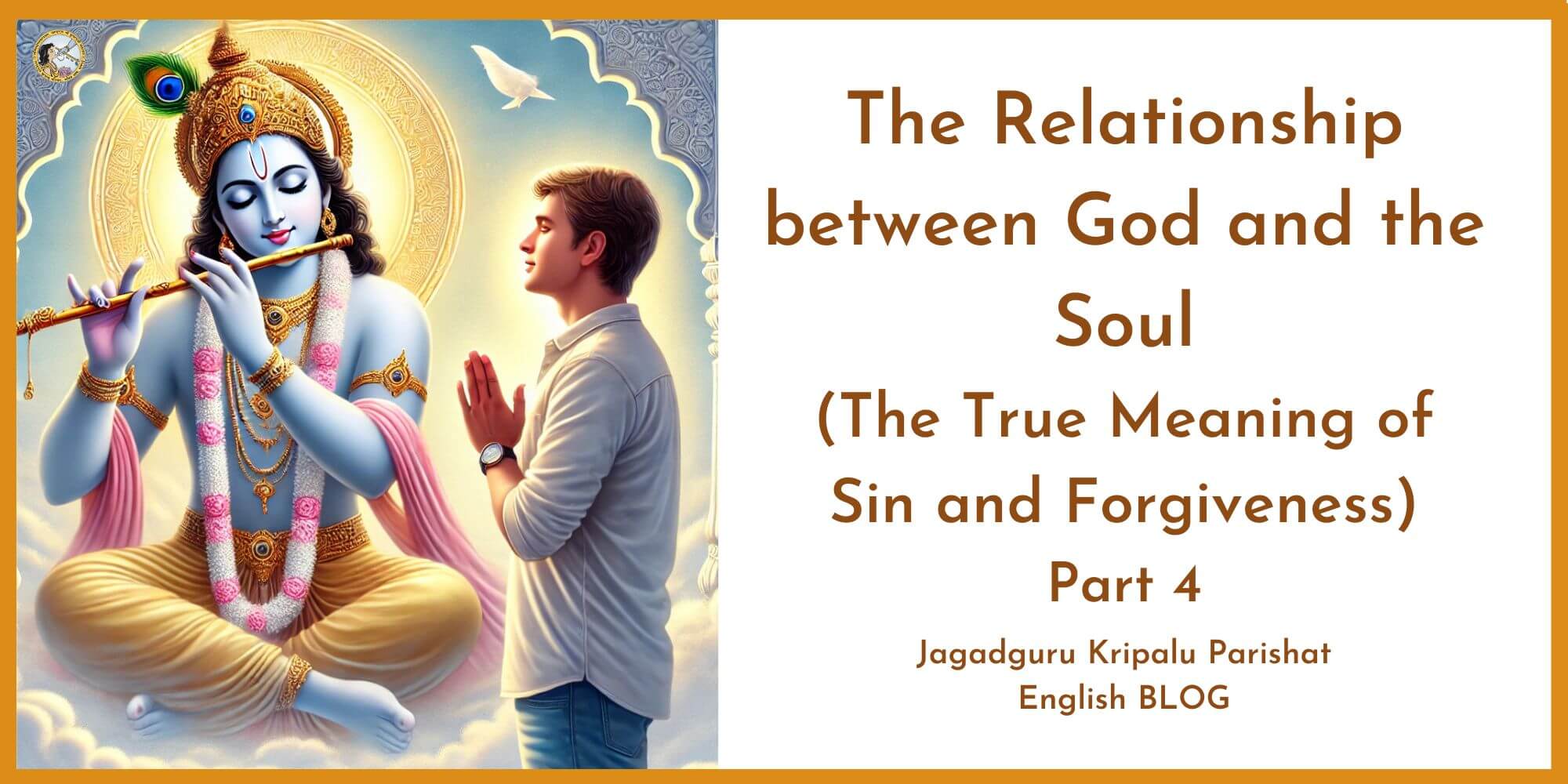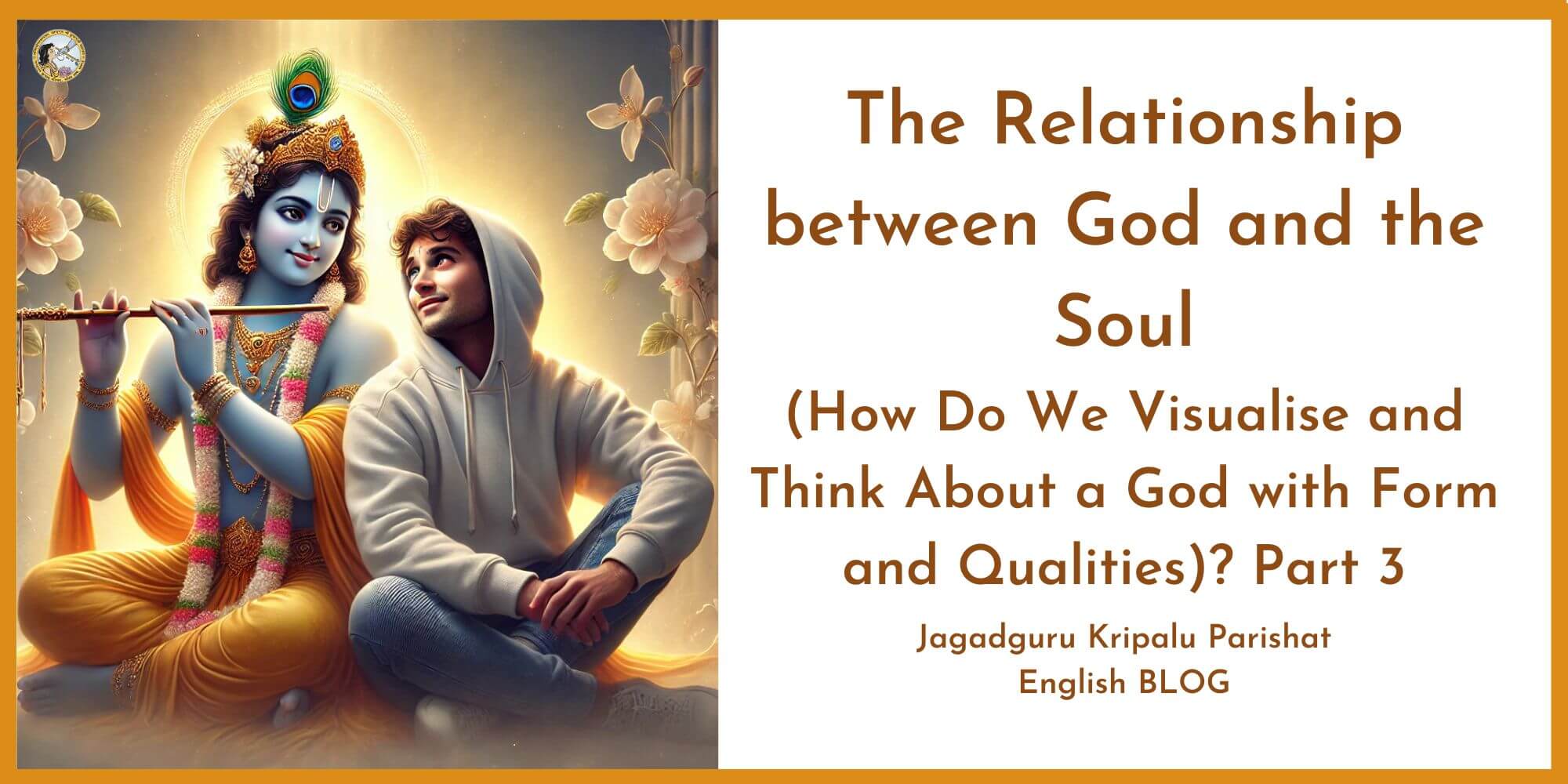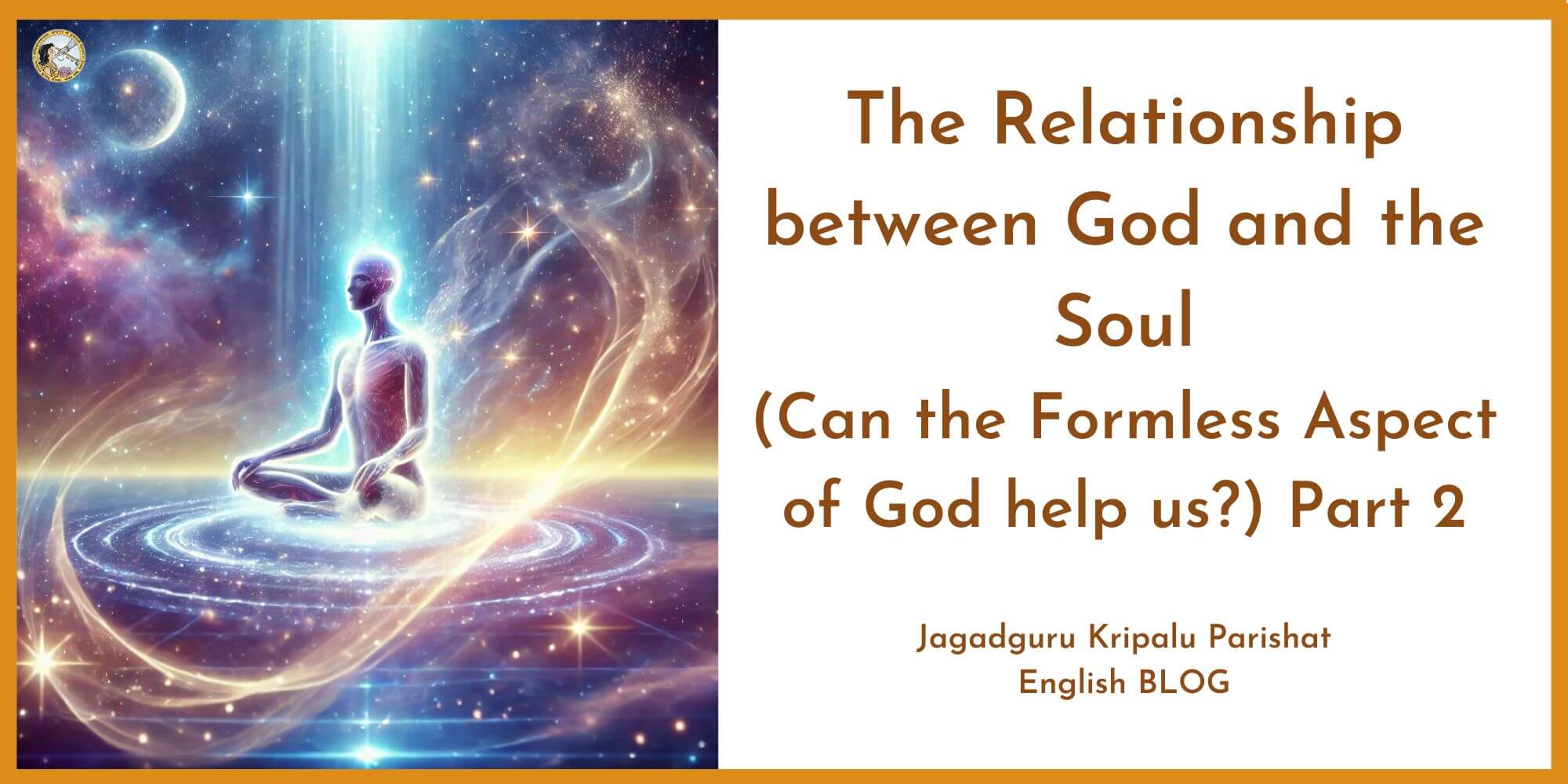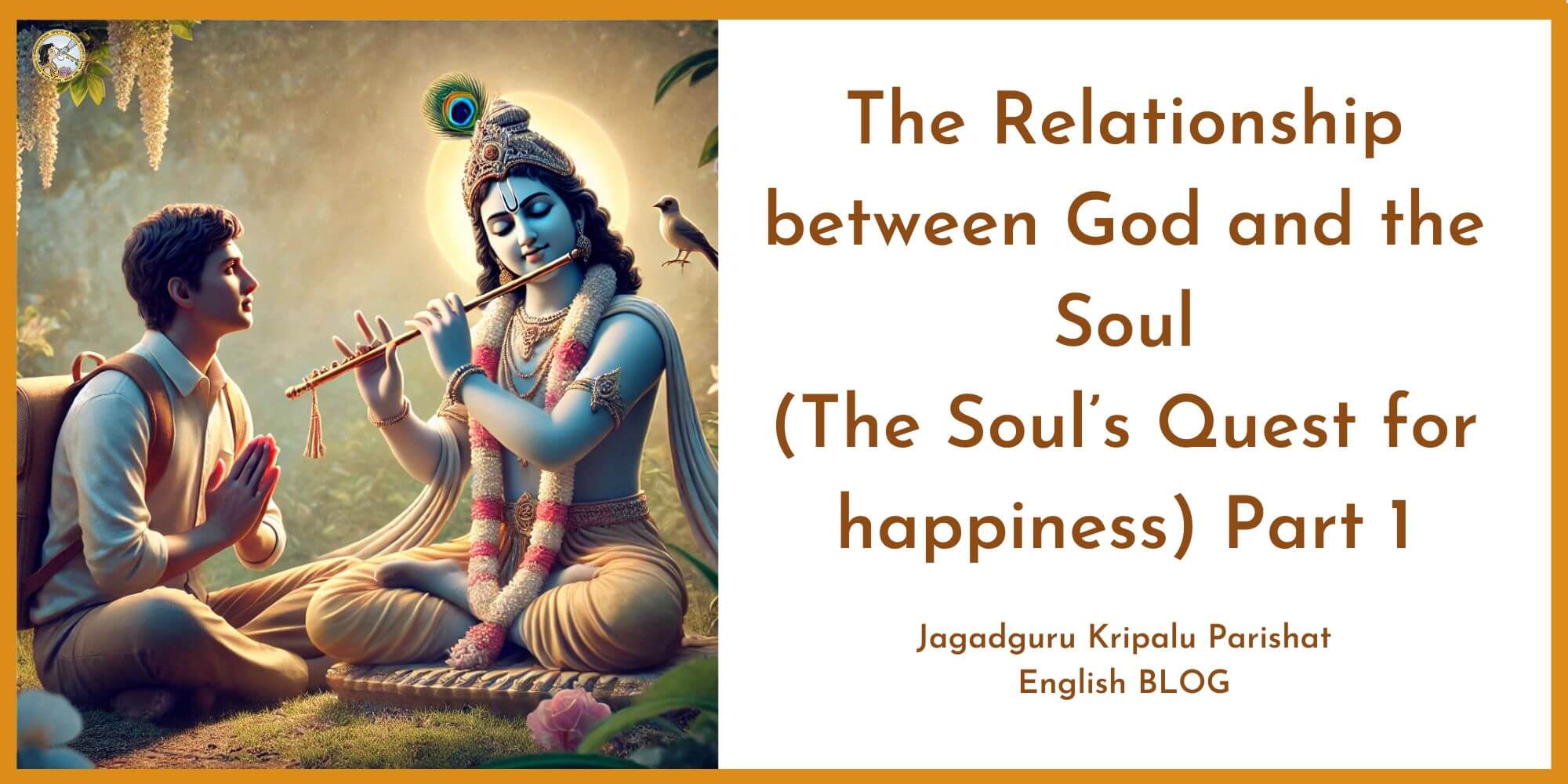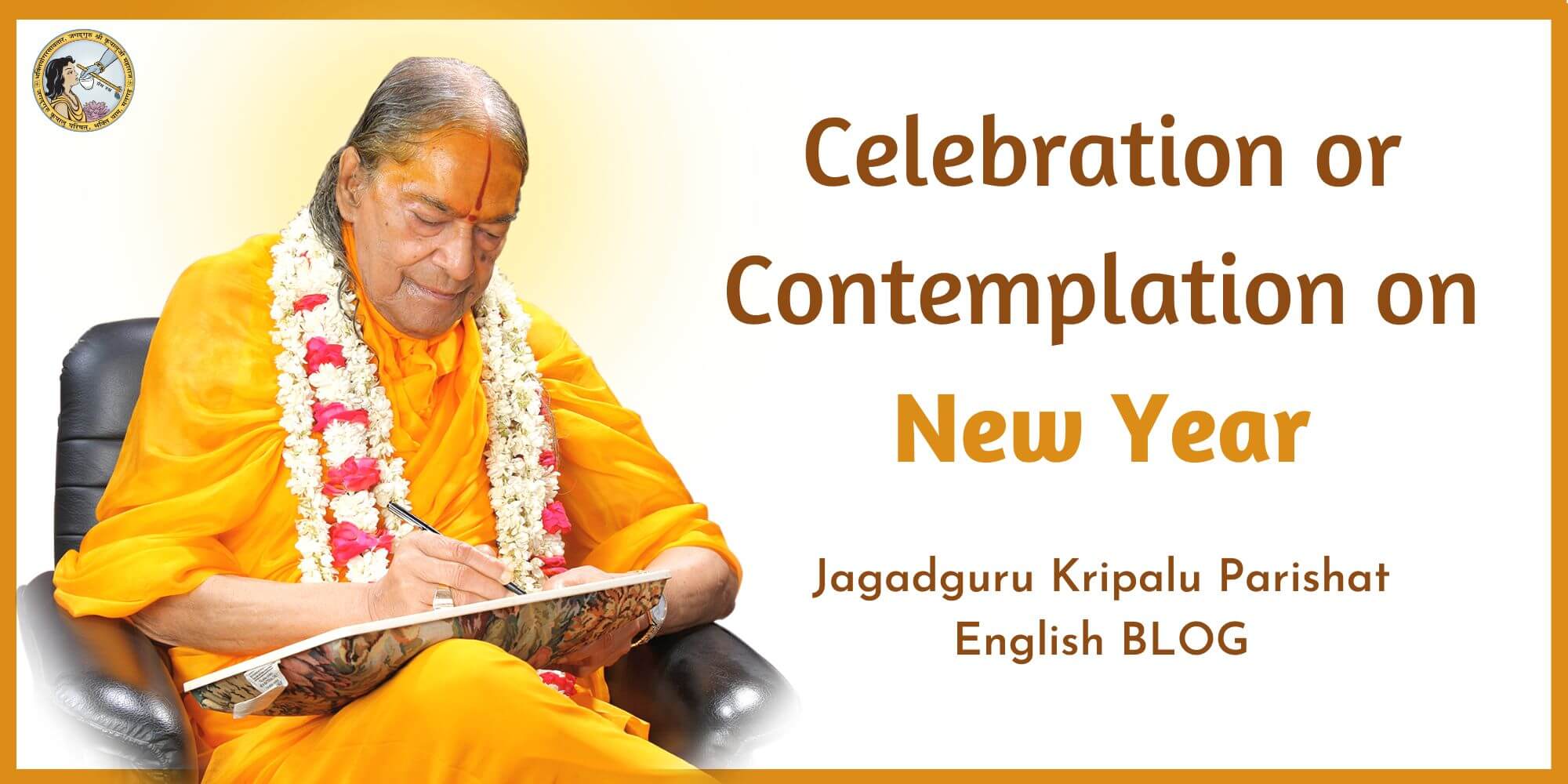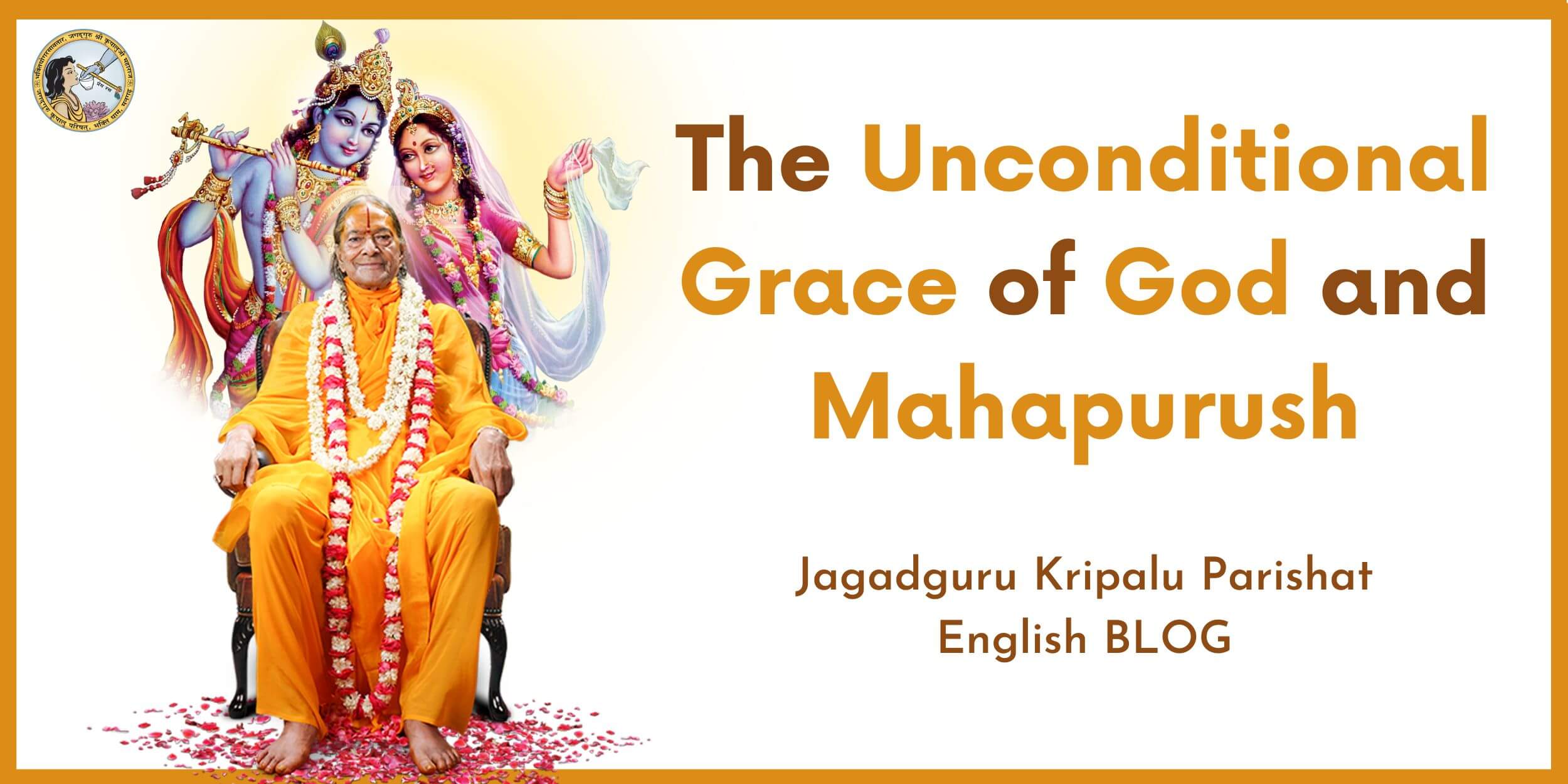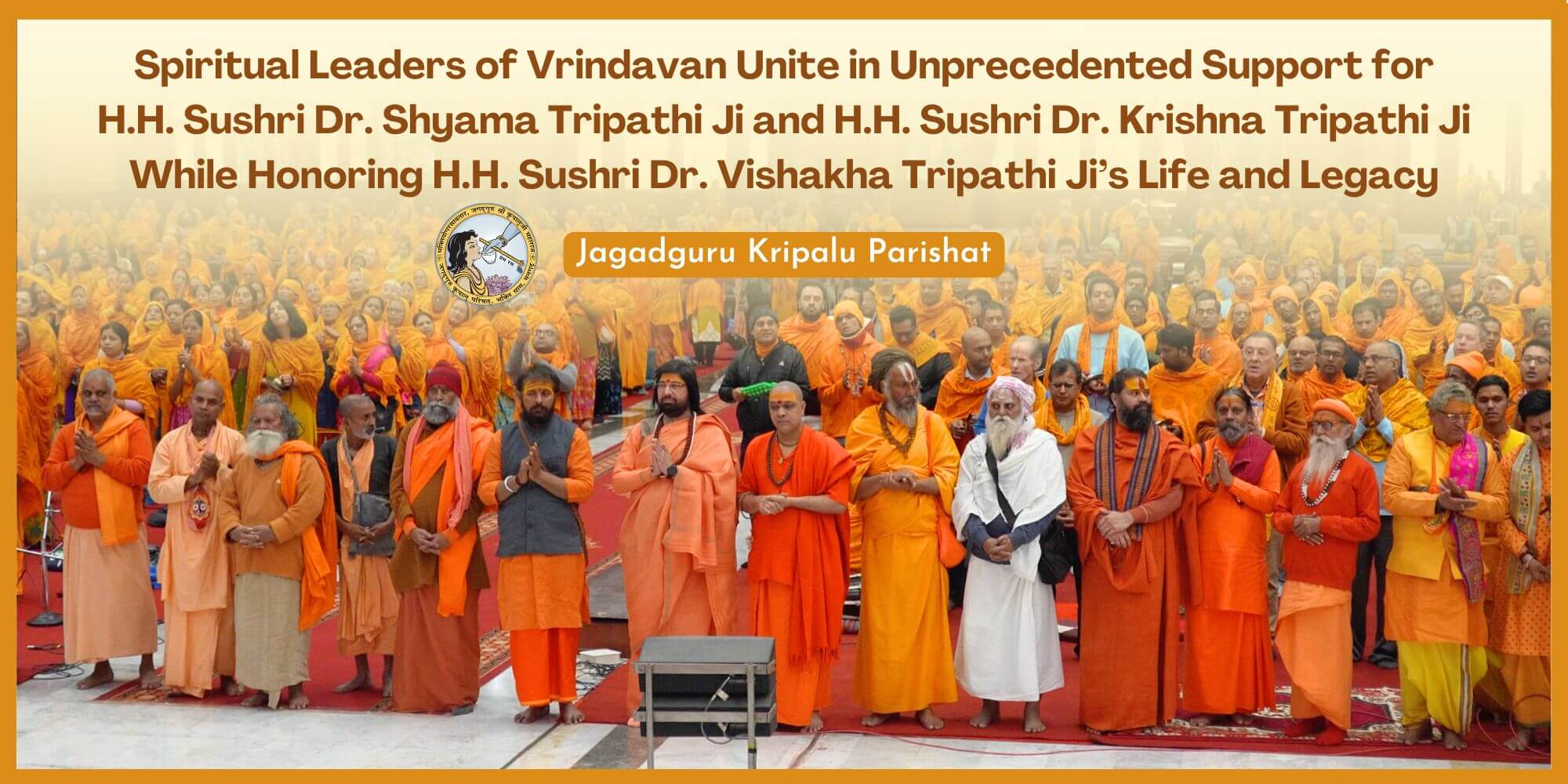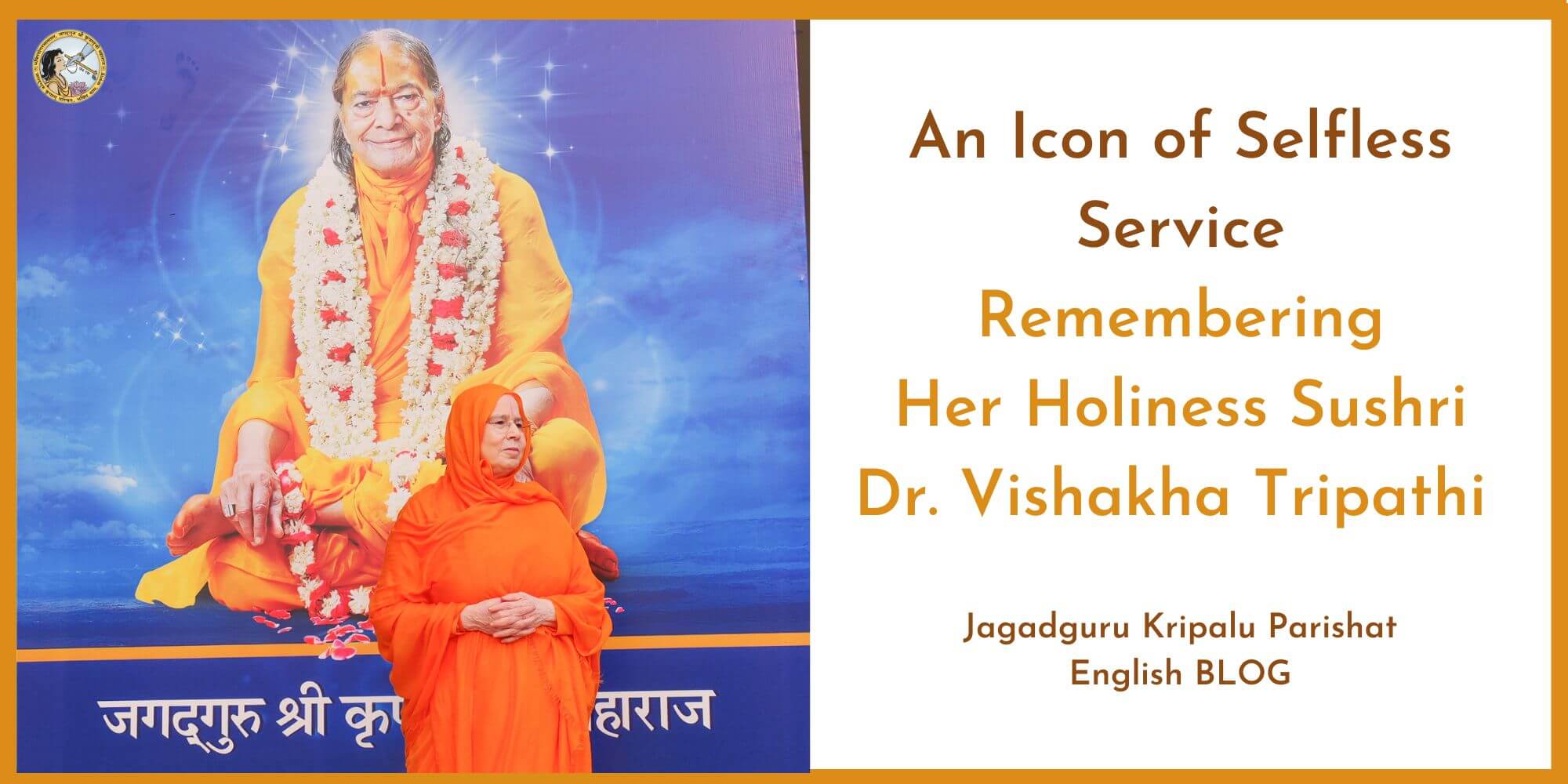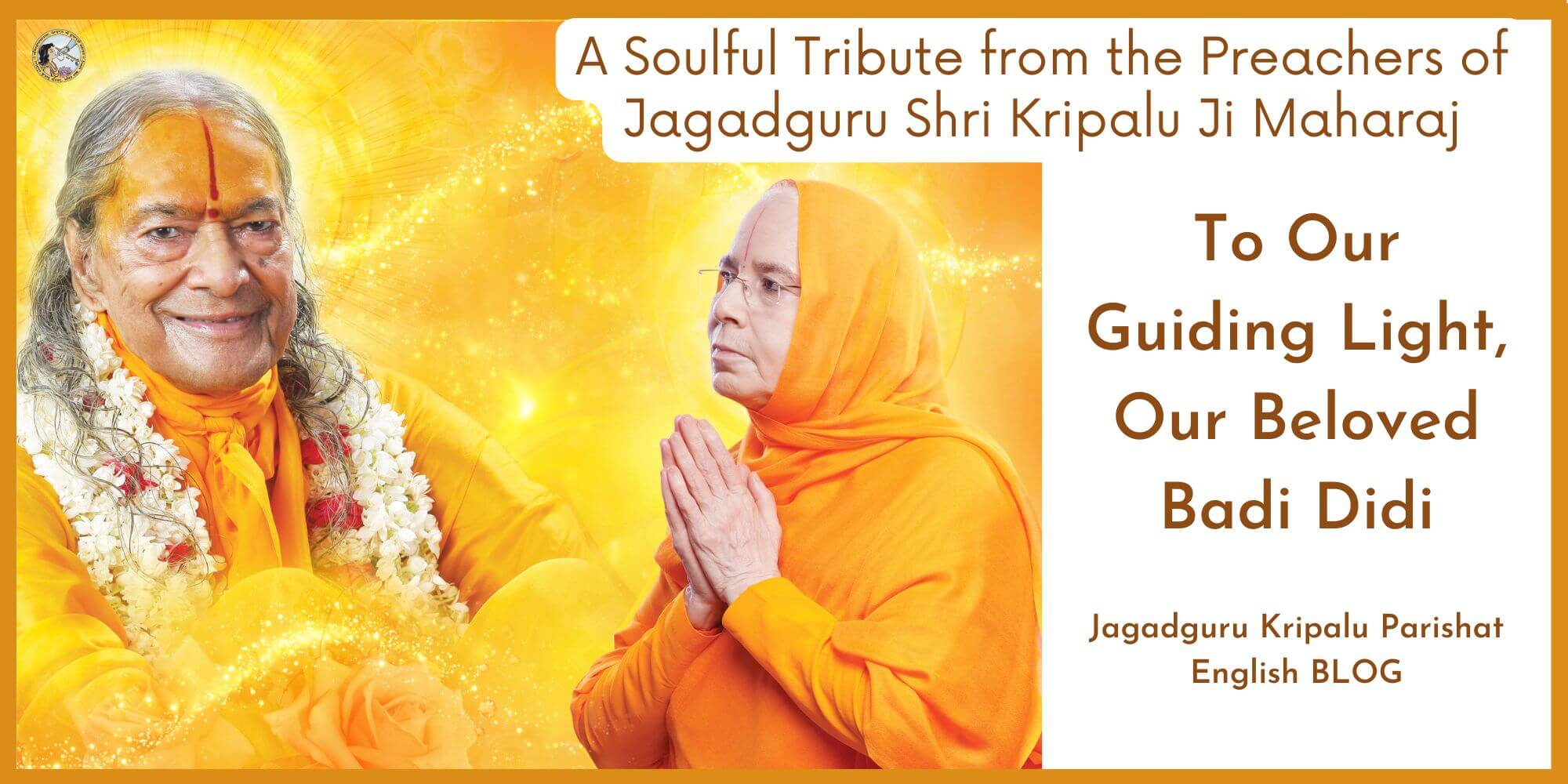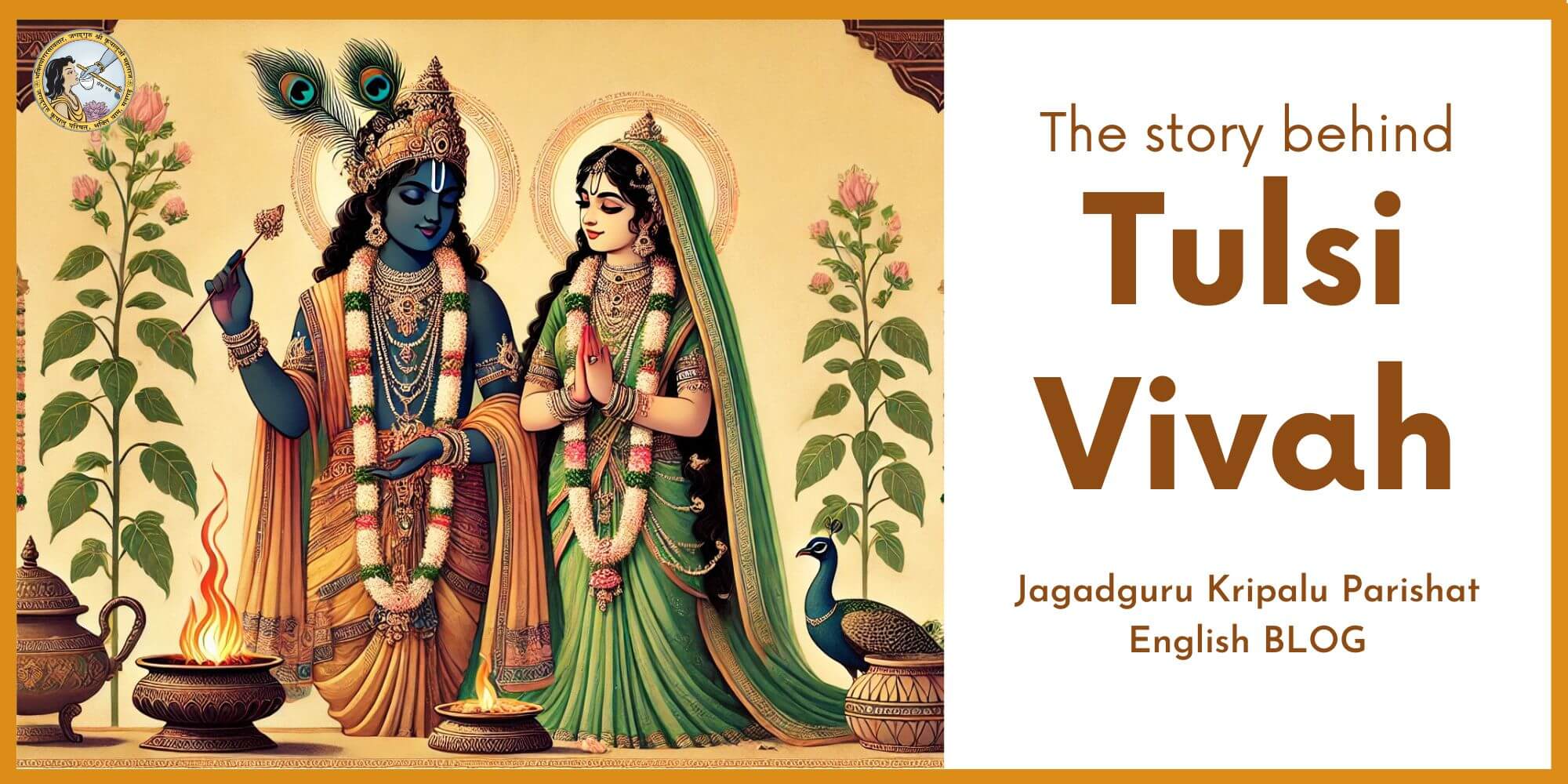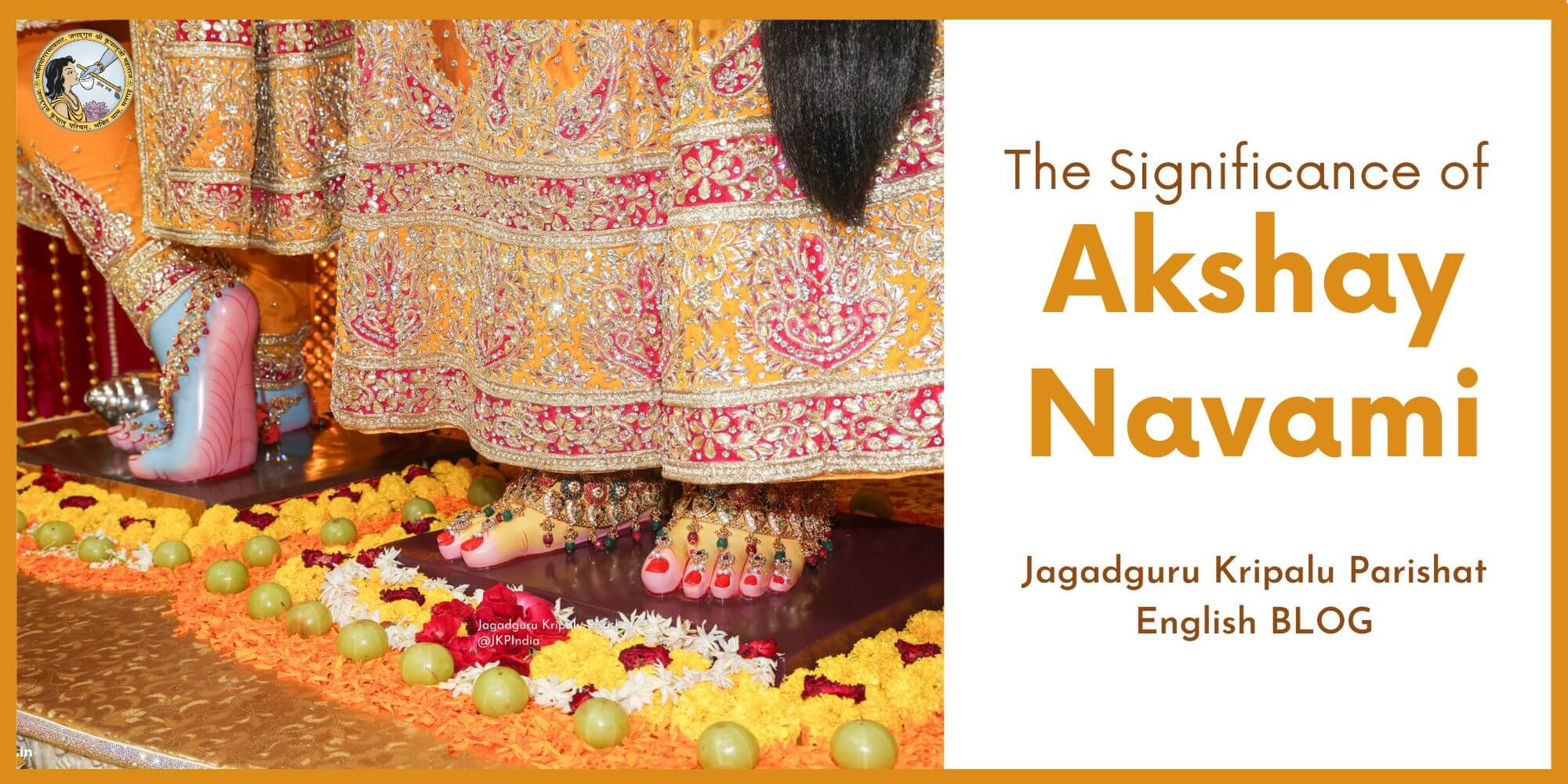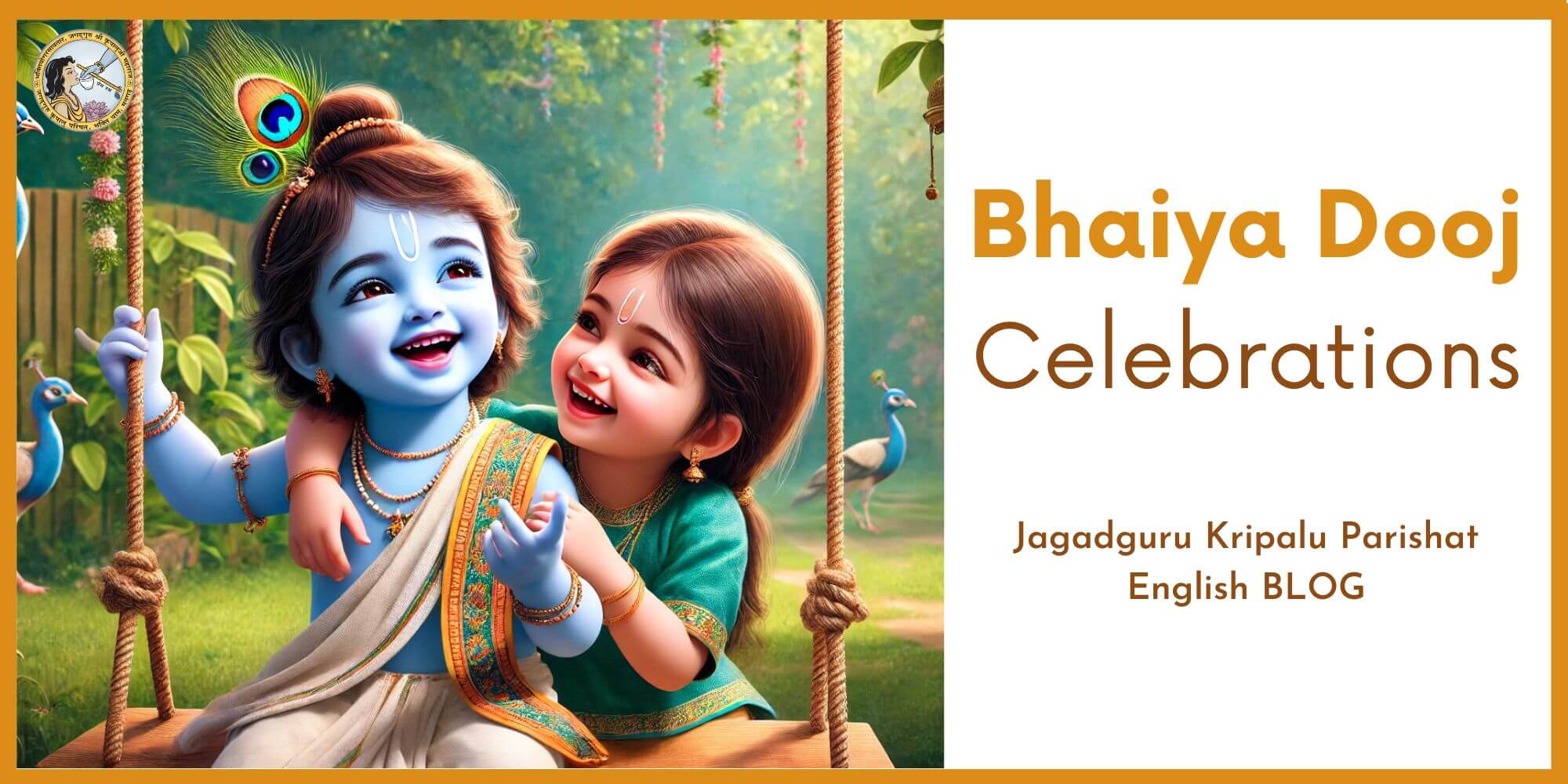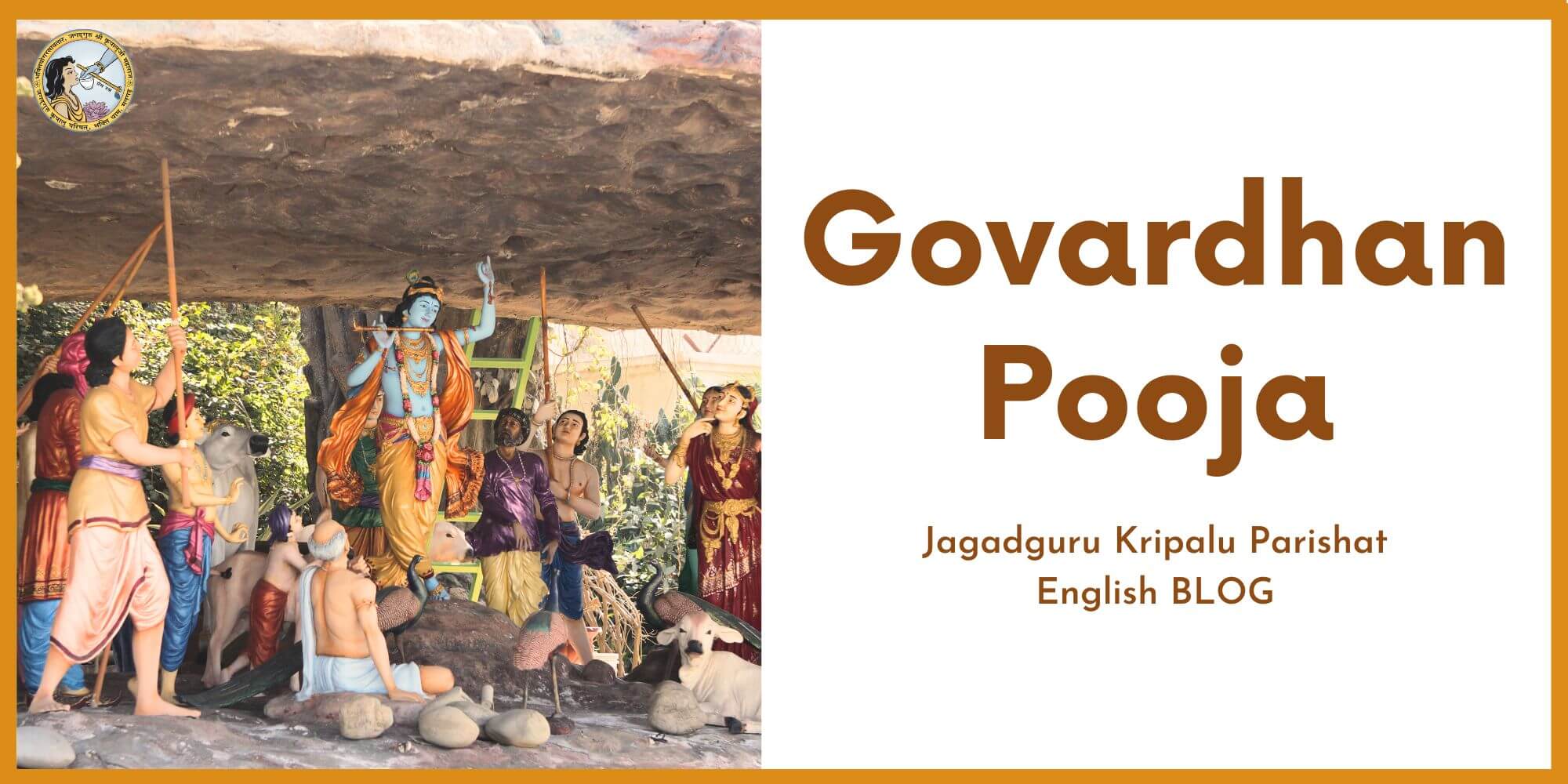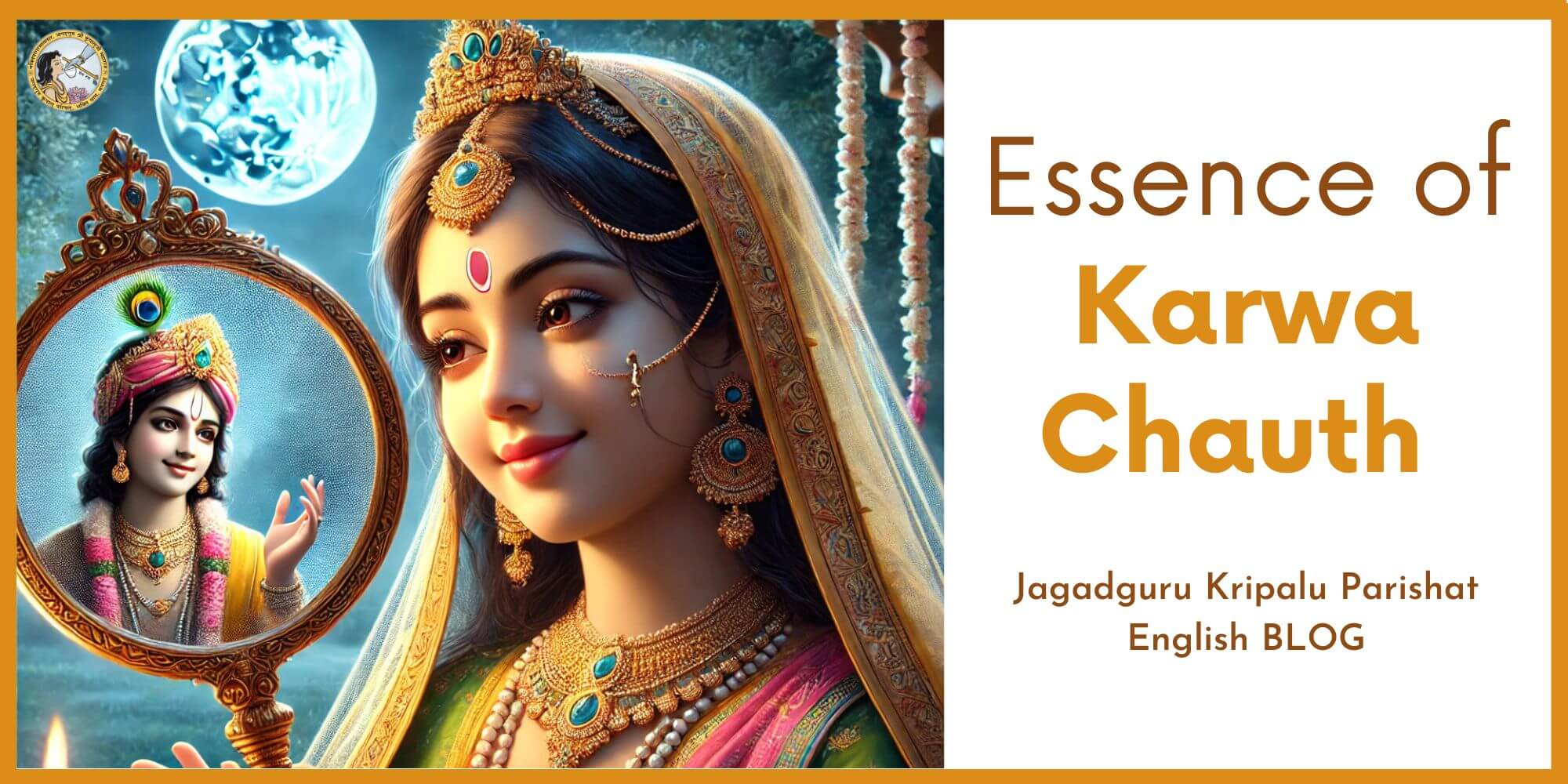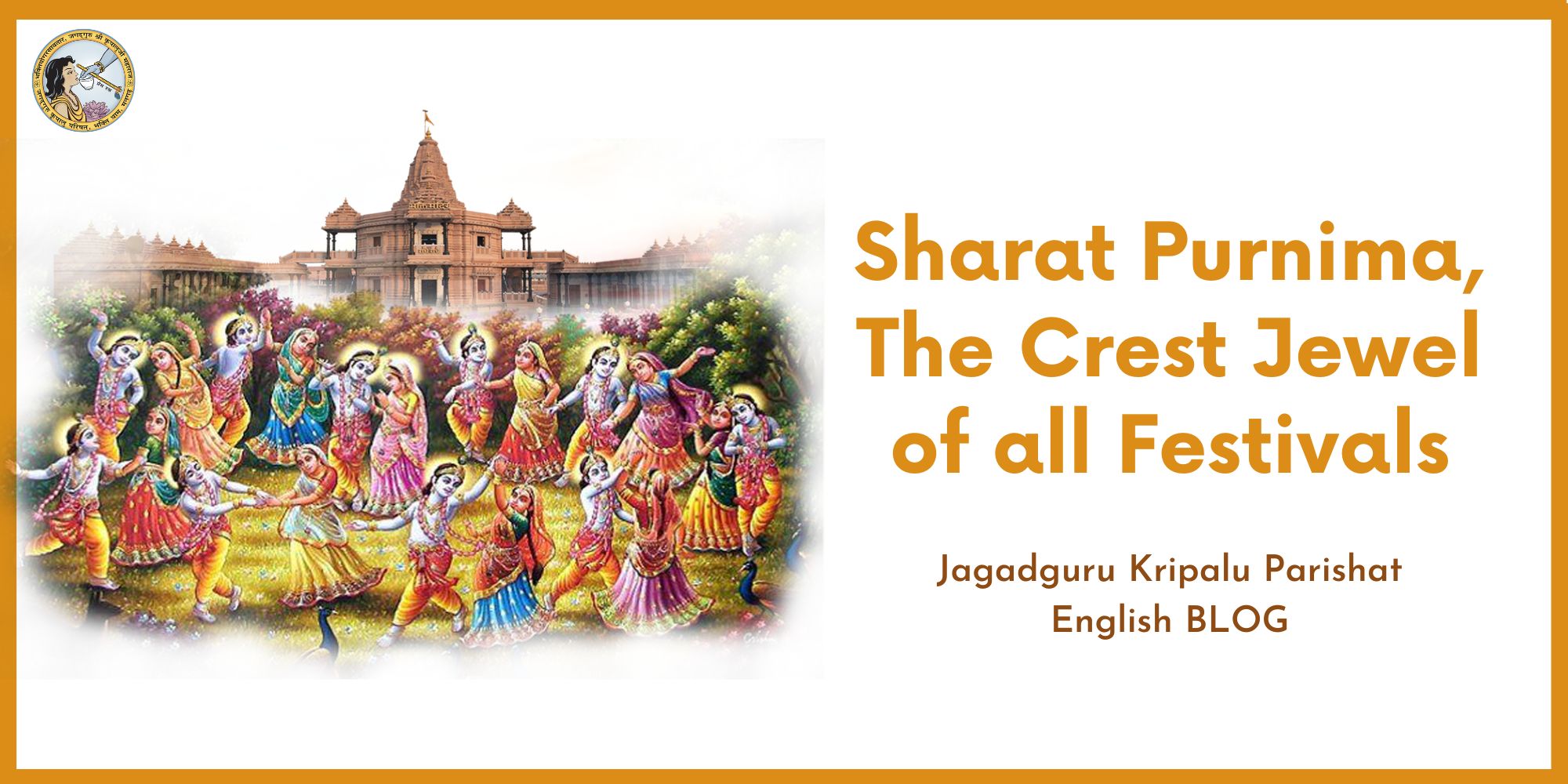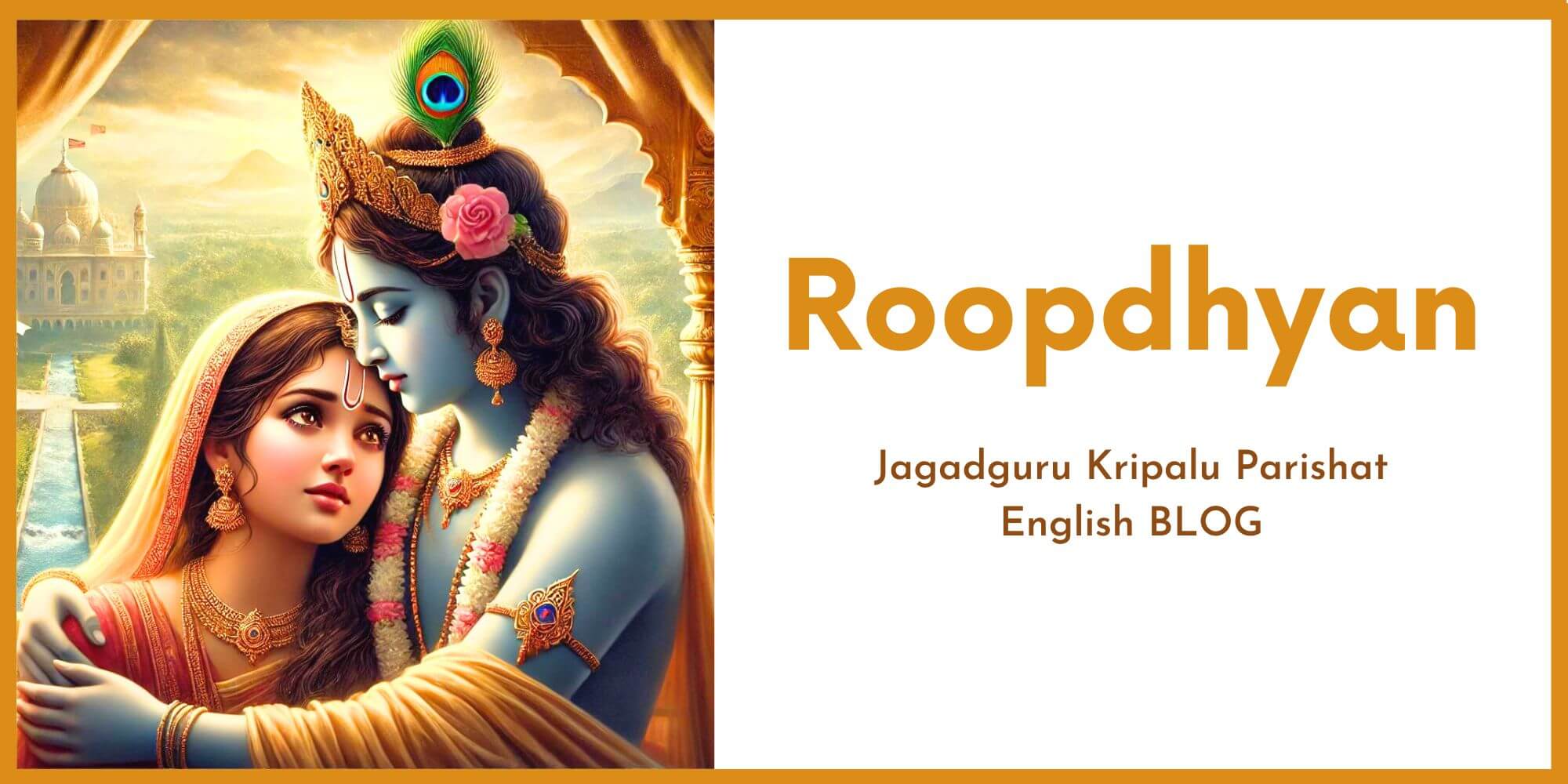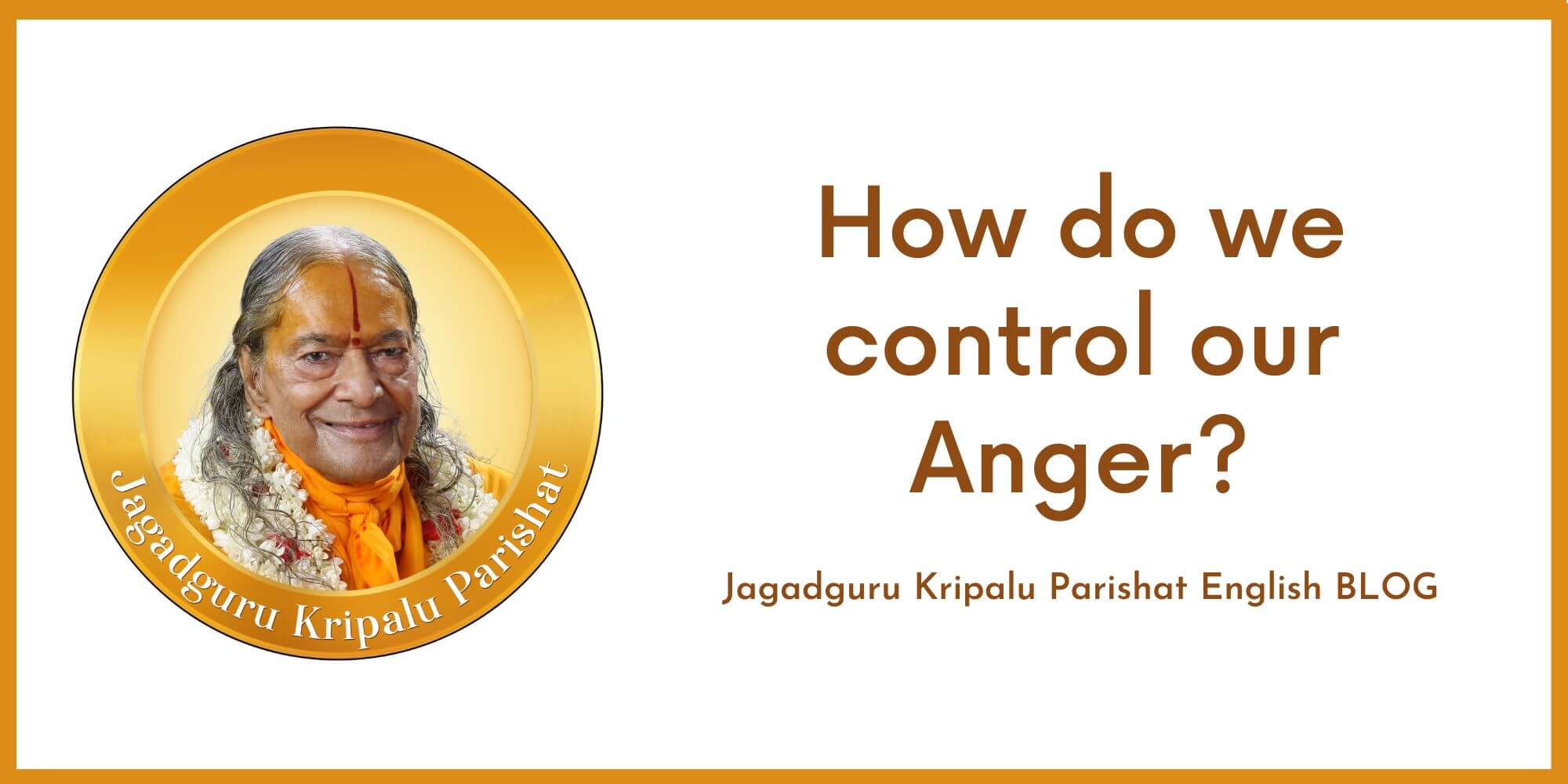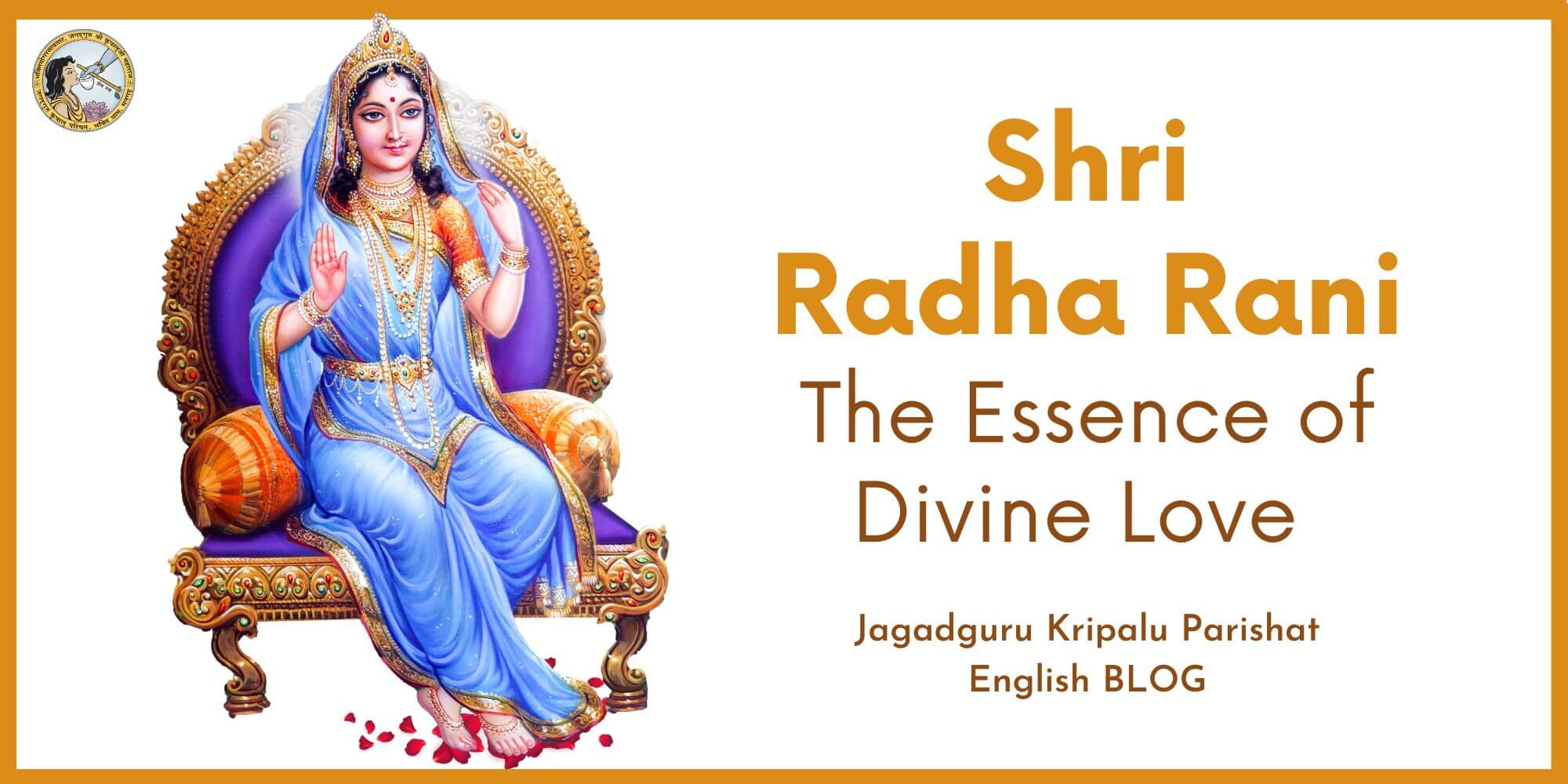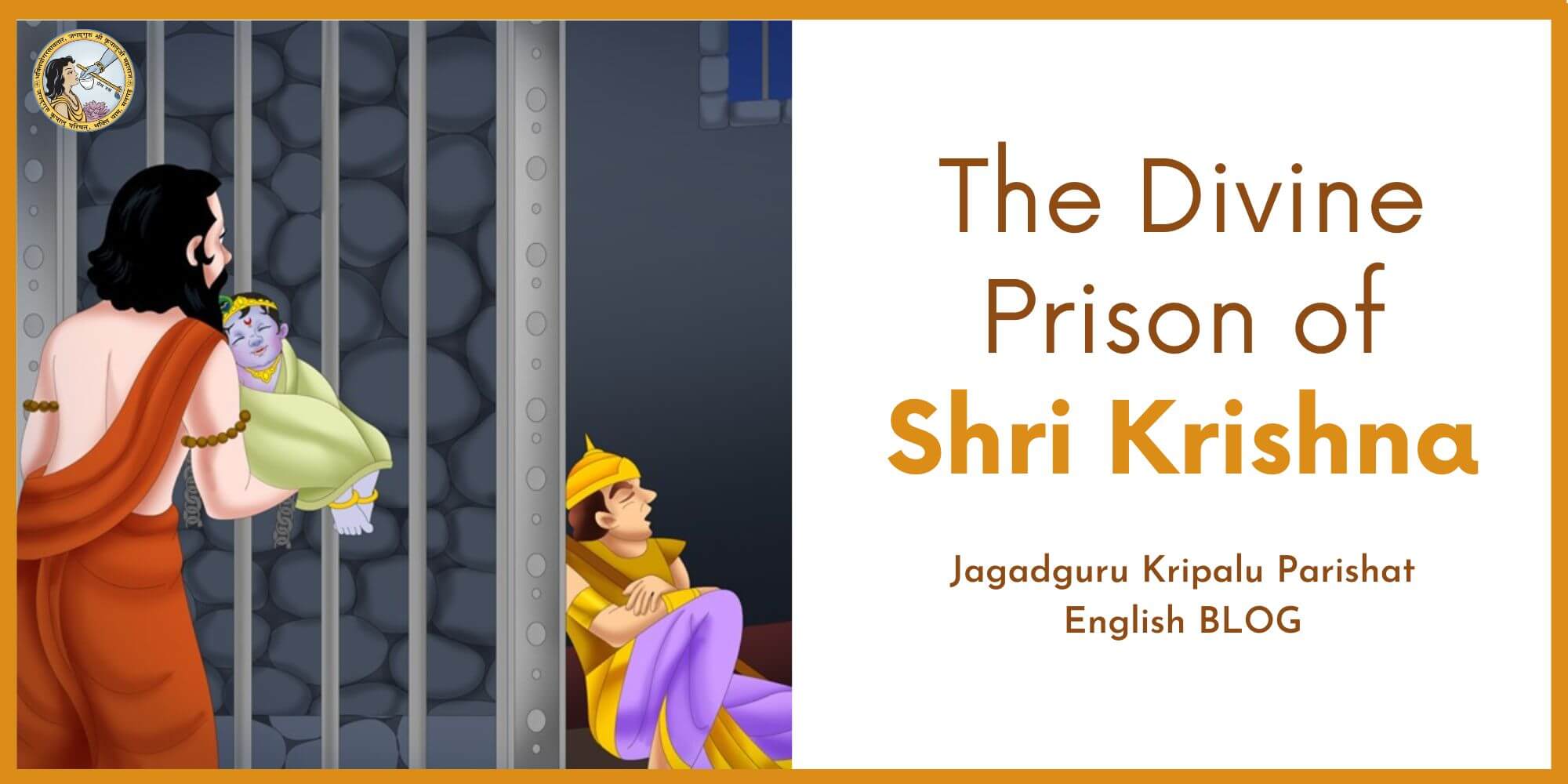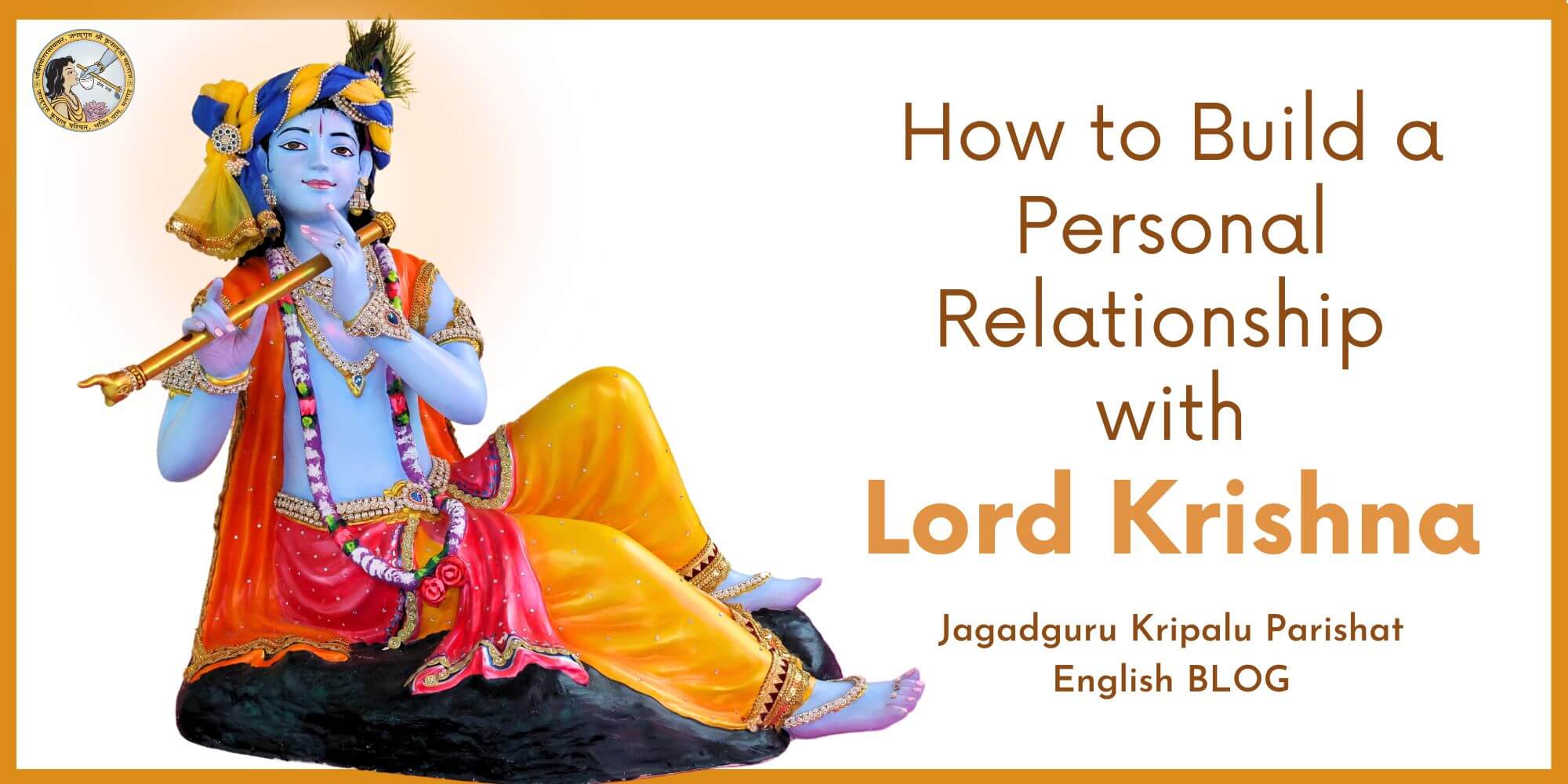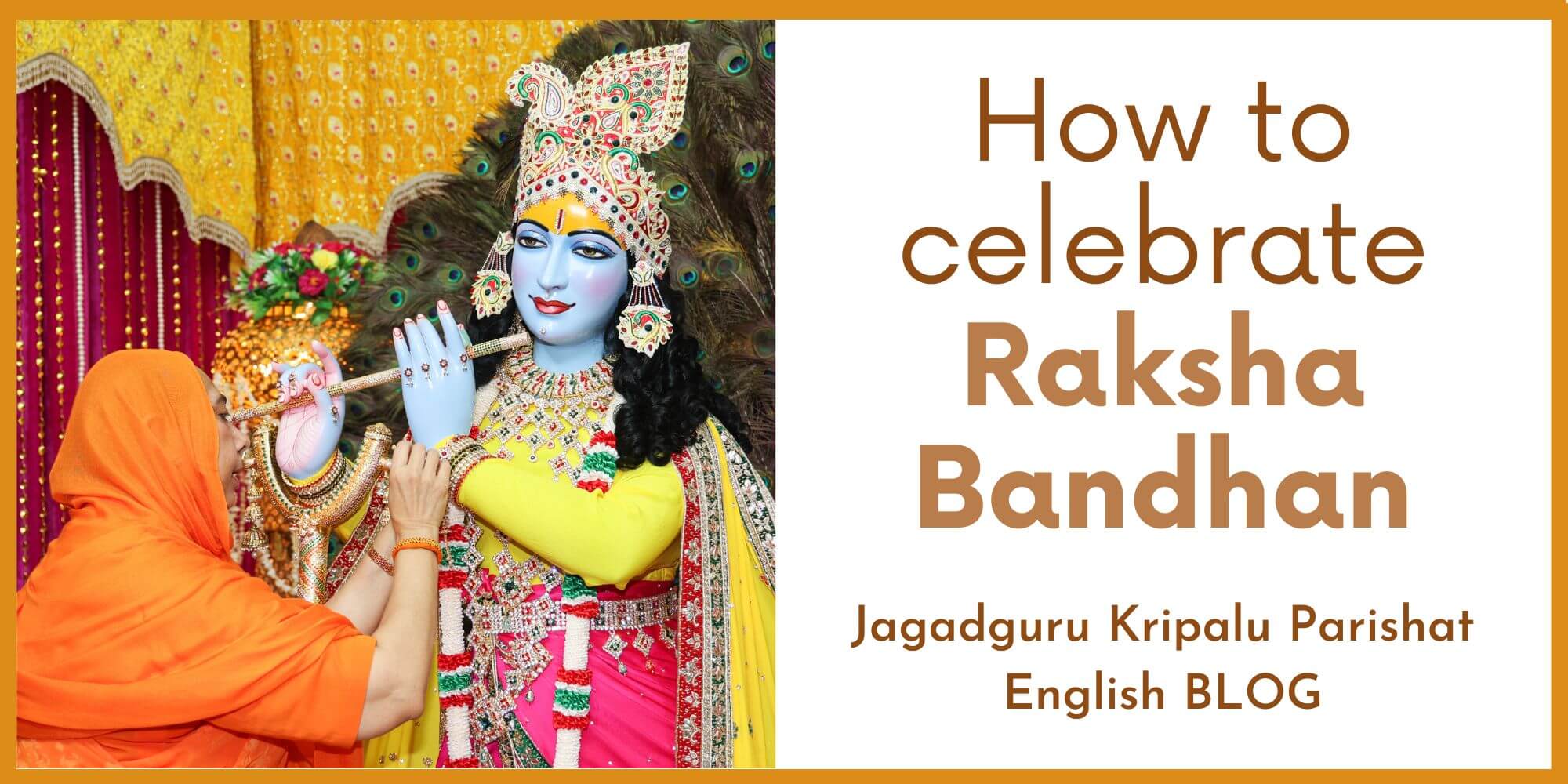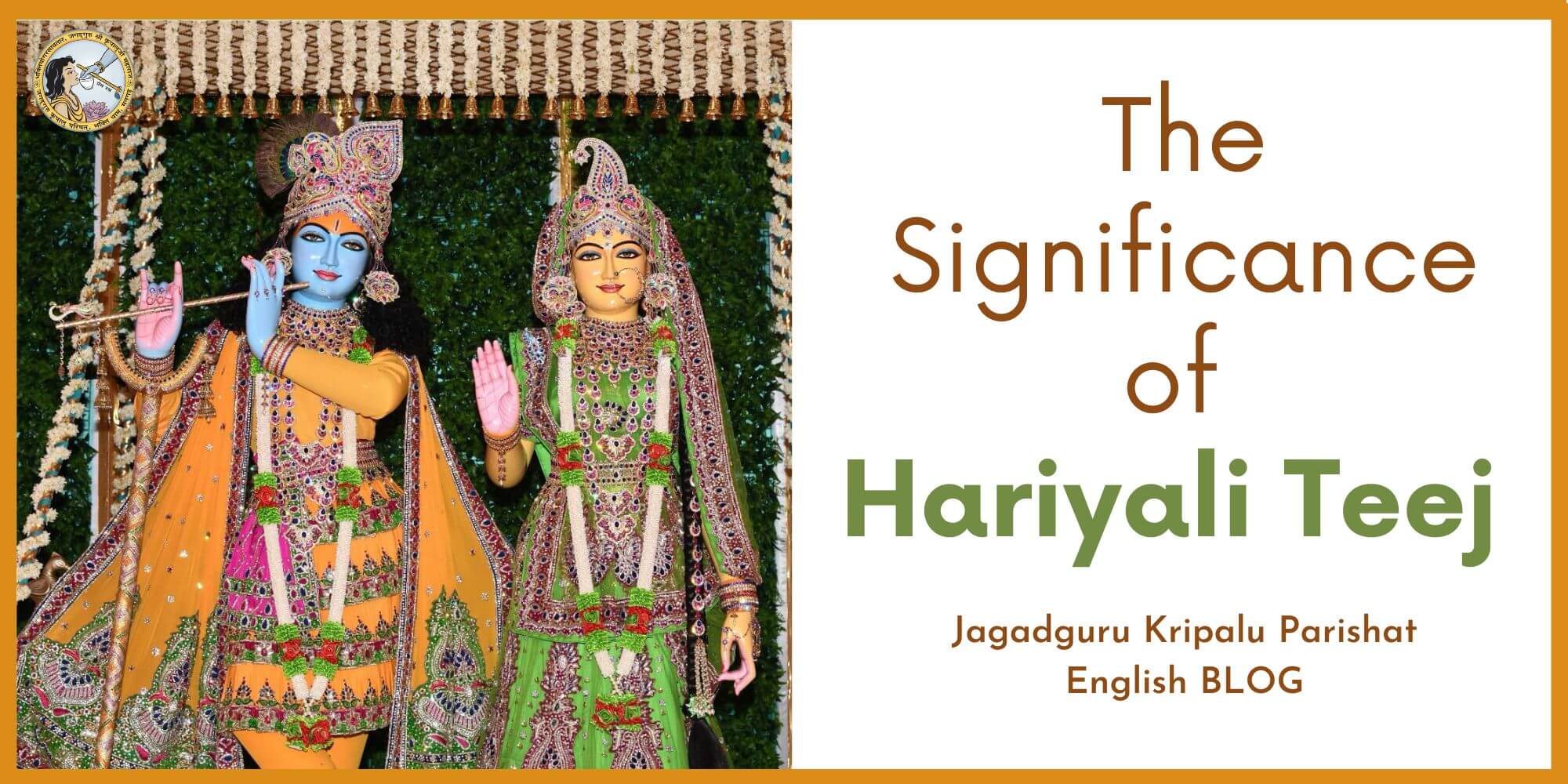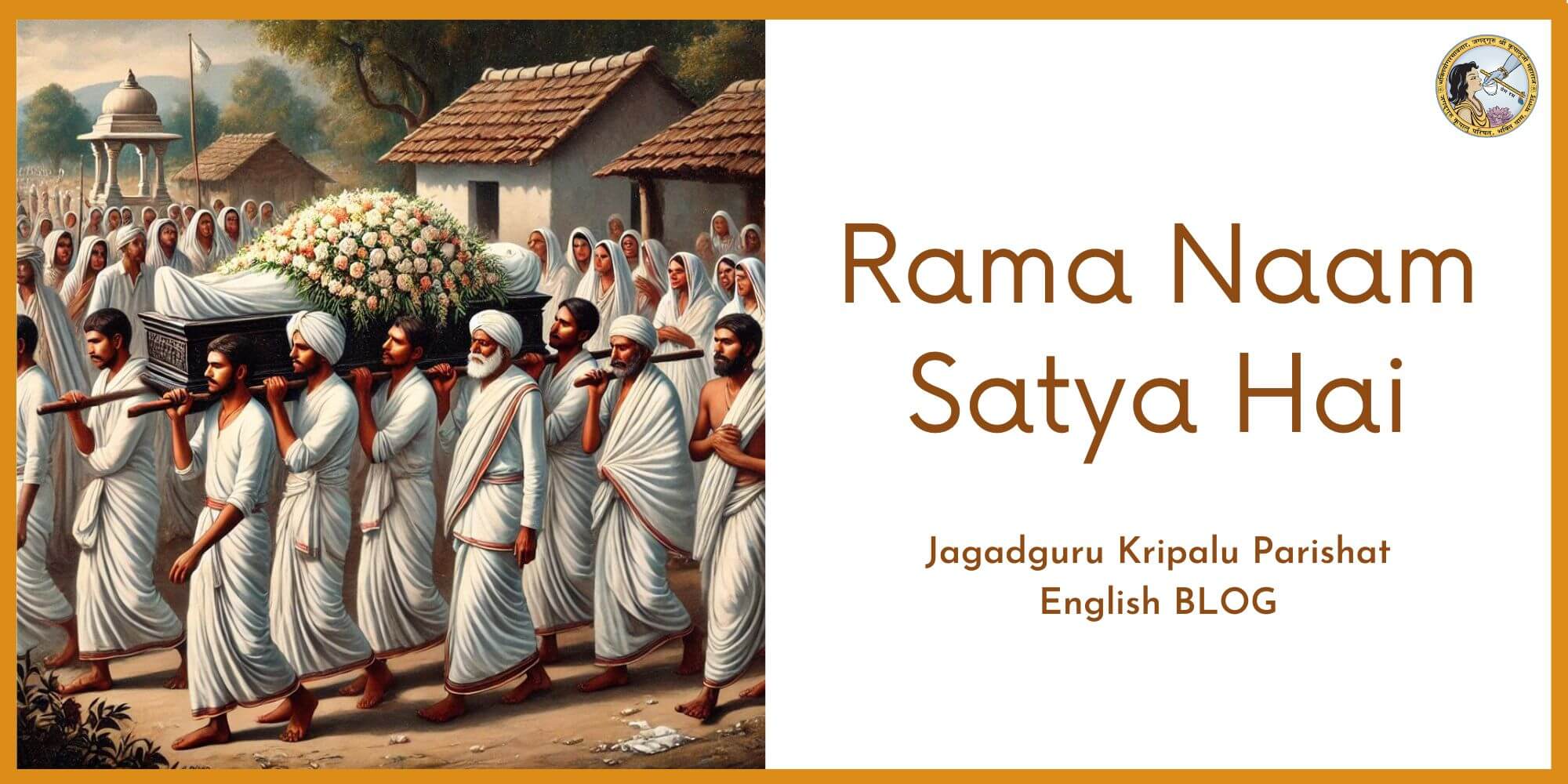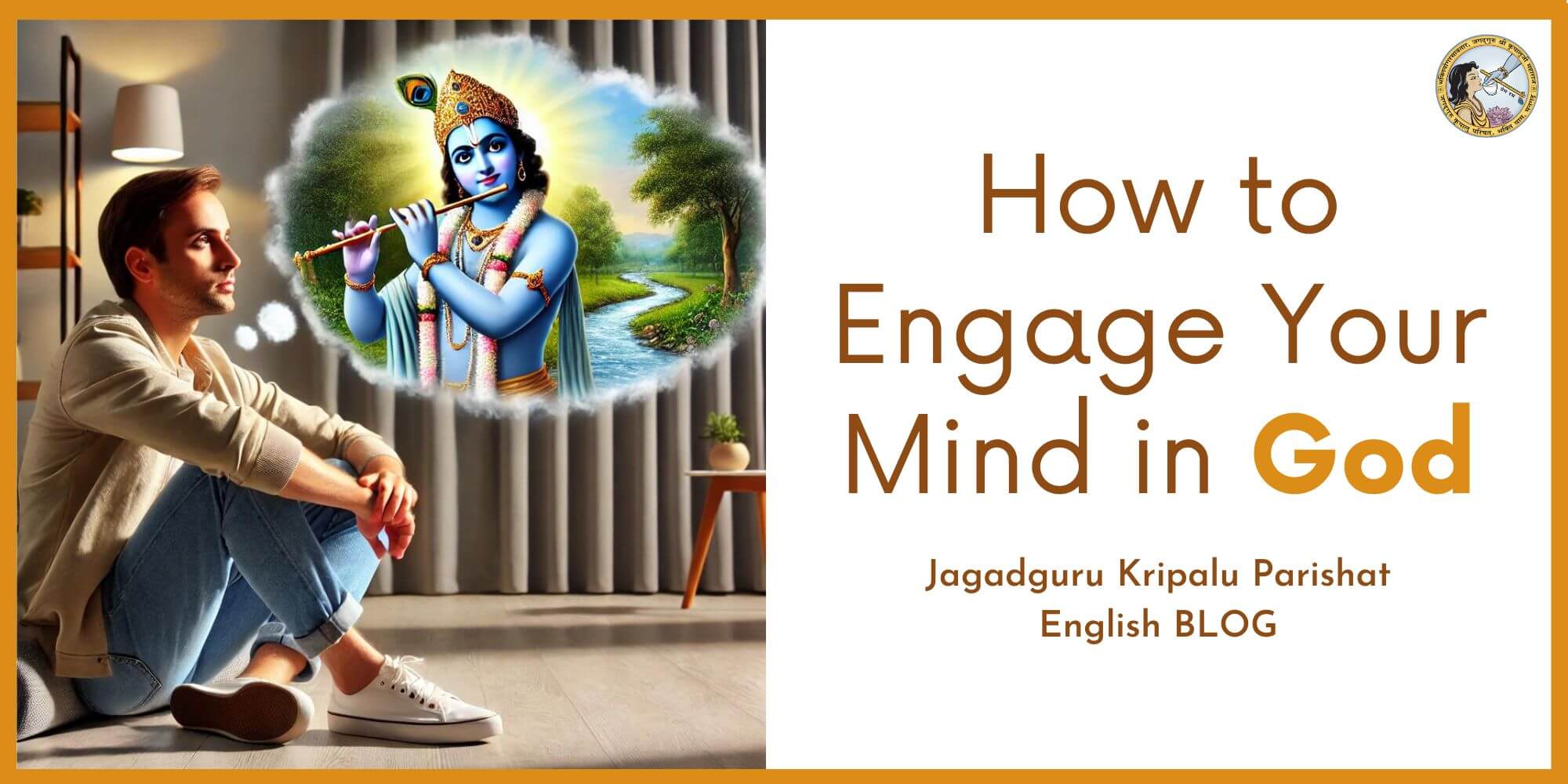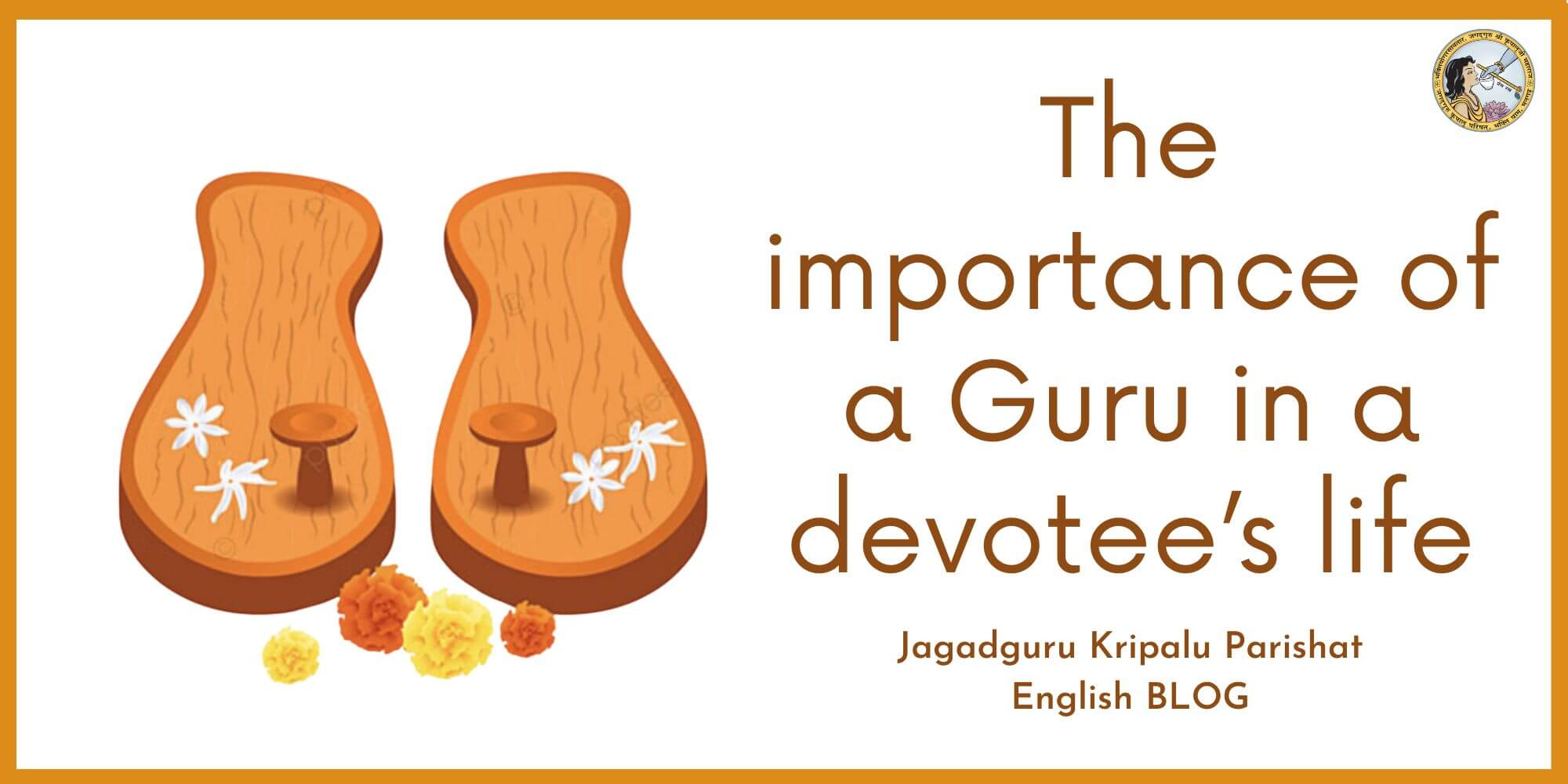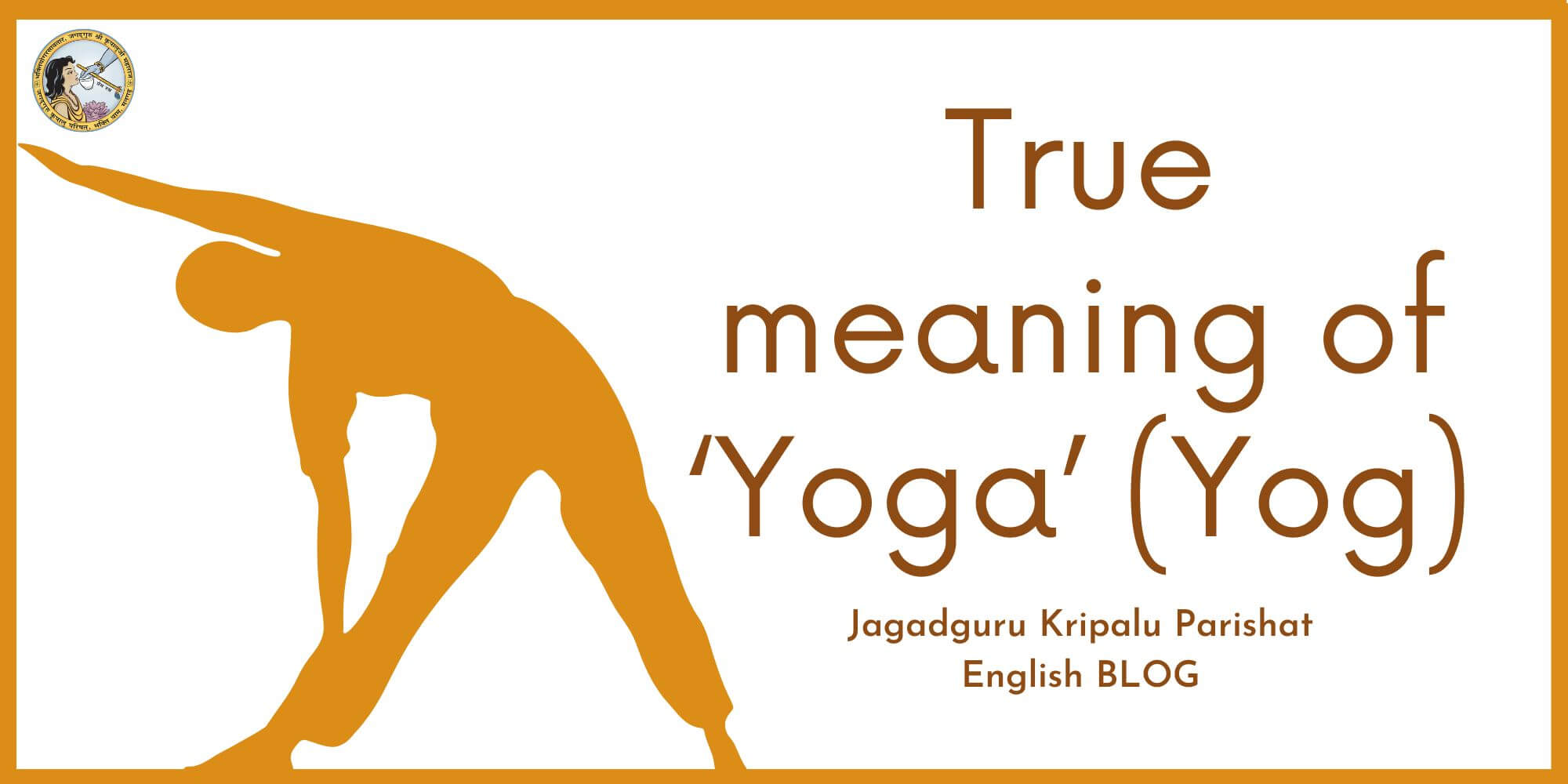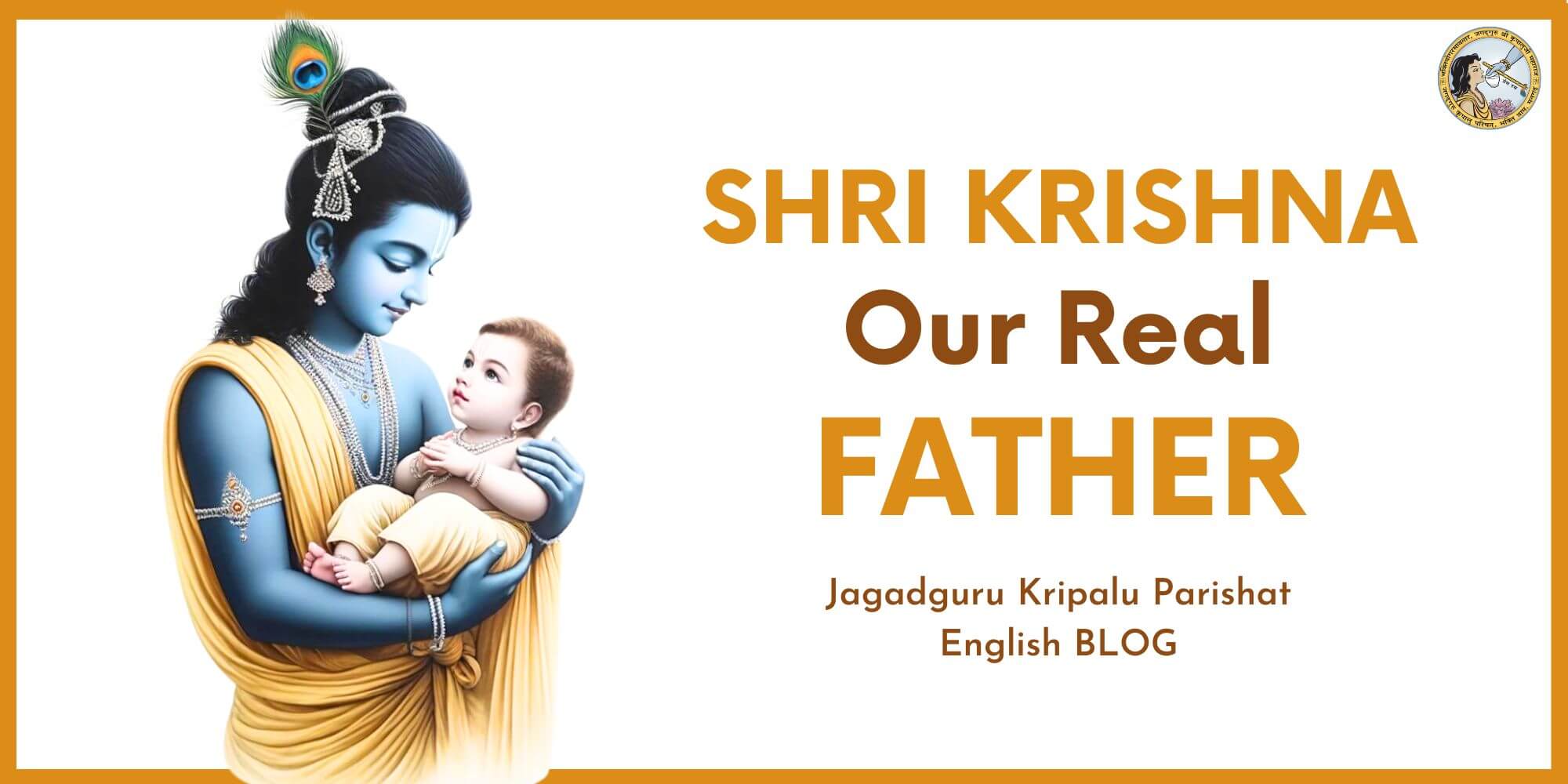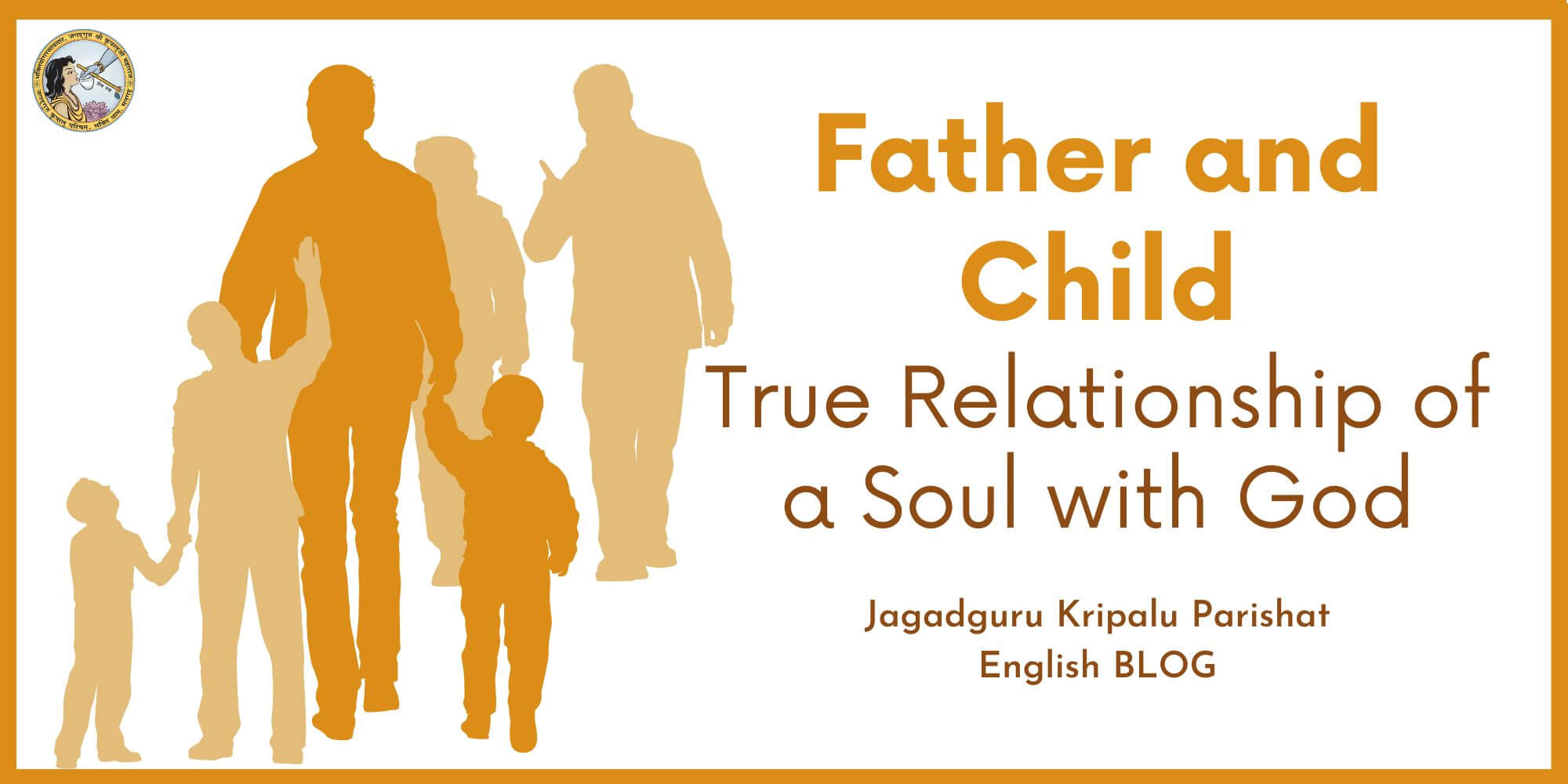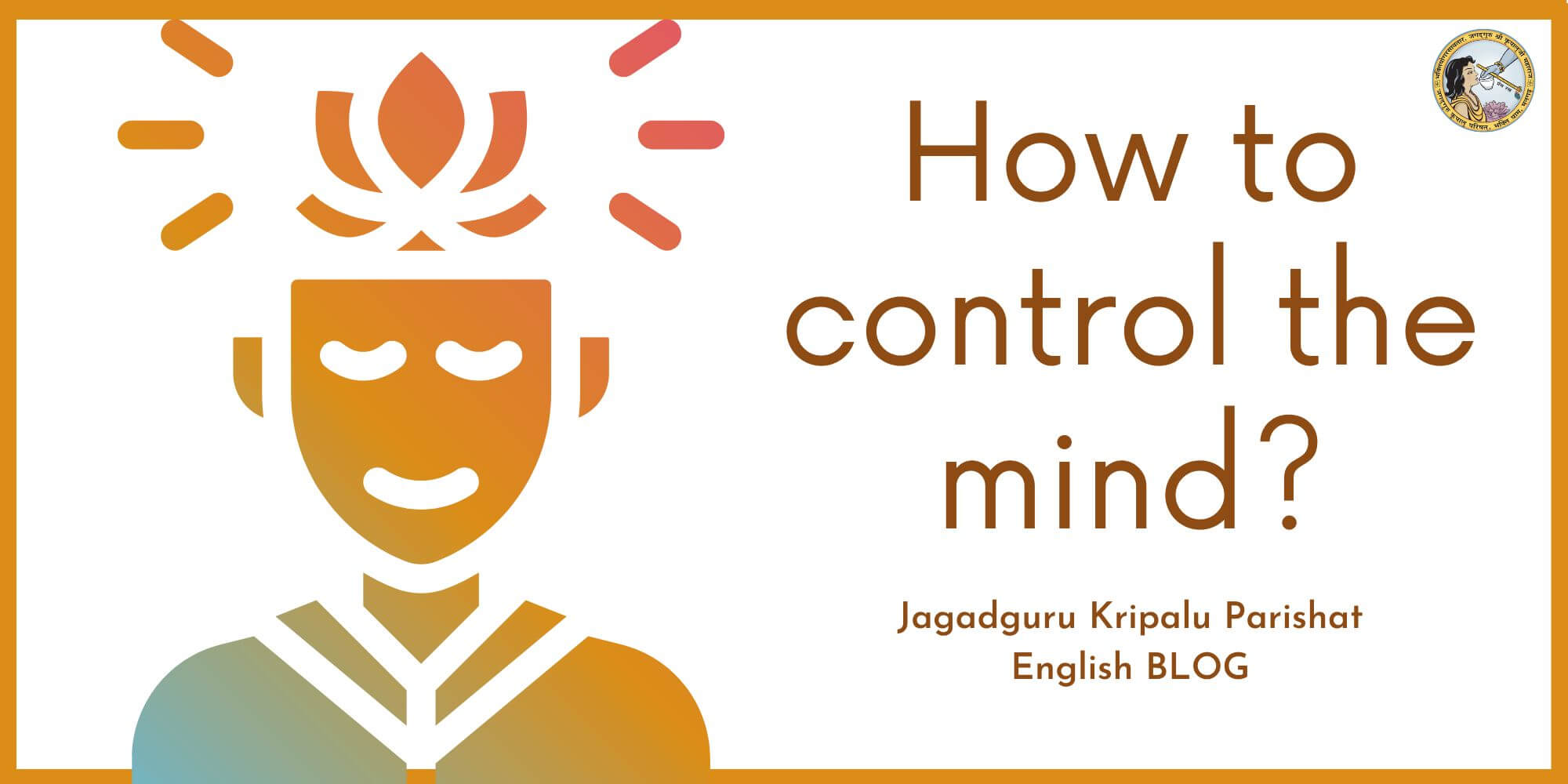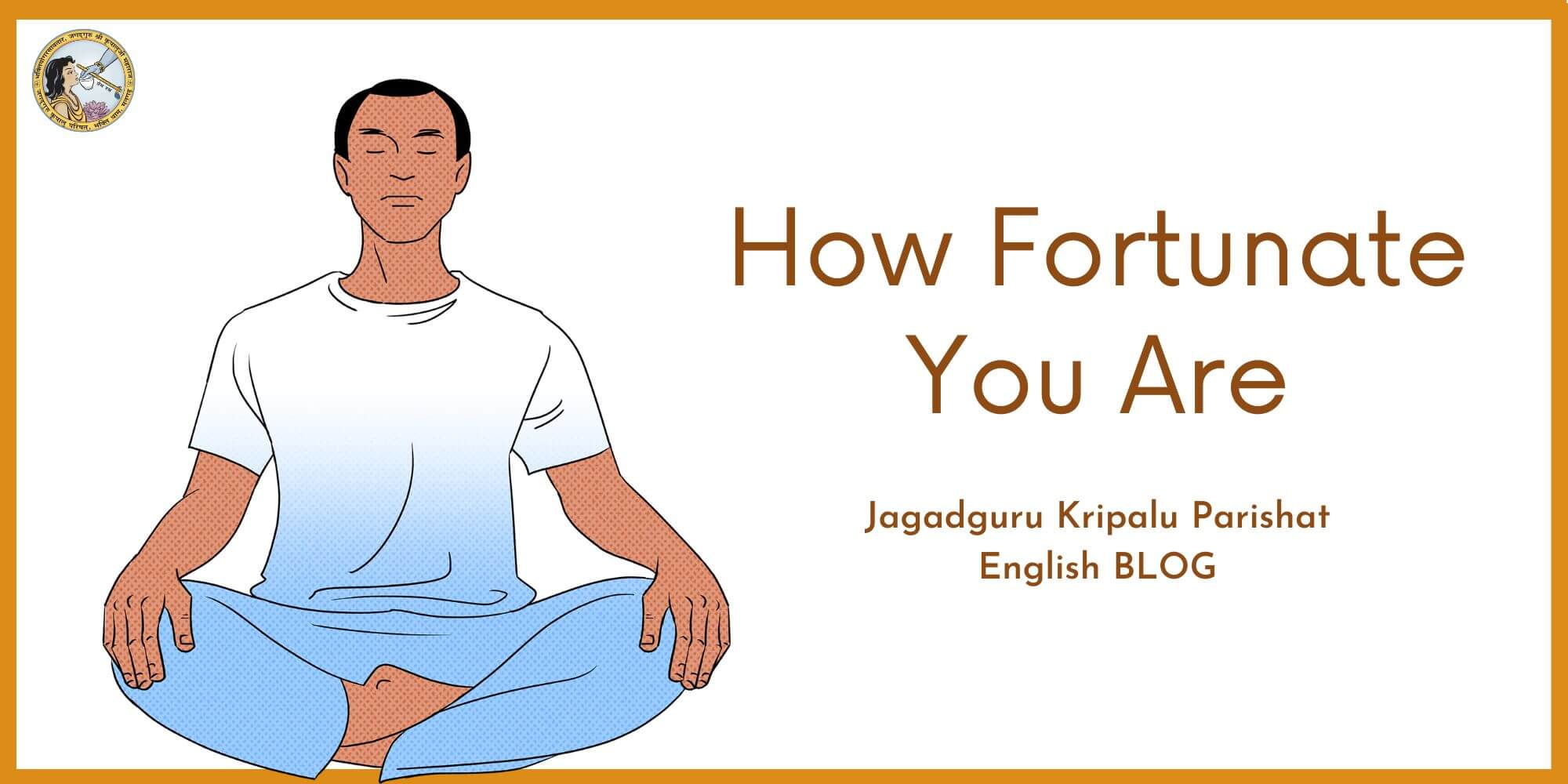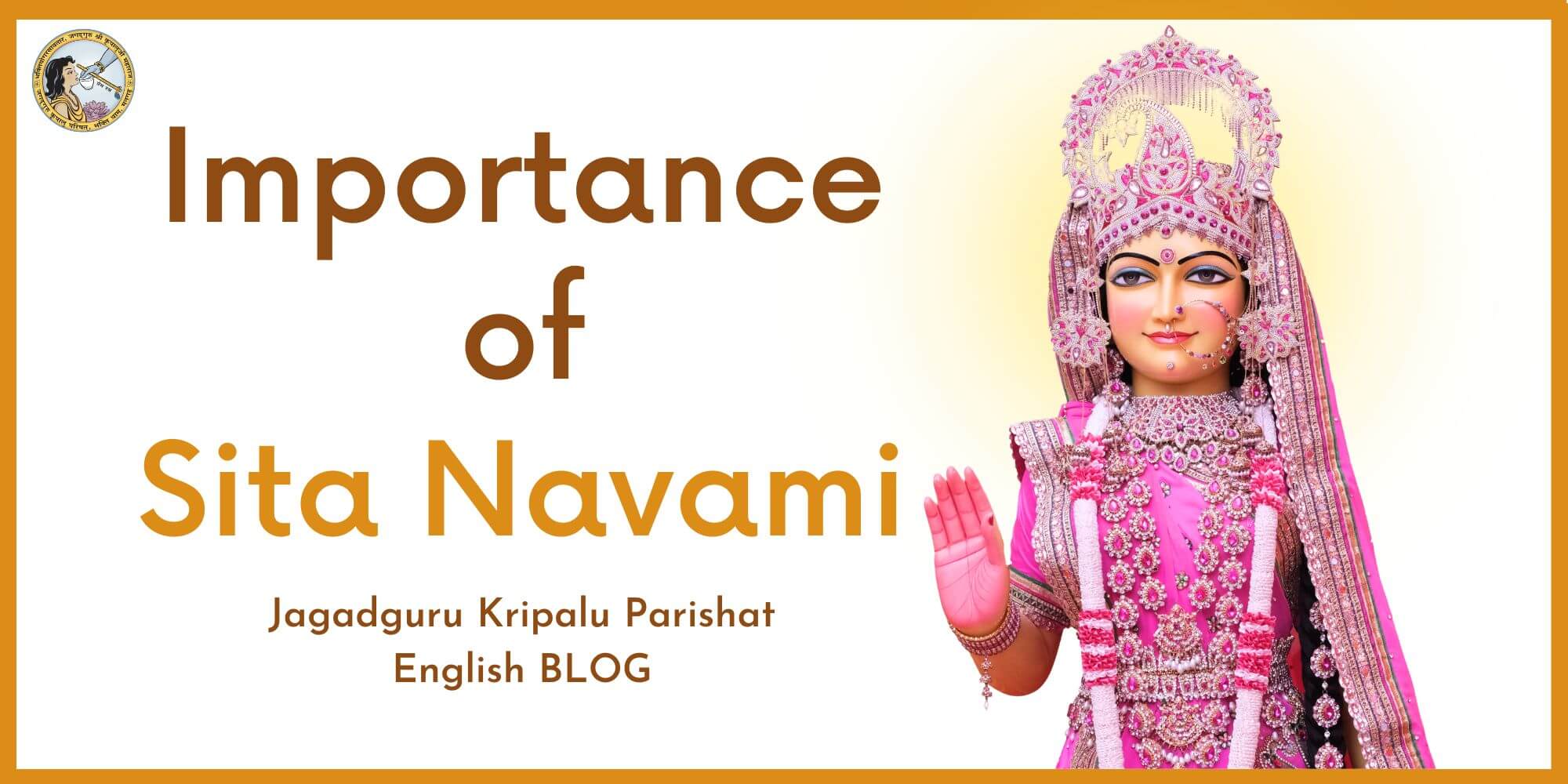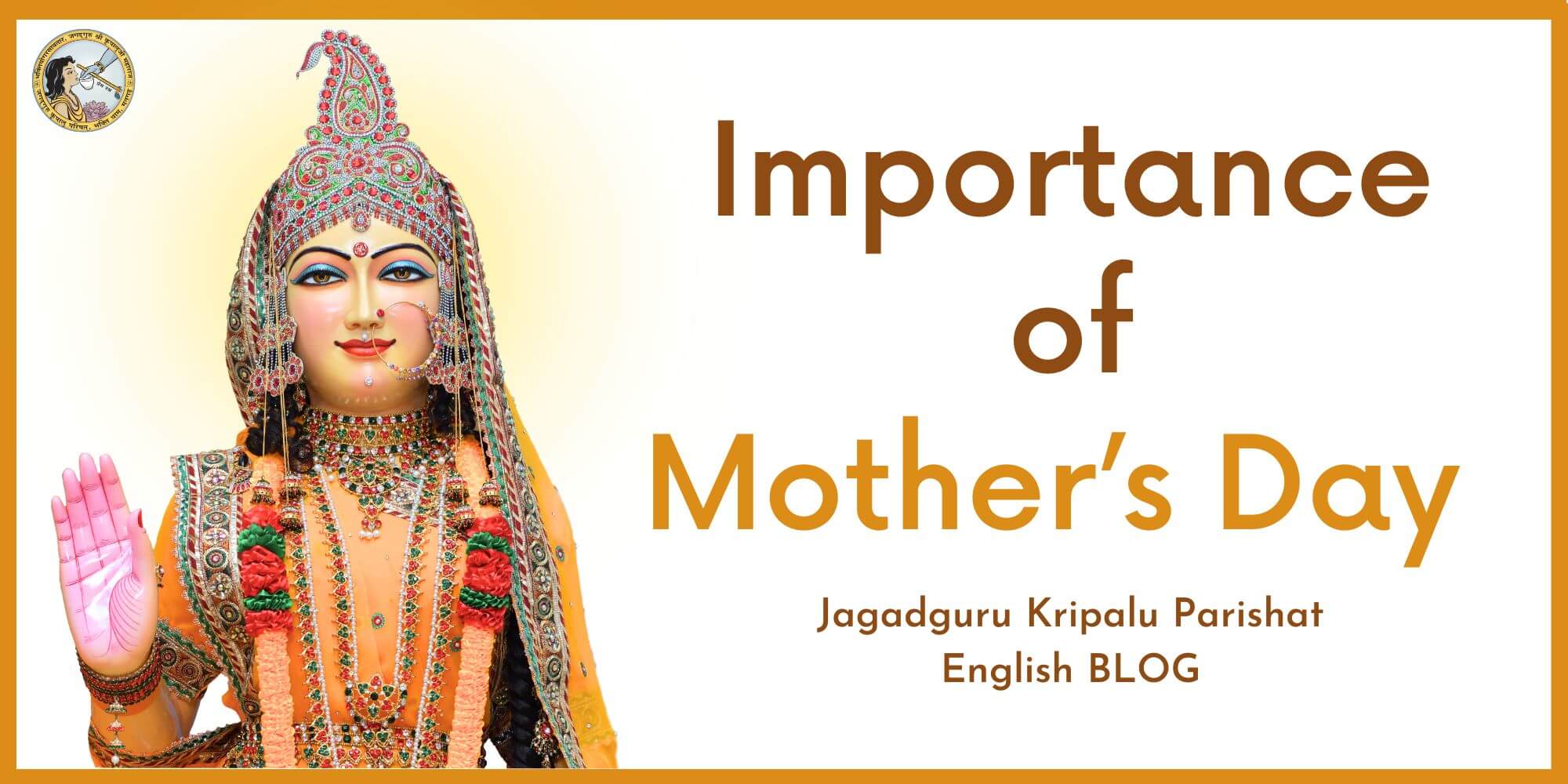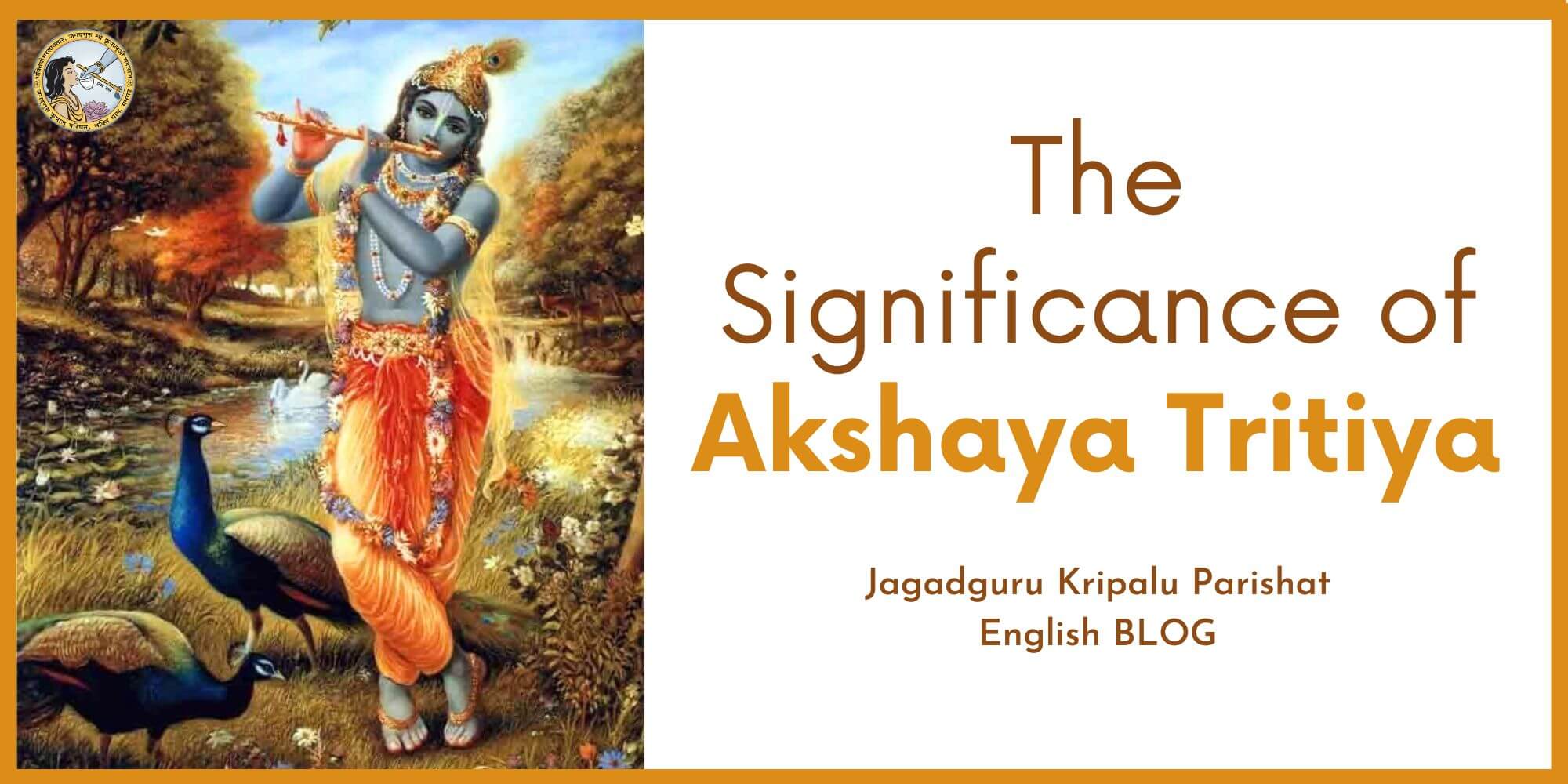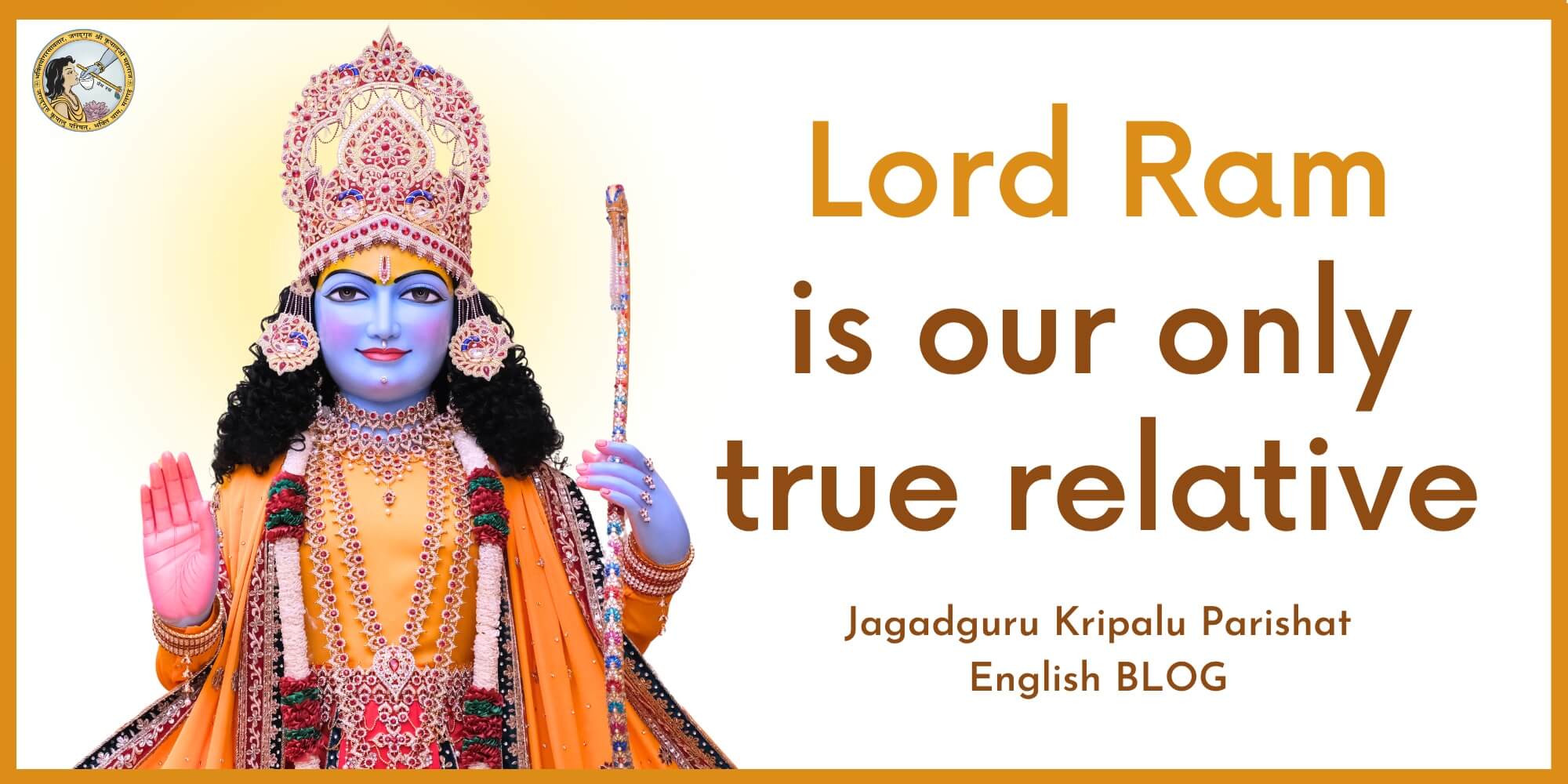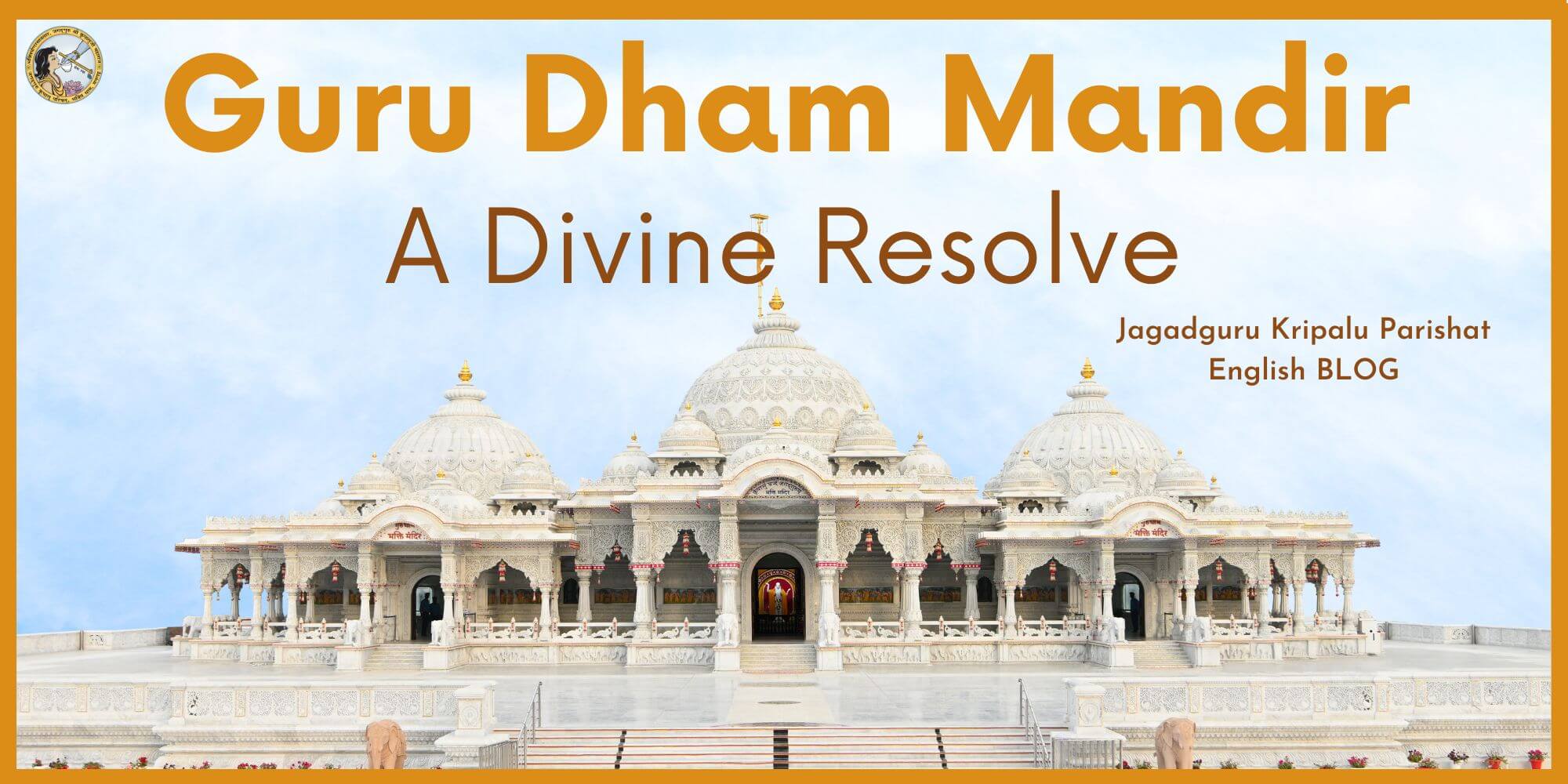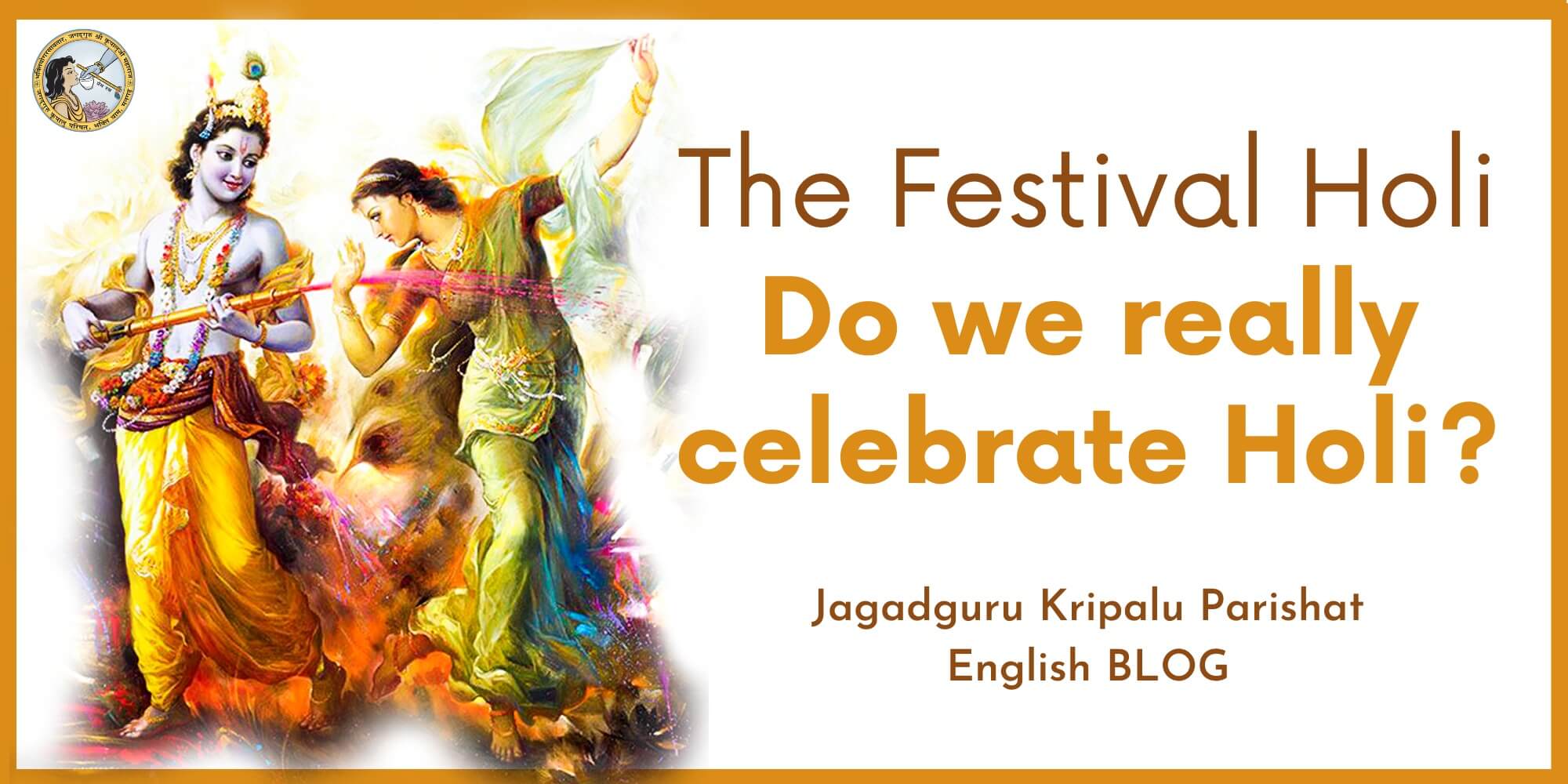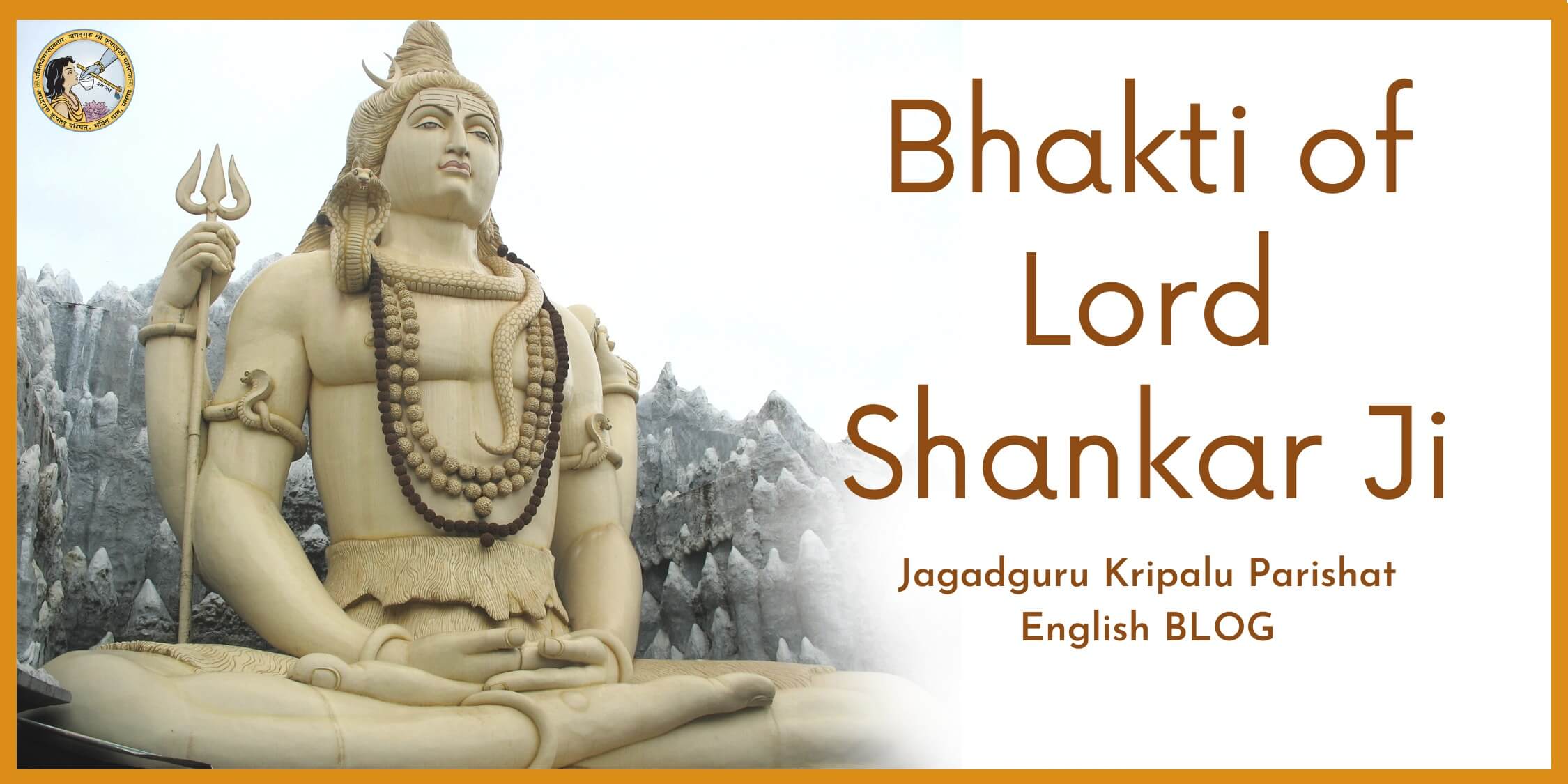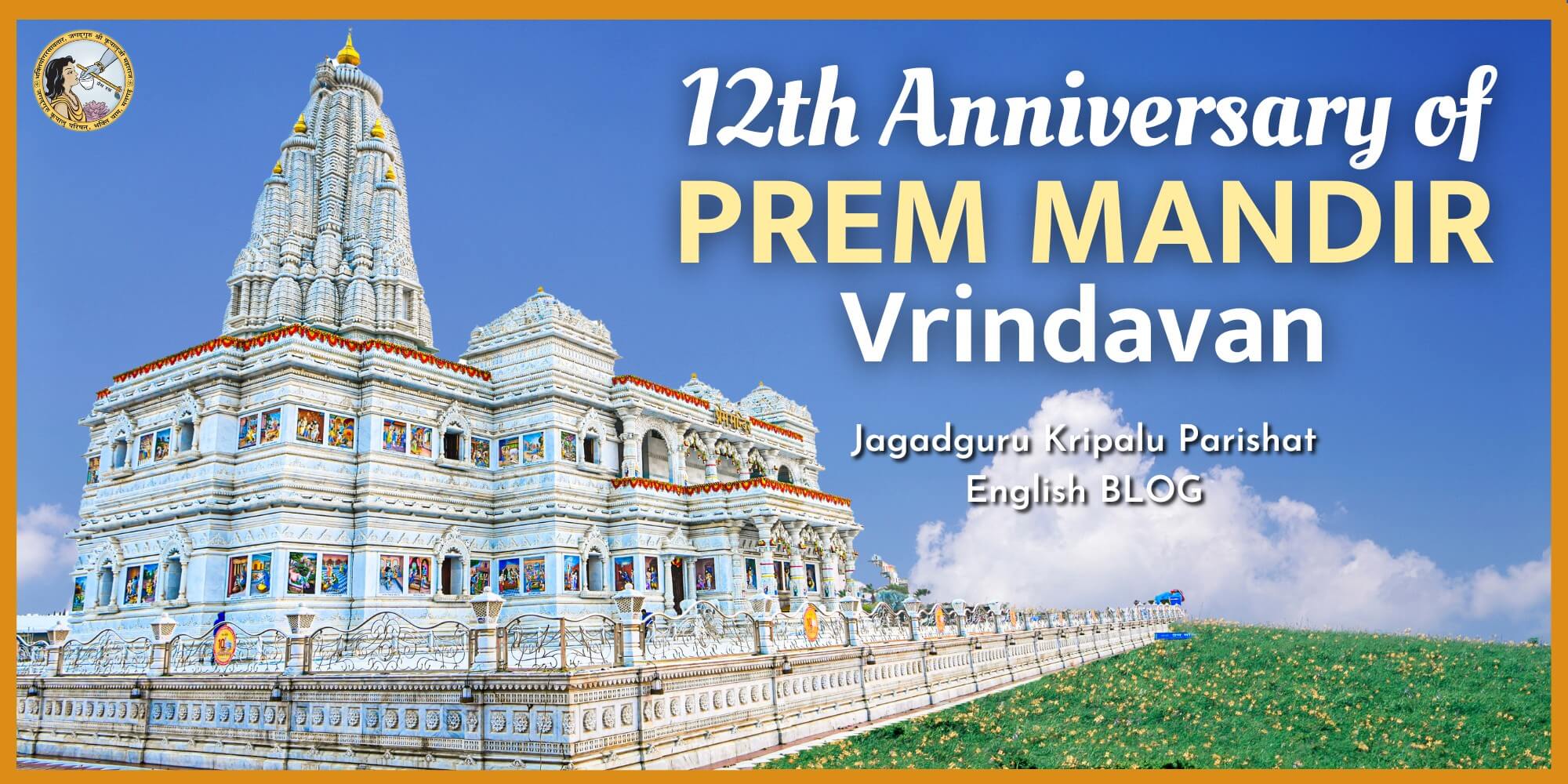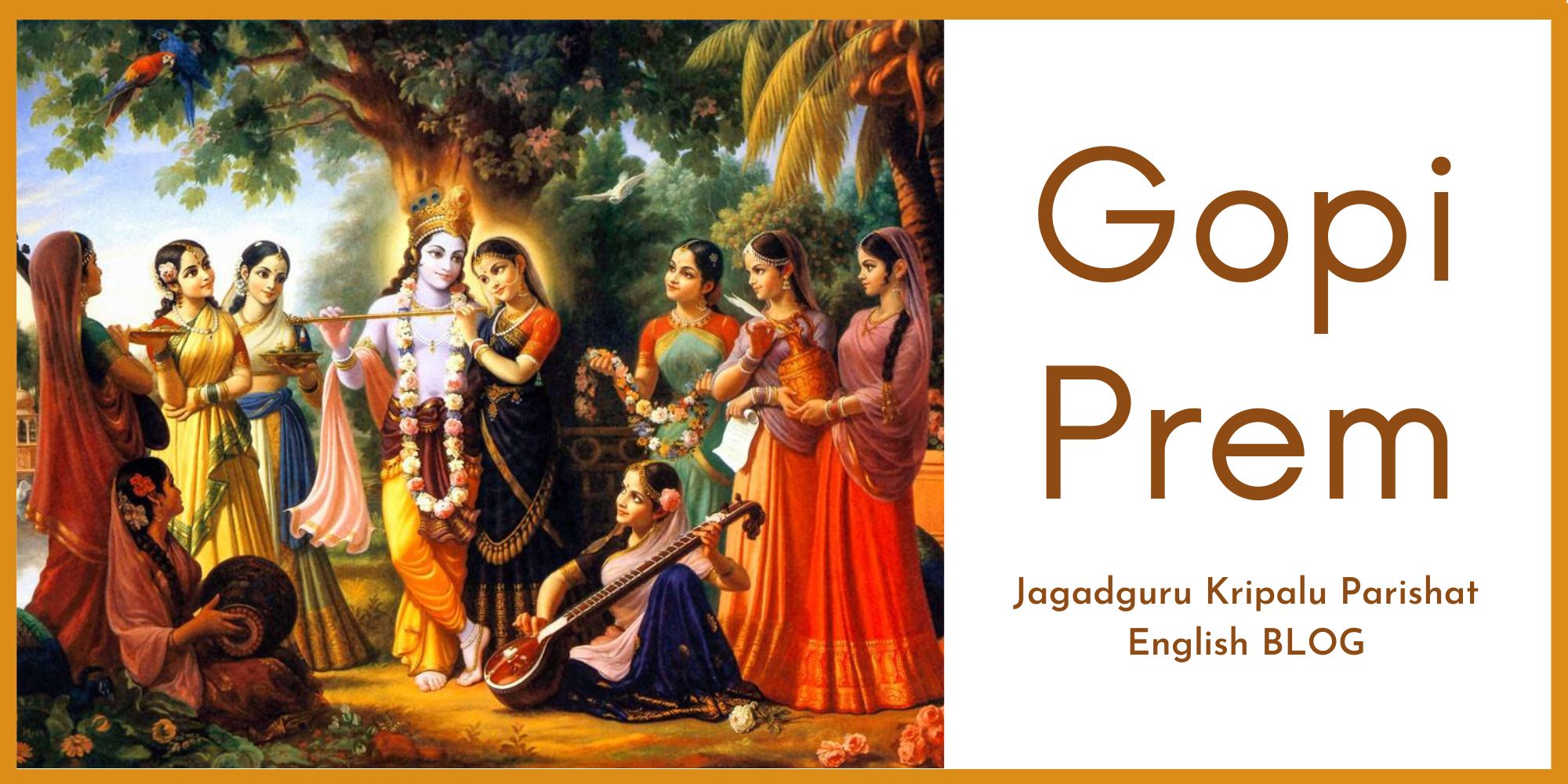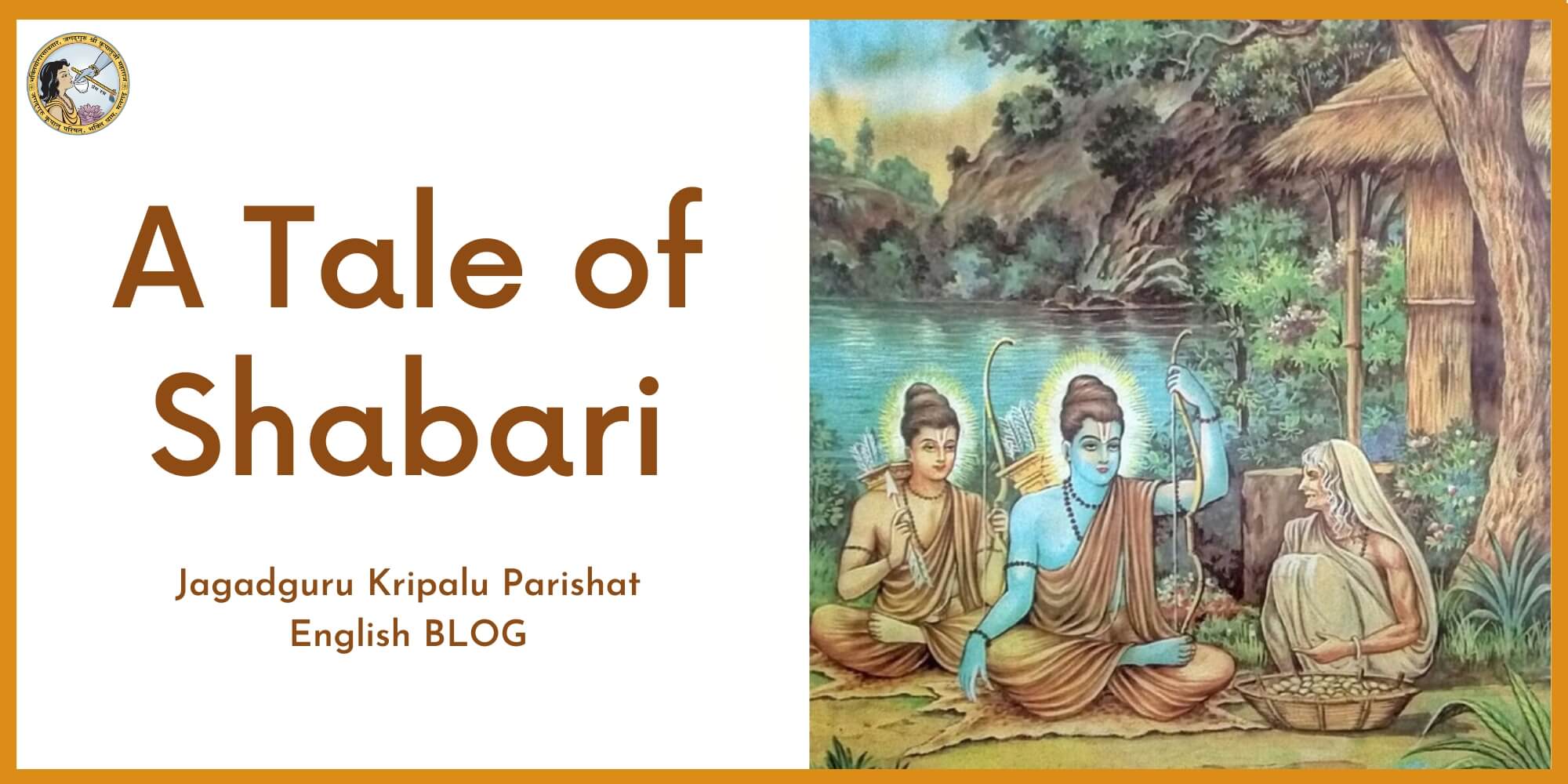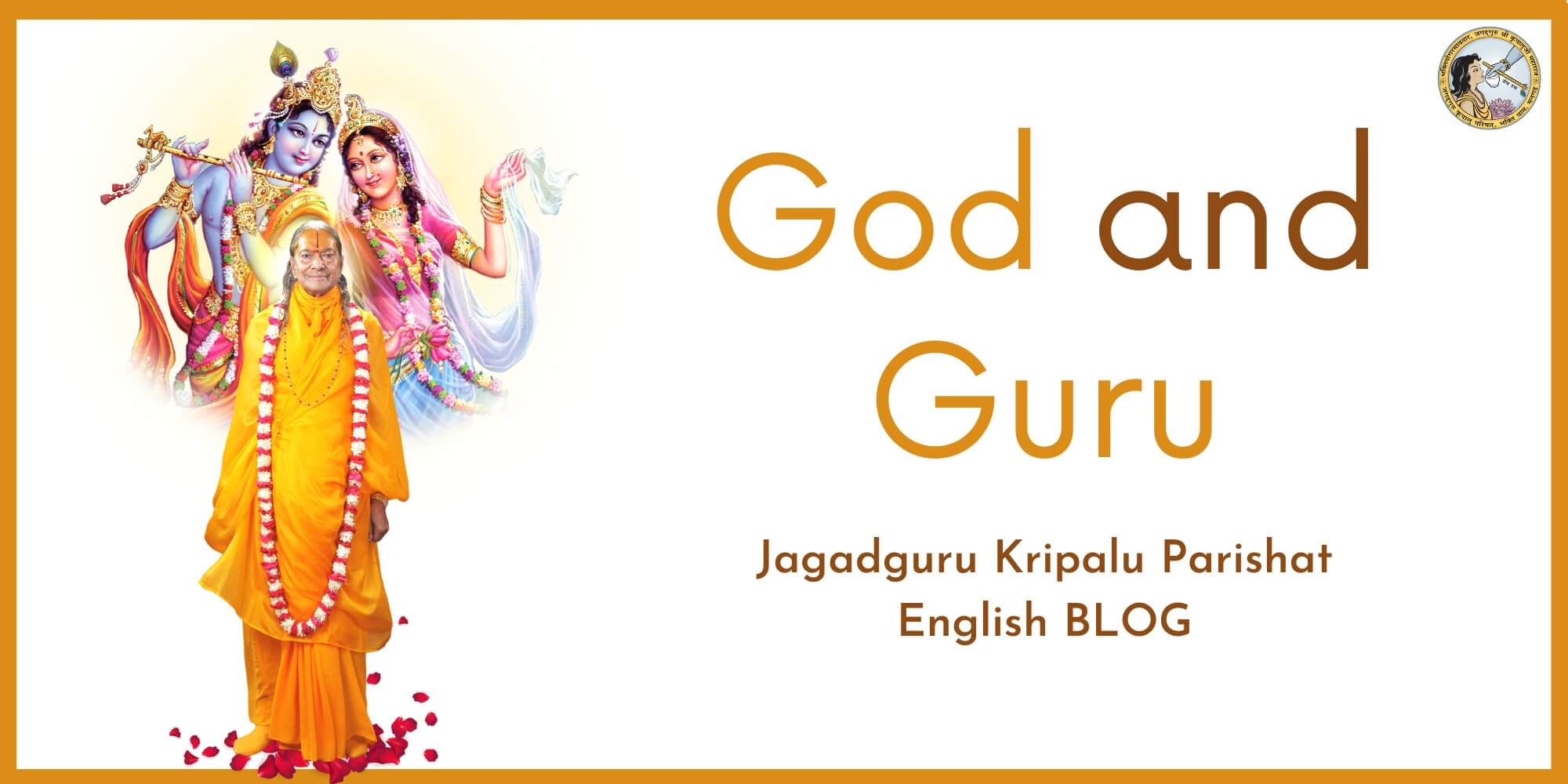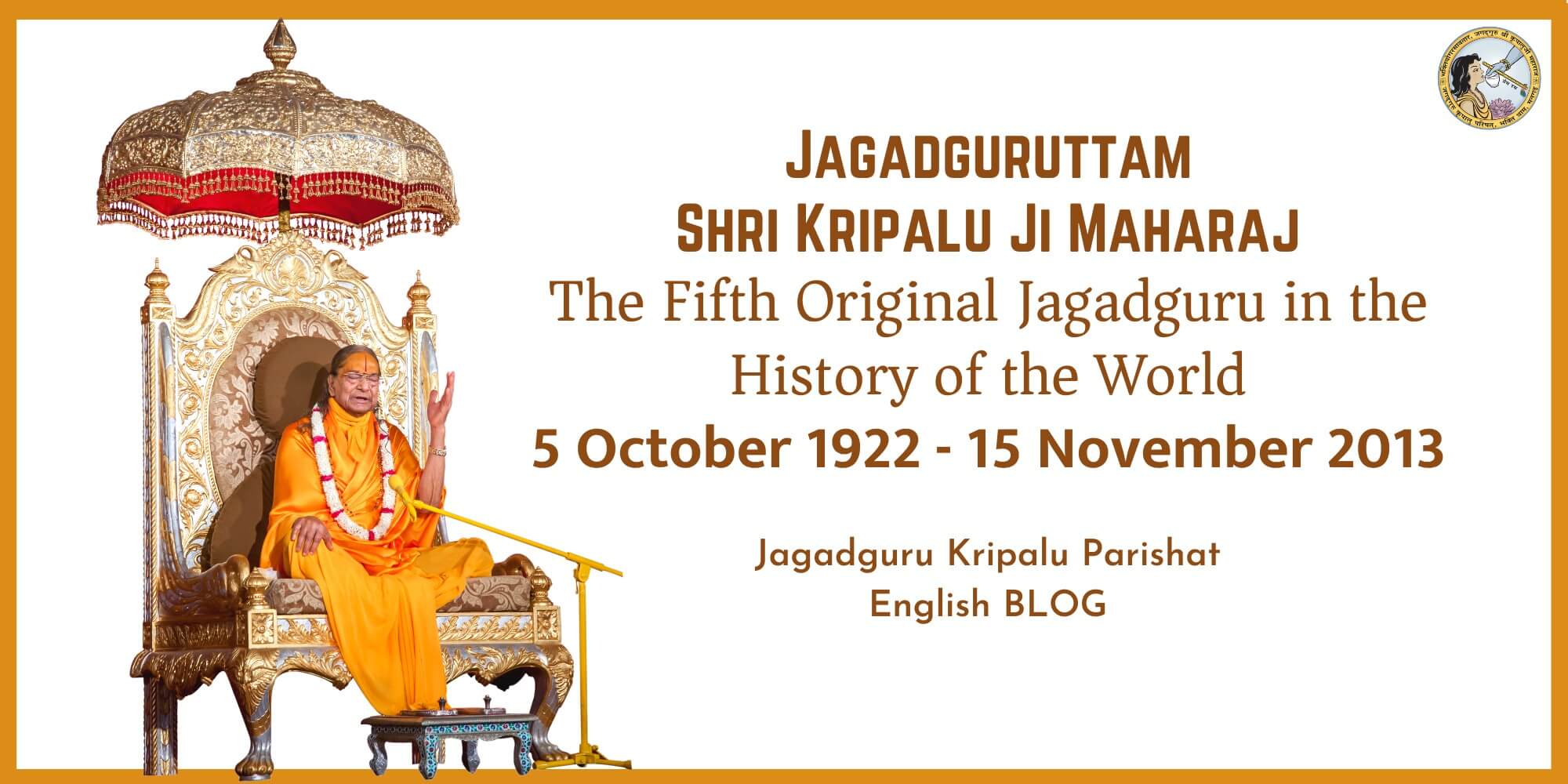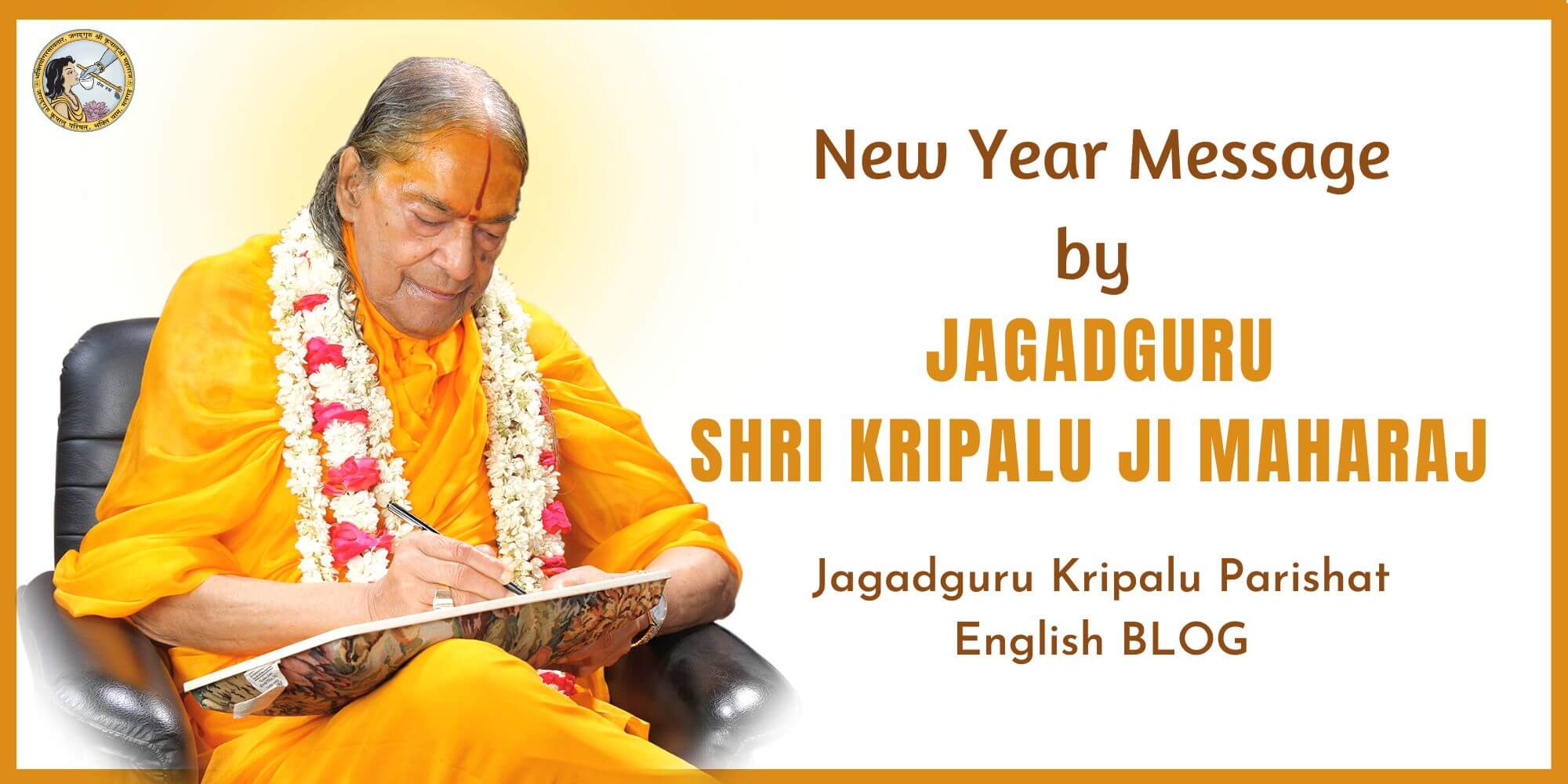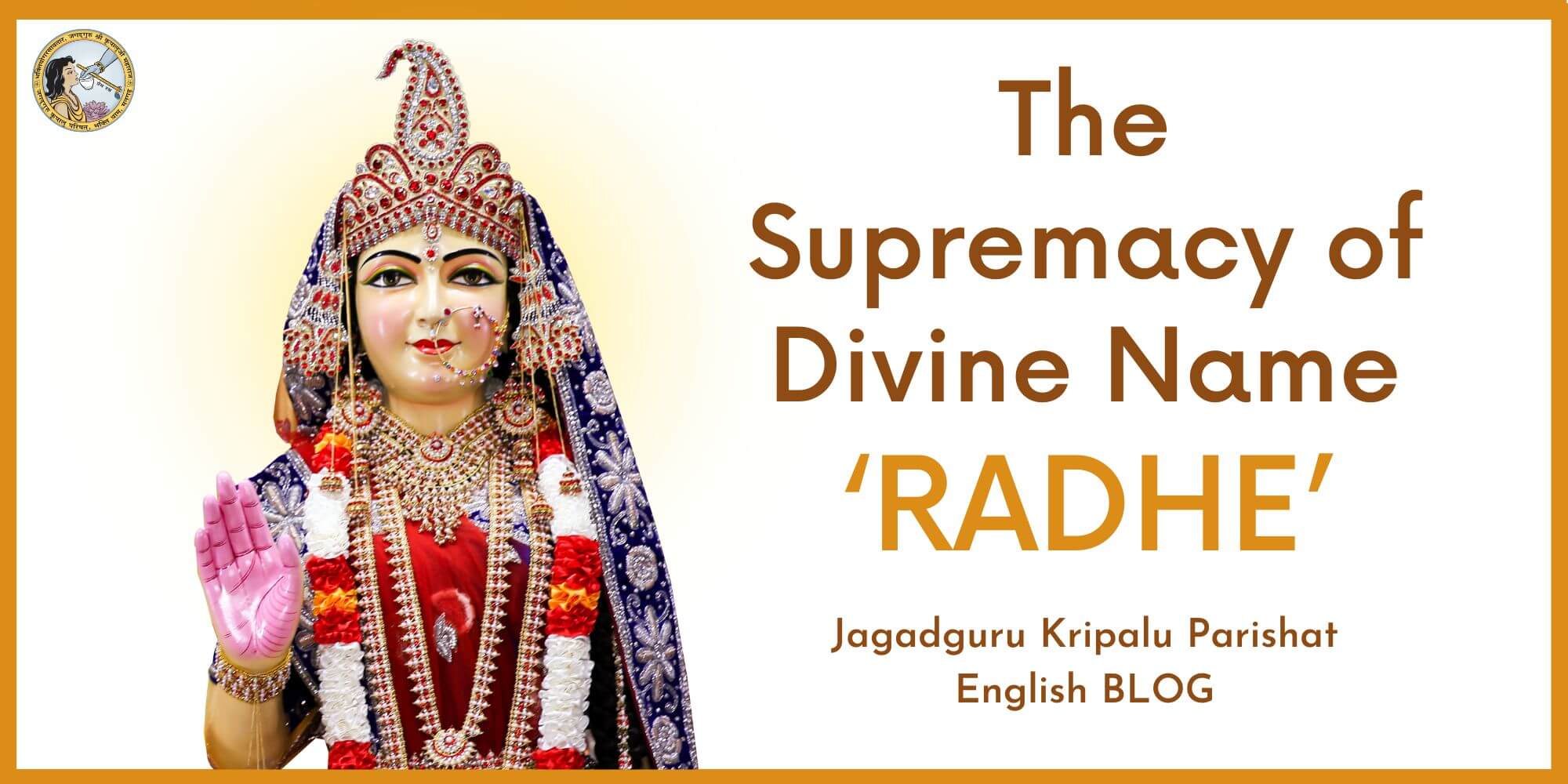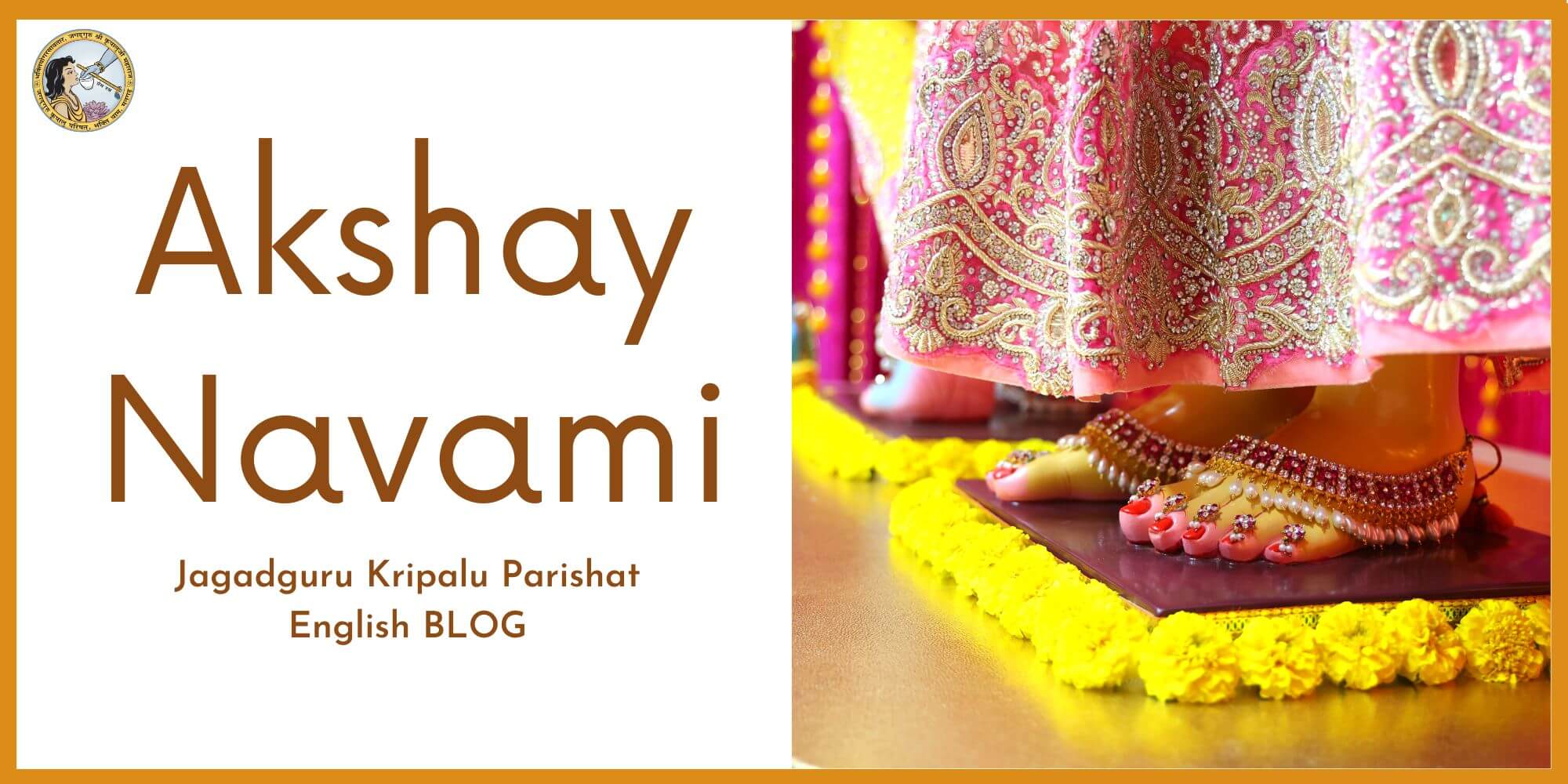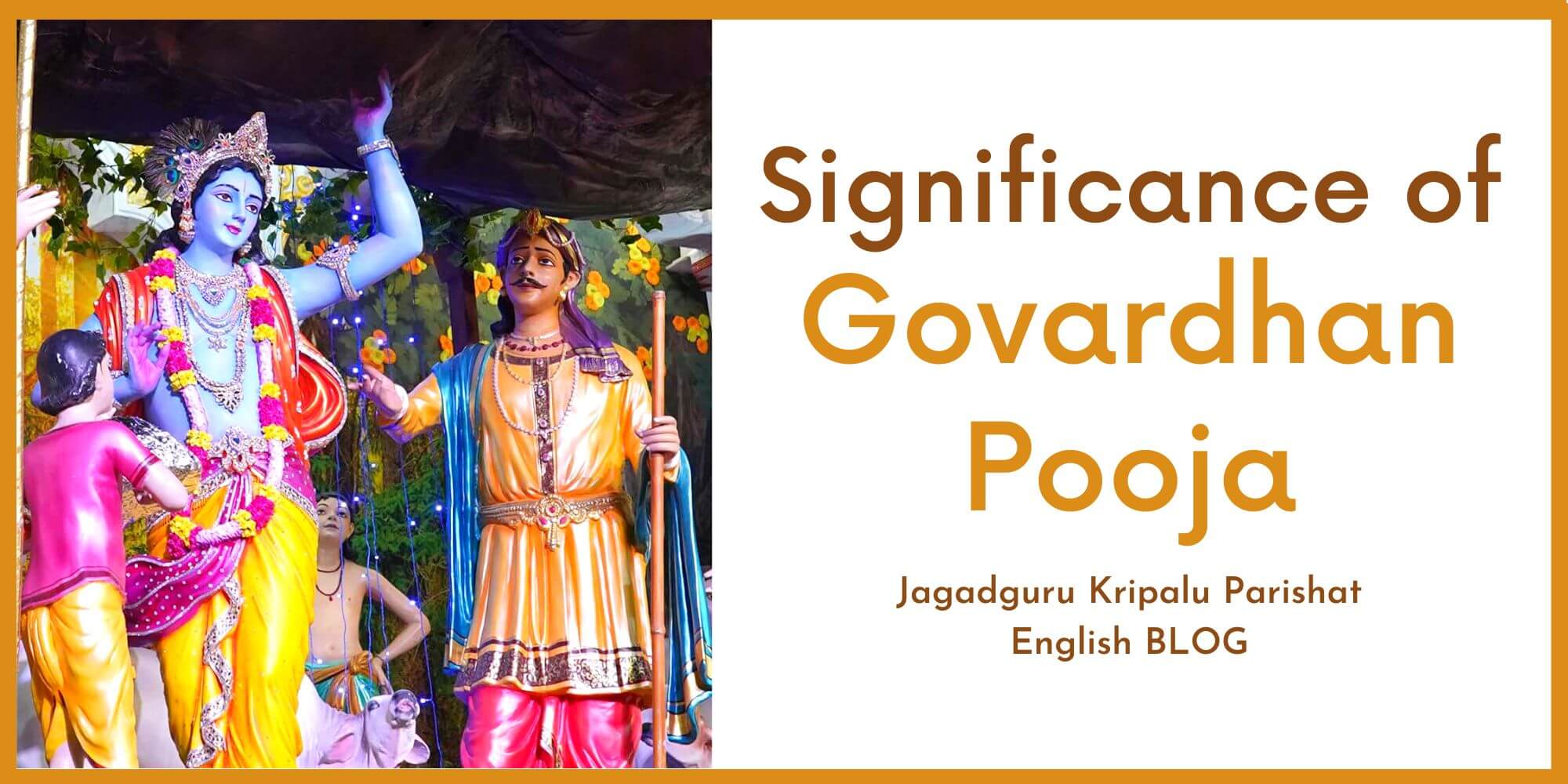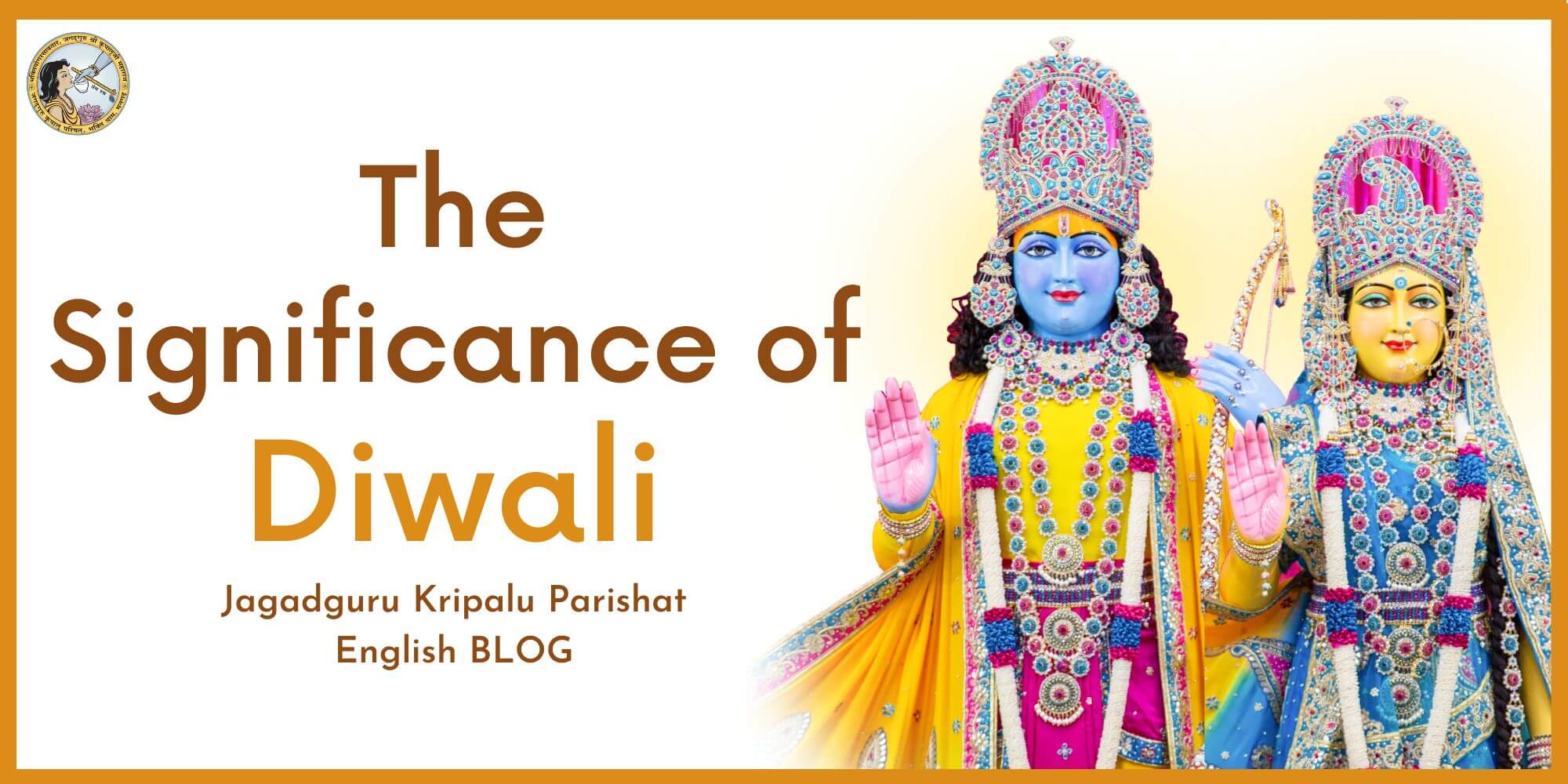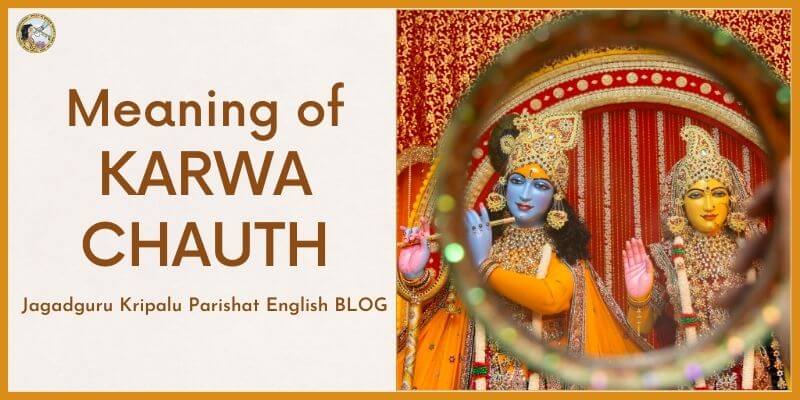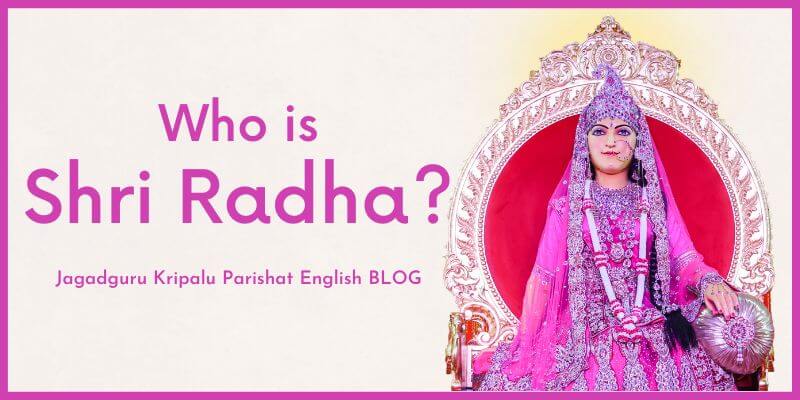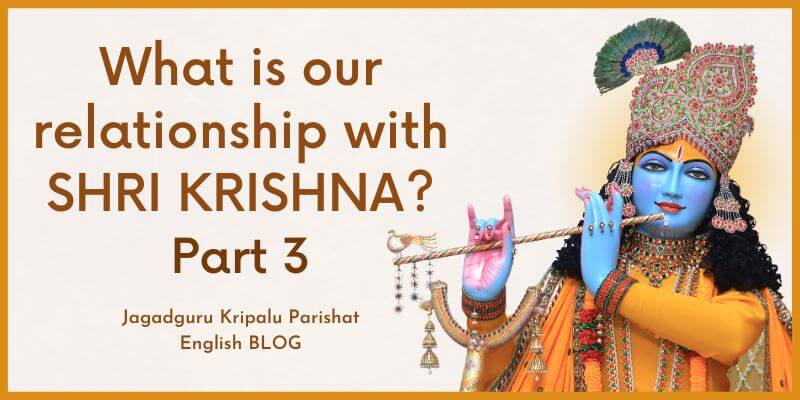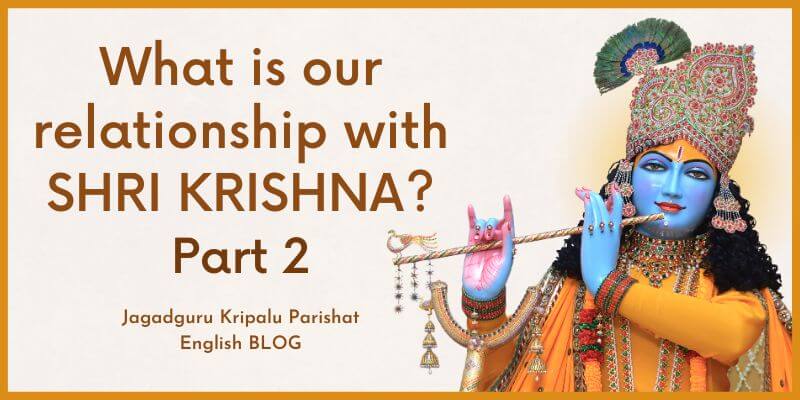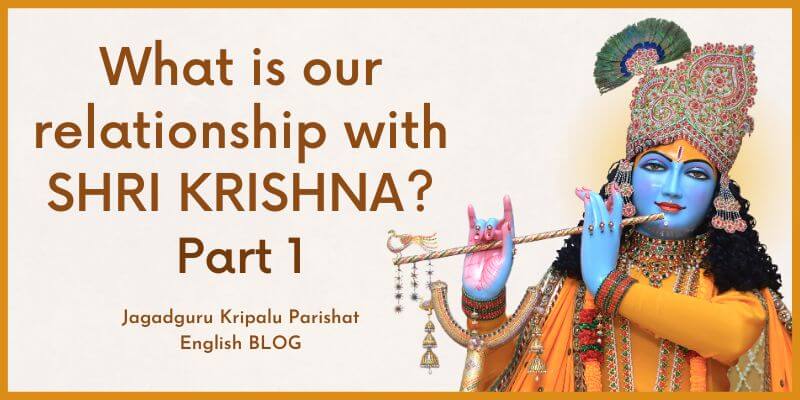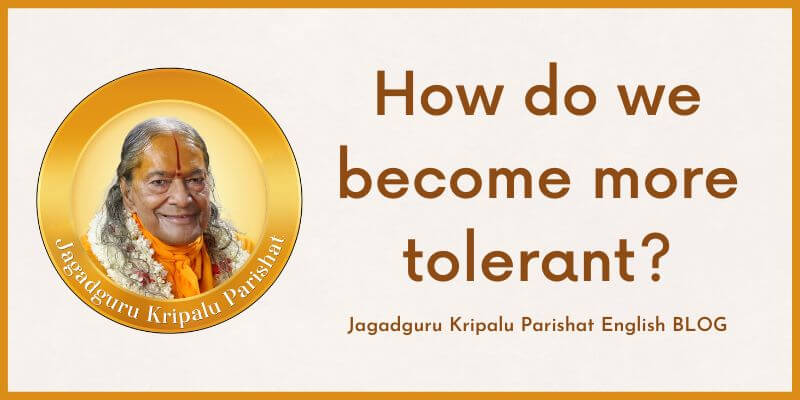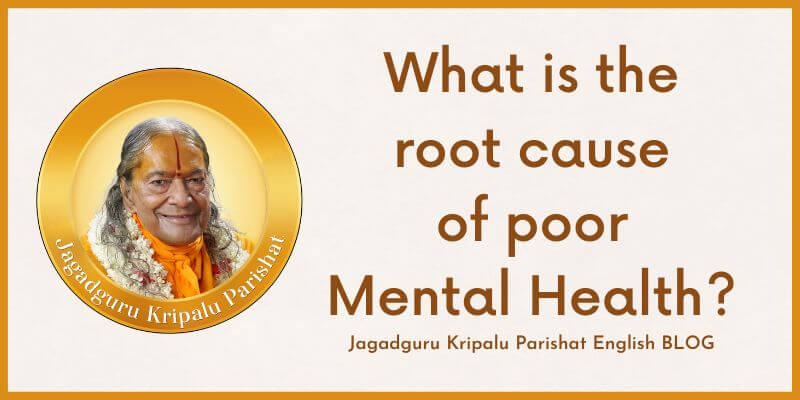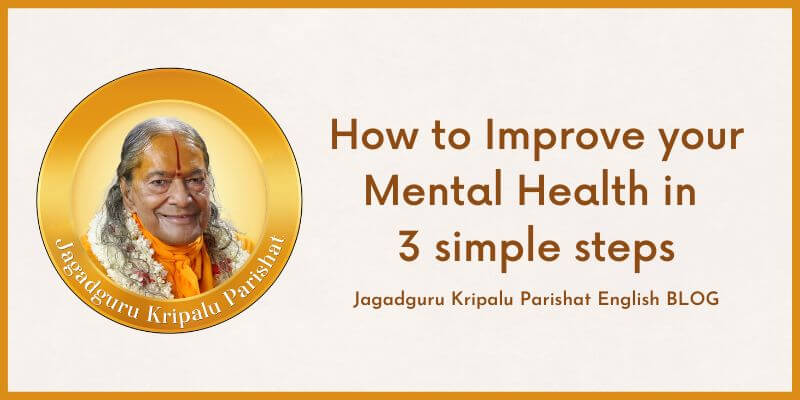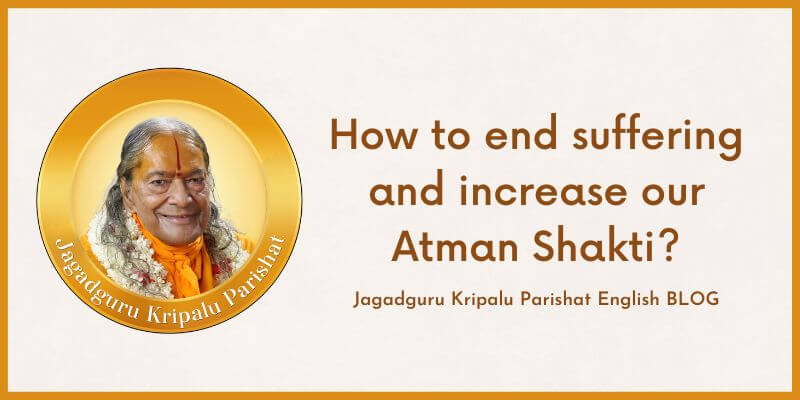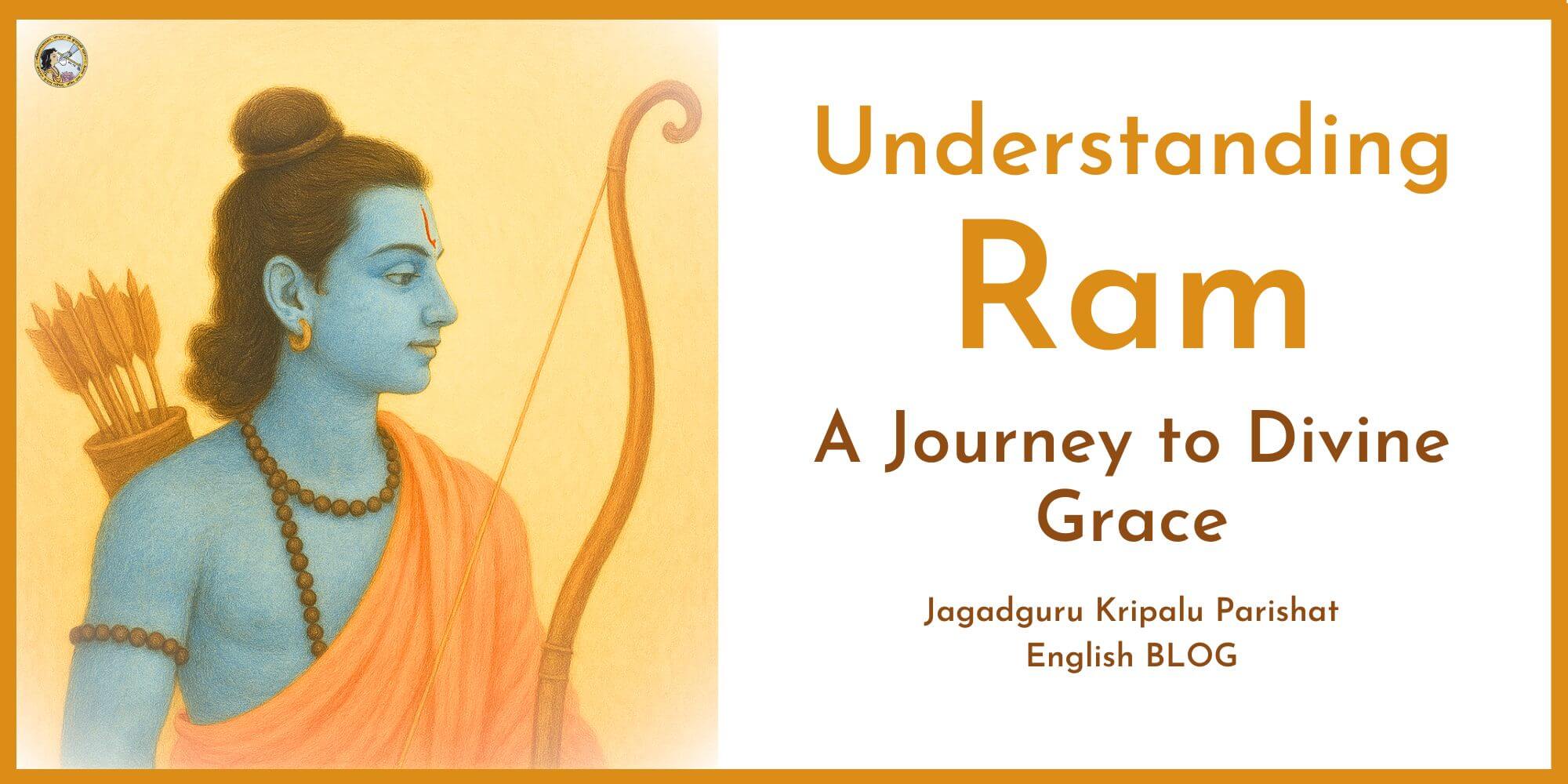What is Roopdhyan by Jagadguru Shri Kripalu Ji Maharaj
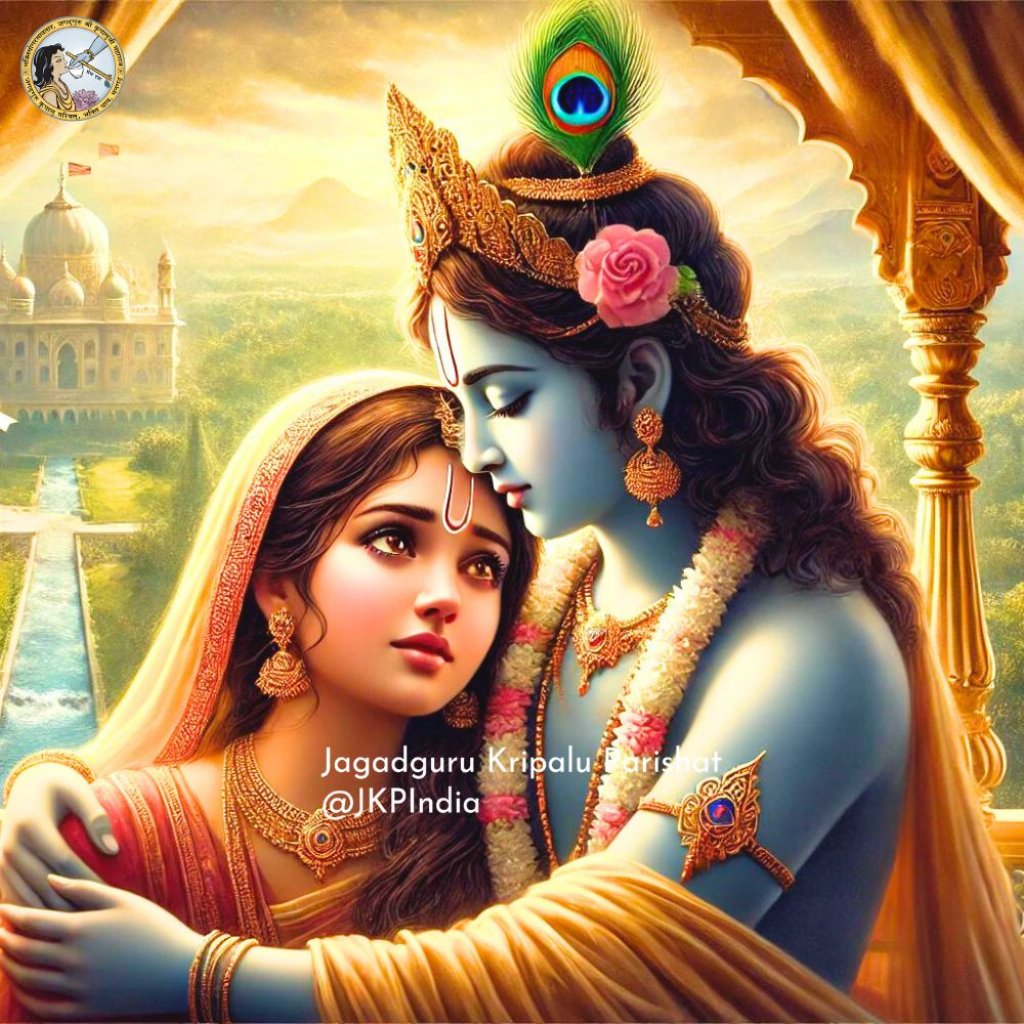
(Special Lecture by Jagadguru Shri Kripalu Ji Maharaj on practising Roopdhyan)
The culmination of knowledge from the Vedas to the Ramayana is in Sankirtan. This is what you all are practising now. Sankirtan means to sing about the names, forms, qualities, pastimes, etc. of God. In India, people sing sankirtans regularly, but they don’t chant God’s name. They say ‘Ram Ram’ or ‘Shyam Shyam’ often but this is not chanting God’s name.
Then what does it mean to chant God’s name? Is it simply reciting a mantra given to you in your ear by some so-called gurus? No, that is not the meaning. Chanting God’s name involves first visualising God standing before you in your mind and then uttering His name. This means that while chanting, you must practise Roopdhyan. Whether you are performing puja or reciting from holy texts, the practice of Roopdhyan should be your first priority. This is where many of us go wrong.
In our country, numerous Bhakti practices take place, yet the level of corruption remains alarmingly high. Why is this? It’s because we often chant God’s name without true intent; we simply recite the names. Our Shastras and Vedas emphasise that our minds must cultivate feelings aligned with the names we chant. It is essential for our minds to be focused on God while chanting.
Consider this: all the terms you hear—detachment, affection, love—are meant for whom? They are not directed toward the body; they are meant for the mind. Only the mind! It is the mind that must detach from the world. Someone might retreat to the forest, sit beneath a tree, and don minimal clothing, claiming the title of a renunciate. However, if the mind remains preoccupied with worldly thoughts and desires, true renunciation has not been achieved. After his body dies, he will attain the world and not God.
What do these so-called gurus whisper in your ears, leading you astray? They call it a “mantra.” But what’s really in these mantras? They consist of God’s name. What do they mean? “Oh Lord, I bow down before You,” or “Oh Lord, I salute You.” That’s it. These mantras are in Sanskrit. If we express the same sentiments in another language—since not everyone can speak Sanskrit—will God not be pleased with us? Is there linguism in God’s realm? Absolutely not.
Actually it is God’s firm point that – “Only one who practises Bhakti to Me, meaning their mind is attached to Me, can attain Me.” Attachment of the mind alone. This means that the mind alone is responsible for bondage and freedom (of the soul). We forget this main point. People chant God’s name thousands of times and recite the verses from the scriptures all night long. But they merely utter words from their mouths without genuine understanding.
God does not take into account the chanting of words. In fact, God doesn’t count any of the Bhakti practised with the senses. In fact God doesn’t count any of the Bhakti practised with the senses. God said to Arjuna, “Arjuna, your mind should be continuously focused on Me and then you can fight the war. I will not note down your actions. I will only note the thoughts of your mind.”
The people of our country often overlook this simple truth because those who explain it, like pandits, neighbours, and others fail to convey it accurately. It is essential to practise Roopdhyan first, and then chant God’s name.
When you call out to God by saying “Hare Ram,” consider this: In the world, when you call someone, you first bring that person to your mind before saying their name. Yet, when calling God’s name, you often don’t visualise Him at all! During sankirtan, your mind may wander to those sitting next to you, the musicians, or the dancers. What does this signify? This is not true Bhakti.
You are cheating God by doing this. Your mind is in the world and your senses are chanting God’s name. This is exactly opposite of Karmyoga. True karmyoga means your mind should be with God and your senses should be working in the world. You don’t need to say God’s name even once but your mind should be continuously thinking about God. God has said at one place in the Gita, “I am very easy to attain.”
God says, “I am easily attainable if your mind continuously thinks about Me.” It is essential to remember God with your mind. Prahlada asked, “Why are holy places so renowned among pilgrims?” Is it because God resides more in those places? The scriptures state that God is present everywhere equally. There is no greater or lesser God. Do not believe that God is 100% in Vrindavan and only 90% in the temple next to your home. God resides everywhere, fully manifesting His powers.
In fact, the demon Hiranyakashyapu asked his son Prahlada, “Is your God present in my palace too (since he was a demon)? “ Prahlada said, “Yes.” His father asked, “Is he present in this pillar?” He said, “Yes.” Hiranyakashipu hit the pillar and it broke. Lord Narasimha appeared from that pillar and said, “Yes, I am present everywhere.” God is present everywhere, the Vedas say. Prahlada said, “God does not reside in the temples alone. He even resides in your heart.” He stays with you always and everywhere.
Even if you are born as a donkey, dog, or cat, God remains with you, following you wherever you go. He never separates from us, even for a fraction of a second. God is immensely merciful. If a person with disabilities says, “I don’t have legs, how can I visit the temple?” they might wish for free God-realisation, and it’s understandable. However, God assures us, “I reside in your heart. Just accept this truth.”
You often hear that God is omnipresent and resides in everyone’s heart, yet few truly believe it. Why do we engage in sins, misconduct, and harm? It’s because we forget that God is within us. In reality, we often commit wrongdoings not out of fear of God, but rather because we worry about human consequences. We think, “Someone is watching me; if I act wrongly, they might report me, and I could end up in jail.”
And what about the fact that God is watching us? We often ignore this truth. Why? Someone might say, “But you said God is within us.” Yes, but we fail to truly realise it. When a person begins to understand that “God is present everywhere and all the time,” they will attain God. They won’t necessarily need to chant “Radhe Radhe” or “Shyam Shyam.” The Vedas affirm that God says, “You only need to realise that I am always with you. You must hold this belief constantly.”
You must feel God just as you feel your own existence. For instance, “I was in Delhi yesterday, and now I am here.” Or, “I was sleeping at night and now I am awake.” In the same way, you need to recognize that the soul’s Father, God, resides in the same place as the soul. This means that the son (the soul) and its guardian (God) are both together in that same space.
Practising Roopodhyan of God is the essence of true Bhakti. Alongside Roopdhyan, you can engage in chanting, reciting from holy texts, singing sankirtan, and other devotional practices if you wish. However, Roopdhyan is the heart of Bhakti. Without this essential practice, everything else becomes merely a physical exercise, yielding no spiritual benefit.
Mother Yashoda never said “Hare Ram.” Instead, she called Shri Krishna and Balarama by their nicknames, such as “O Kanua! Oh Balua, what are you doing?” Are Kanua and Balua names of God? Are these names found in the scriptures? What truly matters is your love for God. The scriptures teach that yoga, knowledge, and practices of detachment are all in vain without love for God. You must shed tears and call out to God while practising Roopdhyan – these are the golden words of devotion.
You can accept this now or after wandering through 8.4 million life forms, but eventually, you will have to recognize this truth. You must cry out for God and call Him, just like an innocent child. The Vedas state, “You need to cry and call Him; He will emerge from your heart and stand before you. There’s no need to pretend or act in His presence.”
“Do we need to bathe before practising Bhakti?” No, love Him as you love your parents, siblings, and spouse. It’s that simple. “Do you take a shower before loving your family? Or do you face a particular direction when expressing your love?” No, you love them always and everywhere. You might ask, “We’ve never seen God, so how can we practise Roopodhyan?” God replies, “You cannot visualise My true form with your mind because it is influenced by Maya. Our body and mind are composed of material elements, which means our thoughts are also shaped by Maya.”
But God assures us, “I will accept your mind’s visualisation of Me (Roopodhyan) as real and reward you as if you are contemplating My true form.” Our Father is incredibly merciful. This means you can visualise God’s form according to your preferences – He can be dark, fair, yellow, blue, tall, short, chubby, or skinny. Each person’s choice is unique, and God accepts whatever form you create in your mind.
It can be very challenging to cultivate a feeling of God from a murti made of stone. Why? Imagine one day you wish to adorn the murti of Shri Krishna with a diamond necklace, but you are so poor that you’ve never even seen a diamond in your life. Yet, you still desire to offer the best diamond in the world to the murti. In this scenario, you find yourself unable to fulfil your wish for God.
Those who have murtis of God in their homes often take pride in the rituals they perform. An educated person or someone in a high position may sit for an hour or two during puja, filled with ego. But one must ask: how many tears did they shed for God while performing the rituals? If they don’t shed tears, they are not truly worshipping God; instead, they are worshipping their own pride. The truth is, we only need to make a little effort to realise our true form—that’s all.
When someone introduces a police constable as a “head constable,” he accepts it with pride. Similarly, a sub-inspector is content to be called a sub-inspector without demanding a higher title. They find satisfaction in their current roles. In the same way, we have accumulated countless sins over infinite lifetimes, and even now, we are often filled with lust, anger, greed, and other attachments.
However, when someone points out one of your afflictions and says, “You are a bit greedy,” you immediately react with anger, exclaiming, “What did you say?” Just this comment is enough to provoke you! Similarly, if someone says, “Don’t take it personally, but you are quite short-tempered,” you quickly respond, “How can I not take it personally? I am not short-tempered!” This shows how easily we defend our egos rather than reflecting on the truth of our flaws.
After all, what is our true status? Are you proud of your worldly accomplishments? Do you take pride in being one of the richest people in the world? Is it worth showing off your material status in front of God? What is there truly to be proud of in the world? Instead, you should take pride in the fact that the Supreme, Powerful Ruler of the entire Universe – God, is your Father, and you are His child. This is something to be genuinely proud of.
Walk with confidence, knowing that the all-powerful, omnipresent, and omnipotent God resides in your heart. Who can compare to you? This should be your empowering realisation.
Instead, we take pride in our lowly worldly possessions and titles. This is why we struggle to shed tears before God. It’s strange that we cannot cry even in His presence. When a person is hungry, they often cry and beg others for food. In truth, God is the husband and master of our souls, and we must plead for His love. Although we cannot see or fully understand God, He assures us, “If you cry and call out to Me, I will give you everything. I will become your servant.”
God says, “I walk behind My devotees so that when they walk, their foot dust may fall upon Me and purify Me.” Yet, He asks us to first cry out for Him like an innocent baby. We often overlook this essential act and instead focus on everything else. To make matters worse, we take pride in our actions.
People often return from a pilgrimage feeling a sense of pride. But let’s consider: they went to these holy places only physically. Why did you embark on this journey? What did you truly gain from it? “Did you spend a lot of money on the trip?” “Yes.” “Did you face physical challenges along the way?” “Yes, navigating a new place can be tough.”
Then, what do you feel upon arriving there? Initially, you might praise the spiritual atmosphere and feel blessed. However, after some time, your mind drifts to thoughts of your son, who has been sick since the day you left. Then, you start worrying about other issues, like paying your taxes. This shows that even while in a temple, your thoughts are occupied with worldly concerns! Ideally, your mind should become purified after returning from a pilgrimage, but often the opposite occurs.
We often focus on our actions rather than our minds. Some so-called pandits may note your contributions and assure you that you will attain the divine abode when you die. This means that we only found God to be dishonest with. God asks for something from us, and in return, we offer something entirely different. We are willing to give everything – except our minds. Yet, what God truly desires is our mind and devotion.
That’s why the first step you should do is Roopdhyan. After that, you can sing and chant God’s name alongside your visualisation. Practise Roopdhyan (visualising God’s form with your mind) according to your own preferences. Adorn Him in a way that resonates with you – feel free to dress God as you like. You can even visualise Him wearing a proper business suit! There’s no need to hesitate; let your imagination flow.
If God were to take an avatar today, would He still wear a pitambara? In today’s world, even a one-month-old child is dressed in pants. What truly matters to God is your feelings. You need to engage your mind in whatever Bhakti you practise, infused with genuine emotion.
Consider Kansa, the demon, whose mind became fixated on God through fear. He saw Shri Krishna in everything—food, clothing, you name it—and rejected them all. Yet, despite his negative feelings, he still attained God and reached Golok after his death.
Your mind must be firmly attached to God. Whether you willingly consume poison or someone secretly gives it to you, the outcome is the same—you will die. Likewise, whether a person drinks the elixir knowingly or unknowingly, they will become immortal. If someone jumps into the fire or is thrown into it against their will, they will still get burnt. In the same way, the essence of Bhakti lies solely in the attachment of your mind to God.
Only those moments, in your life, where your mind was attached to God were the productive moments of this human life. The rest of your life can be seen as wasted. You might think you’ve achieved a lot by earning billions, becoming a parent of ten children, or building numerous houses. But remember, when you leave this world, even your body won’t accompany you.
This is not something to take pride in. The only true measure of pride is the time you spent thinking about God. Consider how much time you’ve wasted on trivial matters. Make it a daily practice to introspect for just five minutes: “How much time did I waste today, and how much was spent wisely?” Reflecting on this will motivate you to make tomorrow more meaningful by focusing your thoughts on God.
No one knows when this human body will cease to exist. Even saints are uncertain about their time left in this world, as death can come without warning. For instance, Jagadguru Shankarcharya left the world at just 32 years and 6 months. People may argue, “But he was a great scholar and saint.” Yet, it doesn’t matter—when someone’s time is up, they must depart. We often see newly born babies passing away shortly after birth, which serves as a stark reminder. So why don’t we consider that our own time could come at any moment?
You should reflect, “I am already 40 or 50 years old.” In today’s world, even 10-year-old children can die suddenly. Recognize this reality and make full use of your time. While attending to necessary tasks for the body, remember God even during your work. In your free moments, ensure that your mind focuses solely on God. Yet, too often, we find ourselves gossiping with our spouse, children, or neighbours instead.
What are you truly doing with your life? Are you just trying to waste your human existence somehow? And yet you call yourself intelligent! Consider the consequences of this attitude when you face death. If you adhere to the Charvaka philosophy, believing there is nothing after death, know that this mindset will not lead you to your ultimate goal.
All scriptures and Vedas conclude with the same message: “Practice Roopodhyan of God’s form, deepen your yearning to experience His divine presence, and cry out for Him.”
Do not seek worldly desires or even liberation (moksha) from God. Instead, yearn solely for His vision and divine love. This is considered as the most intelligent thing a human being can do. This understanding alone is enough. The Vedas contain countless verses to convey this philosophy. Additionally, there are 6 Darshan Shastras and 18 Puranas, with over 400,000 verses elaborating on this truth. That is why I emphasise again and again that practising Roopdhyan is the only way one practises sadhana.
Roopdhyan is Bhakti. Attaching your mind to God alone is considered to be true Bhakti. Everything else is just a physical action. God doesn’t count this as bhakti. Even in this world, the court considered the intentions of the criminals’ mind before giving judgement. If someone is accused of murder but if his intentions to kill are not proven in the court, he won’t be hanged for the murder. A person cannot be hanged just because he killed someone.
For example, a lot of policemen shoot and kill people on the orders of a magistrate. The policemen are ordered to shoot openly in public. They don’t even do it secretly. And the policeman proudly admits that he shot in public. But nobody can hang him for doing so. That’s because he shot people on the orders of the magistrate. He had no personal issues with the people he killed and therefore he had no intentions to kill them.
Similarly, God also, while residing in our heart, notes our intentions and not our actions. We feel very proud of our actions. But those actions hold no significance in the realm of God. God only takes into account the ideas, thoughts, attachment and detachment of the mind alone. Therefore, try to practise roopdhyan while doing sankirtan. You can do it alone or together with everyone.
Doing this will purify your mind. Once your mind gets purified, Guru and God will grace you. Then with their Grace your mind, eyes, ears, nose, tongue and skin will receive divine power. It is then when you will be able to see and hear God. Not before that. Therefore, it’s essential to focus on roopdhyan. Grasp this important philosophy and make an effort to incorporate it into your practice.
Practise to realise that God is with you. Every few moments, just think, “He is with me.” Then again start doing your work. Again after sometime stop for a second and think, “He is with me.” Feel and realise this again and again. You will find great joy in the thought, “God resides in my heart! Who can harm me?” Embracing this mindset will help you refrain from sinful actions and your privacy from God will also come to an end.
As soon as you begin to think about someone else’s faults or entertain negative thoughts, you will instantly halt that thought, remembering that God is seated in your heart, watching you. By doing this, you can focus on practising roopdhyan and continue doing your sadhana.
By Jagadguru Shri Kripalu Ji Maharaj
| Learn the 8 steps of Roopdhyan during our Live Evening, Sharad Purnima Sadhana Shivir 2024, 6.30 pm to 9.30 pm, on JKP India |
*A brief introduction of Jagadguru Shri Kripalu Ji Maharaj*
(Known by His devotees as Shri Maharaj Ji)
The original title of Jagadguruttam (Greatest Spiritual Teacher of the World) was bestowed upon Shri Kripalu Ji Maharaj on January 14, 1957, by Kashi Vidvat Parishad (a council of 500 greatest scholars saints of India). He composed divine texts like Prem Ras Madira, Prem Ras Siddhant, and Radha Govind Geet to lead us on the right path of devotion. He also gave priceless monuments as gifts to the world which include Bhakti Mandir located in Bhakti Dham, Mangarh, Prem Mandir located in Vrindavan Dham, and Kirti Mandir located in Barsana Dham. Shri Maharaj Ji also built hospitals for the impoverished, the Jagadguru Kripalu Chikitsalaya in Vrindavan, Jagadguru Kripalu Chikitsalaya in Barsana, and another one in Pratapgarh. All three help millions of underprivileged to gain free access to medical care. His Kindergarten, School, and College for impoverished girls Jagadguru Kripalu Parishat Education is located in Kunda and provides completely free education.
